




2022–2023 was our first post-COVID year and brought us a new cohort of Fellows, the first in two years, along with our much-expanded program of Short-Term Faculty Visitors now undertaken in cooperation with Columbia Global Centers | Paris. We were also joined by four Harriman Ukrainian Writers and Artists in Residence, an emergency initiative created in partnership with the Harriman Institute in response to the invasion of Ukraine in the spring of 2022. In short, our corridors fizzed with new life and conversation. The year saw the Institute not merely returning to pre-COVID levels of activity but significantly surpassing them: there were more people in residence at the Institute at any one time, more events and ever-growing numbers in attendance at those events.
The Stavros Niarchos Foundation (SNF) has been generous in supporting us as we move out of infancy and reach a new level of recognition, and we are proud to acknowledge their munificence, not least in the naming of the Directorship and of our SNF Rendez-Vous de l’Institut lectures, the Institute’s flagship series which gives the public a chance to see and hear all our Fellows in action. Thursday nights for the SNF Rendez-Vous de l’Institut in the Salle de Conférence were routinely packed for their talks and concerts and the Salle even turned into an art gallery for a special showing of Sabelo Mlangeni’s photographs. At the end of the year, the major events space at Reid Hall — the gor geous and historic Grande Salle Ginsberg-LeClerc — reopened after a magical renovation, thanks to the generosity of Judith Ginsberg and Paul LeClerc. It was immediately pressed into service and will be much used in years to come.
Other highlights of this year’s programs included: our Entre Nous series, developed jointly with the American Library in Paris and Columbia Global Centers | Paris, which brought in writers of the caliber of Gayatri Spivak and Emily Apter, Deborah Levy,
and Colombe Schneck to chat with some of our 2022–2023 Fellows and Faculty Visitors. We ran a very successful Nuit de l’Imagination, several film series, and a massively-attended two-day conference — the first ever — on the music of the pioneering electronic composer Éliane Radigue. We owe as ever an immense debt of gratitude to Betsy, Daniel, Edward Cohen, and the Areté Foundation for their enduring trust in the Institute, and we were proud to put on the first Sidney N. Zubrow Lecture, named after Betsy’s father. It featured the legendary documentary filmmaker Frederick Wiseman who spoke to a packed house after a film screening and then came to the Institute the next day to chat with Fellows. Another highlight of the year was a rare public appearance by the artist Anselm Kiefer, in conversation with Fellow Barry Bergdoll. The Ukrainian Residents filled our building with poetry, music, and conversation and headlined a well-attended evening in Low Library on the main campus of the university.
Perhaps putting COVID behind us had something to do with it, but one felt an especially powerful sense of warmth and collegiality among this year’s denizens of the Institute. An expression of this were the numerous events that emerged spontaneously as they got to know one another. Thus, for example, Isabella Hammad and Yasmine Seale discussed their writing and collaborated with other Fellows in organising an evening devoted to that most intimate of topics — their dreams. We enjoyed hearing legal theorist Katharina Pistor and composer Pauchi Sasaki discussing digital coding and the imagination, his torian Mae Ngai and philologist John Phan talking about anti-Asian racism, and photographer Hannah Reyes Morales mulling over typhoons with physicist Adam Sobel. Many of these conversations were recorded thanks to the sponsorship of the university’s Center for Teaching and Learning, which helped us to initiate a podcast series that could be used for pedagogic purposes.
The Fellows were also increasingly involved with the Stavros Niarchos Foundation Public Humanities Initiative (SNFPHI) which has now been fully integrated into the Institute. Thanks to a new partnership with the Benaki Museum in Athens, we convened about a dozen Fellows and Initiative awardees for a two-day workshop in May on the subject of Walking, which was held at the Patrick Leigh Fermor house in Kardamyli, Greece. We were joined there by the writer Artemis Cooper, Leigh Fermor’s biographer, curator Paolo Colombo, and journalist Margarita Pournara as well as by Benaki Museum staff and representatives of the Stavros Niarchos Foundation. By common consent this was a fruitful way of bringing Institute and Initiative participants together, and the event was written up in several articles in the Greek press. A publication is being prepared by the Benaki and we plan to continue the experiment next year.
Our public events (listed at the end of this report) unfolded on an unprecedented scale: in all there were 62 events, including several that took place to packed audiences on the main campus in New York City thanks to our partnership with the Maison Française, such as the film series “Being in the World.” Alongside our regular SNF Rendez-Vous de l’Institut, we organized lectures and conversations at Reid Hall featuring among others Yasmin El-Rifae, Costas Ferris, and Ahmed El Maanouni; six Entre Nous literary discussions and concerts, and a series of events on the arts in Ukraine. The Institute also hosted faculty for a number of university workshops, discussions, and seminars. Many of these events can be viewed on our website.
Our shor t-term visitorships are a way to support Columbia faculty whose work conditions preclude them from applying for the semester- or year-long residential fellowship. Visitors spend periods of one to three weeks at the Institute meeting Fellows and discussing their research. The scheme, which provides an office space and covers travel and accommodation costs, began in 2021–2022 and initially focused on science faculty in particular, many of whom have labs to run and cannot get away for longer periods. This year we also included the Law School; and faculty from other schools of the university are encouraged to apply as well. The result has been a rich and invigorating sequence of visits that allowed the Institute to forge new acquaintances and partnerships across university departments as well as to enrich the experience for our Fellows.
The Russian invasion of Ukraine prompted us to think harder about the ways we could come to the assistance of artists affected by war and political persecution. Moving quickly, we partnered with Columbia Global Centers | Paris and the Harriman Institute on the main campus to create four 12-month Harriman Ukrainian Residencies for writers and creative artists, each of whom received a stipend, a housing allowance, and an office at the Institute. We also benefitted from the goodwill of the Maison des Sciences de l’ Homme and the Irish Cultural Center in Paris, who provided possibilities for lodgings as needed. We received approximately three hundred applications, and formed a selection committee (including two expert external reviewers) to evaluate them, eventually choosing four outstanding figures (described later in this report) who joined us for the 2022–2023 year. Their presence brought a new dimension to the Institute and to the university.
Our Fellows continue to receive wide international recognition for their work. Their news is detailed later in this report but we might for now mention Pauchi Sasaki, star of the Rolex Arts Festival at the Stavros Niarchos Foundation Cultural Center (SNFCC) in Athens, where she previewed part of the opera she has been working on at the Institute; filmmaker Mila Turajlić who over two evenings screened her new documentary at Columbia to packed audiences (the official New York premiere followed). A good year was had by our photographers: Hannah Reyes Morales received a 2023 World Press Photo Award and Sabelo Mlangeni’s work featured in a major exhibition of African art at the Tate Modern in London. As for our writers: Isabella Hammad was named one of Granta’s Best Young British Novelists; Yasmine Seale was awarded a 2023–2024 Dorothy and Lewis B. Cullman Center Fellowship at The New York Public Library. Oh, and former Fellow Deborah Levy — and the Institute — featured in a lengthy feature article in the New York Times following the release of her latest book, August Blue. One could go on — this is just the tip of the iceberg.
The Ins titute’s partnerships with the Bibliothèque nationale de France and the American Library in Paris continue to benefit our Fellows and make their work easier and more pleasant, as do our partnerships — through the Columbia Alliance program — with Sciences Po and the Sorbonne. Our close working relationship with Columbia Global Centers | Paris remains essential to the Institute’s success and many events are developed by us together.
On the Manhattan campus, the Maison Française has generously continued to host our Institute at the Maison series of public events, and the School of the Arts has kindly provided a home for our new II&I Visiting Professor: this year, courses were taught across several departments to undergraduates and graduates alike by former Fellow João Pina and this scheme, through which the Institute enriches the student experience at Columbia very directly, will continue in the coming years.
The Ins titute’s influence ramifies in other directions as well. Thanks to the generosity of the EHA Foundation, some of our Fellows were able to develop arts outreach and community projects after the conclusion of their stay in Paris. Fellows William Dougherty, Hannah Reyes Morales, and Harriman Resident Anna Stavychenko along with former Fellow Mila Turajlić brought the arts to collaborators and participants in high schools, concert halls, street theatres, and public audiences across the globe.
Now in its fourth year of operation, the Stavros Niarchos Foundation Public Humanities Initiative (SNFPHI) continues to deepen its collaboration with the Institute, while firmly establishing itself as the primary vehicle for the practice and promotion of public humanities in Greece and an innovative player in connecting Hellenic Studies to broad public audiences around the world. In January 2023, Eleni Gizas, who has designed and led numerous educational programs in Greece and online as a fellow of the American School for Classical StudiesCorinth Excavations, joined the SNFPHI team as the new Program Coordinator and rose magnificently to the challenge of organising our first Kardamyli workshop.
Throughout 2022–2023 SNFPHI collaborated with its second cohort of grantees based throughout Greece (Athens, Chios, Evros, and Xanthi). Working with climate science, oral history, collective memory, ethnography, and material culture, the Initiative produced podcasts, online exhibitions, films, a shadow theater play, and a large-scale urban game. As the COVID-19 pandemic receded, several awardees visited Columbia’s Morningside campus and the Institute in Paris: Sotiris Tsinganos and Ionian Bisai (Latent Community) discussed the extraordinary story of the village of Avato in a seminar in October 2022 with Institute fellow João Pina in New York. Artist Spyros Angelopoulos workshopped his new shadow theater play Karagiozis in Asia Minor and Katerina
Protonotariou visited the Institute in May 2023 to collaborate with former Institute Fellow Lynnette Widder and present the film Hadrian, a collaboration with Latent Community and composer Lena Platonos.
For the fourth consecutive year, SNFPHI also offered summer grants to Columbia students, recent degree recipients, and Institute Fellows to support remote work in public humanities and collaboration with Greek awardees. MFA student Erag Ramizi worked with awardee Kostis Karpozilos and contributed to the project Voicing the Albanian Experience, which focuses on the creation of an archive of the Albanian migration to Greece at the Contemporary Social History Archive in Athens, while Nicole Pagonis pursued an independent project on abortion in Nazi-occupied Crete. Lynnette Widder received an SNFPHI travel grant to visit the project Discovering Hadrian’s Aqueduct in Athens in the fall. The Initiative’s educational endeavors included offering two courses in public humanities and Hellenic Studies and its Summer Practicum in Public Humanities and Hellenic Studies. Students worked with curators from the Rare Book and Manuscript Library to produce a podcast on activism against the Greek dictatorship of 1967–1974 in the US. Lastly, SNFPHI’s public programming for 2022–2023 organized events that took place at Columbia, online and in Athens, and brought new audiences to SNFPHI and the Institute.
The Institute’s reputation continues to spread globally and for the 2023–2024 fellowship class: we received a record number of applications from more than fifty countries. The hard work of choosing from among them falls to our fellowship selection committee, which comprises ten faculty members from across the university, who ensure every file gets multiple readings and then meet together to make the final selection: the 2023–2024 cohort of fifteen Fellows, listed at the end of this report, will arrive in September 2023. Competition for the Faculty Visitor program has also intensified, attracting more applicants from Columbia faculty and researchers than ever before — over fifty — as word spreads of the intellectual and cultural benefits of even a short sojourn in our building. As it emerges from pandemicera restrictions, the Institute goes from strength to strength.
—— MARK MAZOWER STAVROS NIARCHOS FOUNDATION (SNF) DIRECTORThe Institute produces friendships and a sense of community [whose] Elysian effect will be felt far beyond the term of a fellowship semester or year.—— William Sharpe, Fellow 2019–2020
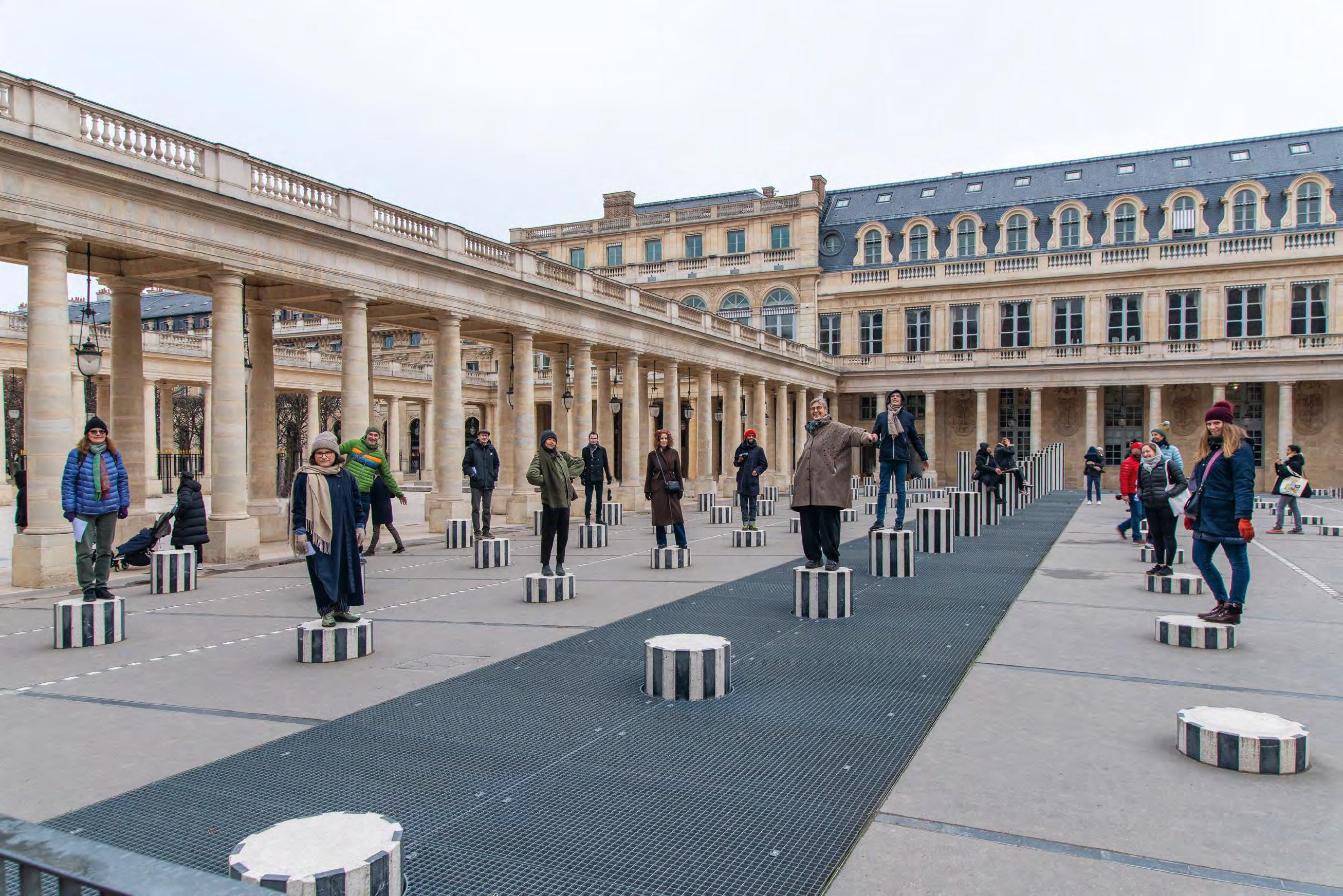

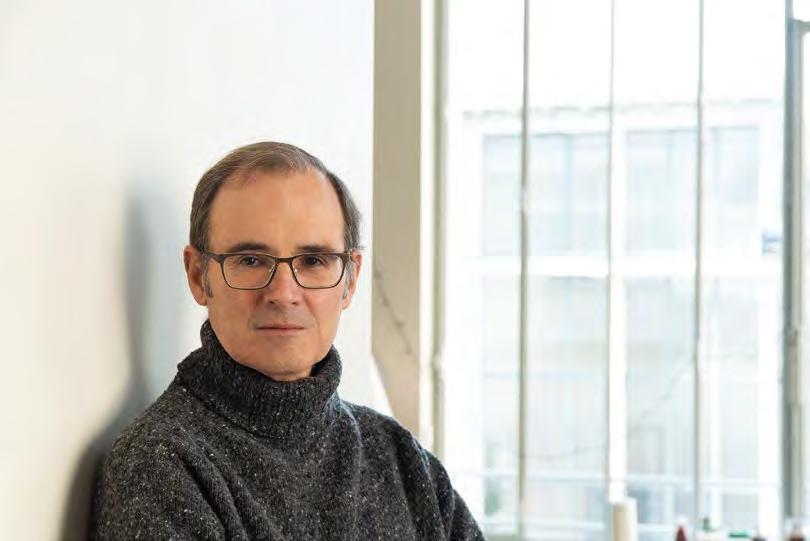
Barry Bergdoll is Meyer Schapiro Professor of Art History at Columbia University. His research focuses on modern architectural history, with a particular emphasis on France and Germany since 1750. Trained as an art historian, he is especially interested in questions connecting the built environment with cultural history and the evolution and ideology of the professions. From 2007 to 2014, he served as Philip Johnson Chief Curator at the Museum of Modern Art. As a curator he has been responsible for exhibitions intended to offer more inclusive visions of subjects ranging from Mies van der Rohe, the Bauhaus and landscape to Henri Labrouste, Le Corbusier, Latin American post-war architecture, and most recently Frank Lloyd Wright. He has worked on several film productions about architecture and is interested in new technologies of representations in the modern period.
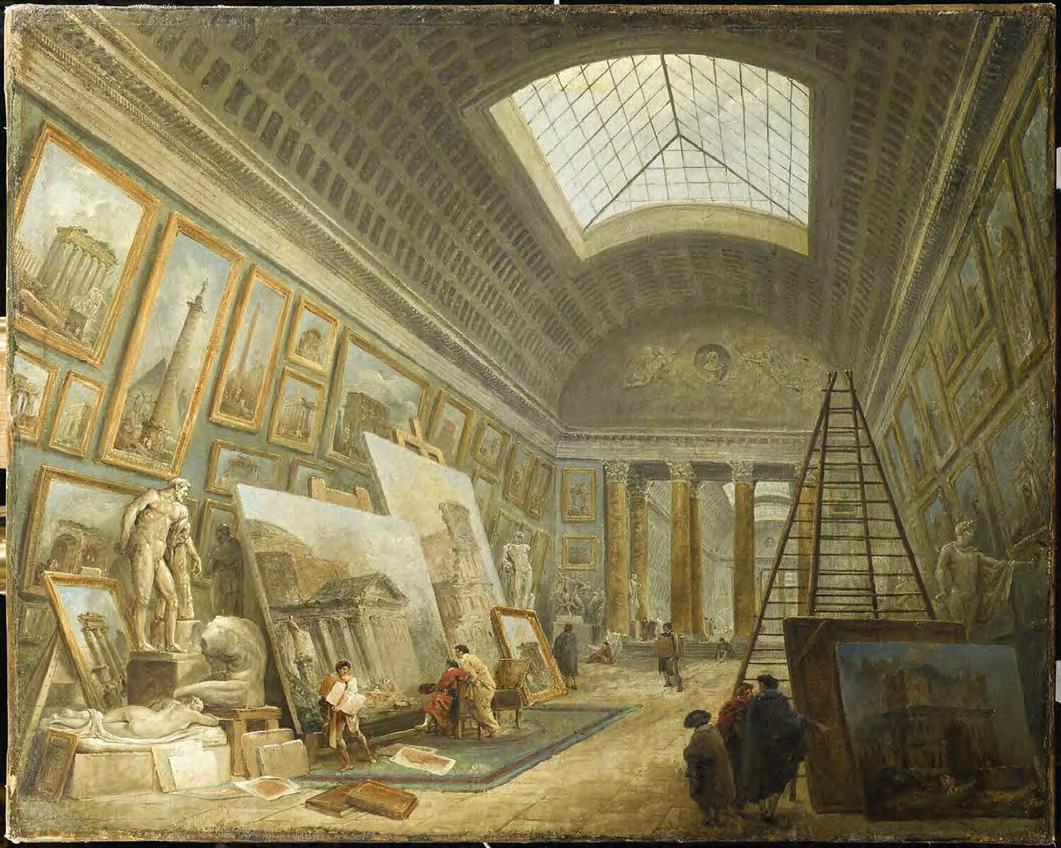
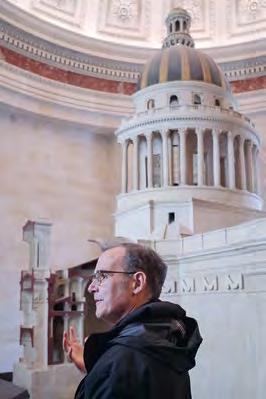
Out of Site/In Plain View: A History of Exhibiting Architecture Since 1750
At the Institute, Bergdoll worked on his forthcoming book, Out of Site/In Plain View: A History of Exhibiting Architecture Since 1750, which will be published by Princeton University Press. His project looks at public exhibitions of architecture that aim to engage non-professionals and to establish an audience for architecture distinct from the experience of buildings in situ. As a Fellow, Bergdoll led his cohort on guided excursions around Paris: first on a steep climb to the top of the Panthéon’s dome and then on a more tranquil visit of the completely empty Bibliothèque Sainte-Geneviève. He also organized a public program at Reid Hall with Anselm Kiefer, exploring the role of architecture and space in the artist’s work.
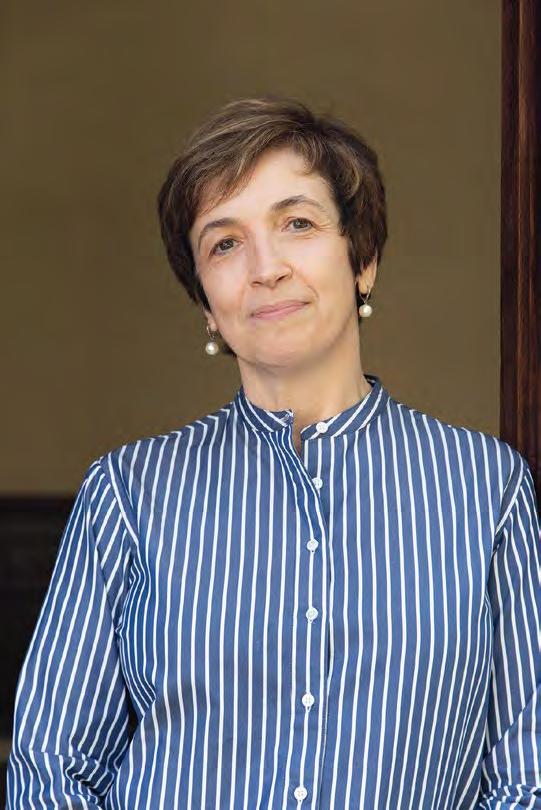
Alessandra Ciucci is an ethnomusicologist and Associate Professor of Music at Columbia University. Her research interests include the music of Morocco, the Maghreb, the Mediterranean, gender and sexuality, sung poetry, popular music of the Arab world, and music and migration. She has published widely on these and other subjects and has won numerous awards including the 2018 Rome Prize in Modern Italian Studies at the American Academy. Her recent book The Voice of the Rural: Music, Poetry, and Masculinity among Migrant Moroccan Men in Umbria, published by the University of Chicago Press, explores through the prism of sound the contemporary experience of Moroccan workers and the shaping of gender identities in conditions of emigration.
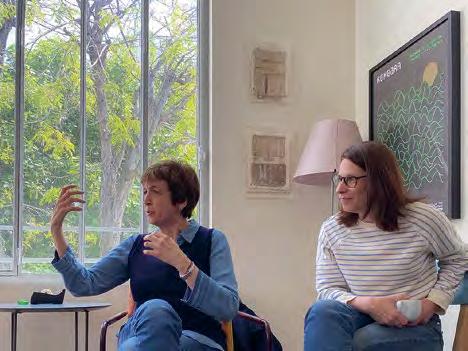
Ciucci’s project at the Institute examined how the songs of Nass el Ghiwane, Morocco’s most influential popular music group, became the voice for the silenced or disappeared during “The Years of Lead.” Working at the intersection of ethnomusicology, poetics, Moroccan colonial and postcolonial history, social movements, and the arts, Ciucci argues that an in-depth analysis of selected songs by Nass el Ghiwane yields new insights into contemporary Moroccan history, helping explain the transition, through sound, from the French Protectorate to the modern nation. Ciucci introduced the music of Nass el Ghiwane to Reid Hall by inviting filmmaker Ahmed El Maanouni to Paris for a public discussion and screening of his film Trances. Interweaving concert footage, interviews, and archival materials from Nass el Ghiwane, the documentary was selected by Martin Scorsese as the first film to be digitally restored and re-released by World Cinema Project.
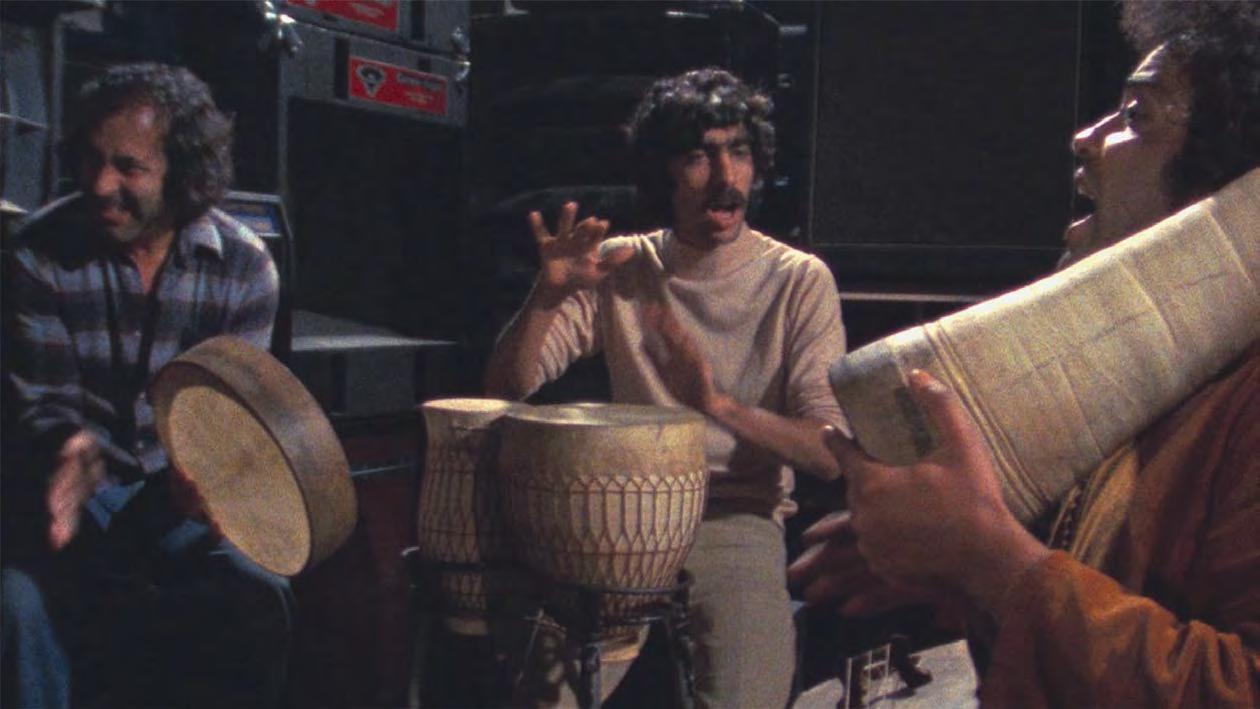
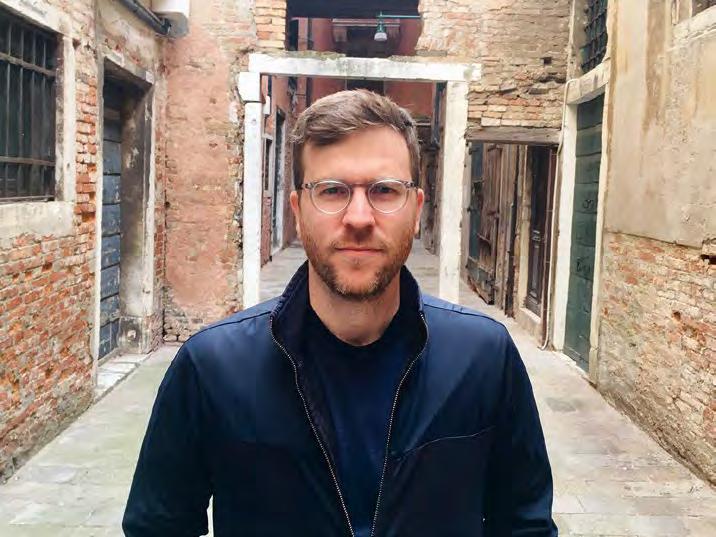
William (Bill) Dougherty is a composer, writer, and sound artist. He earned his DMA in music composition from Columbia University in 2021 where he studied with Fred Lerdahl, George Lewis, and Georg Friedrich Haas, and was awarded the Luciano Berio Rome Prize in composition the same year. His music invites listeners to engage with the “inner life” of sounds. Drawing from early recording technology, his work often explores elements of decay, distortion, and erasure. His music has been presented at festivals including IRCAM's ManiFeste, Klangspuren, musikprotokoll, Gaudeamus Muziekweek, Donaueschingen Musiktage, New Music Miami, and the New York Philharmonic Biennale. In addition, he writes extensively on experimental music, notably on the works of Éliane Radigue and Horatiu Radulescu, and is actively involved in arts outreach programs bringing contemporary music to school-age composers.
At the Institute, Dougherty worked on a composition for orchestra, electronics, and amplified wax cylinder phonograph. This piece engages with the questions: What are the traces that remain on musical recordings, if not the music itself? What can these traces tell us about the people that we hear on the other end? In parallel, he released an album of electronic music and composed a composition for saxophone quartet and electronics titled into the blessed darkness after a line from Harriman Resident Natalka Bilotserkive ts’ poem The Saxophonist
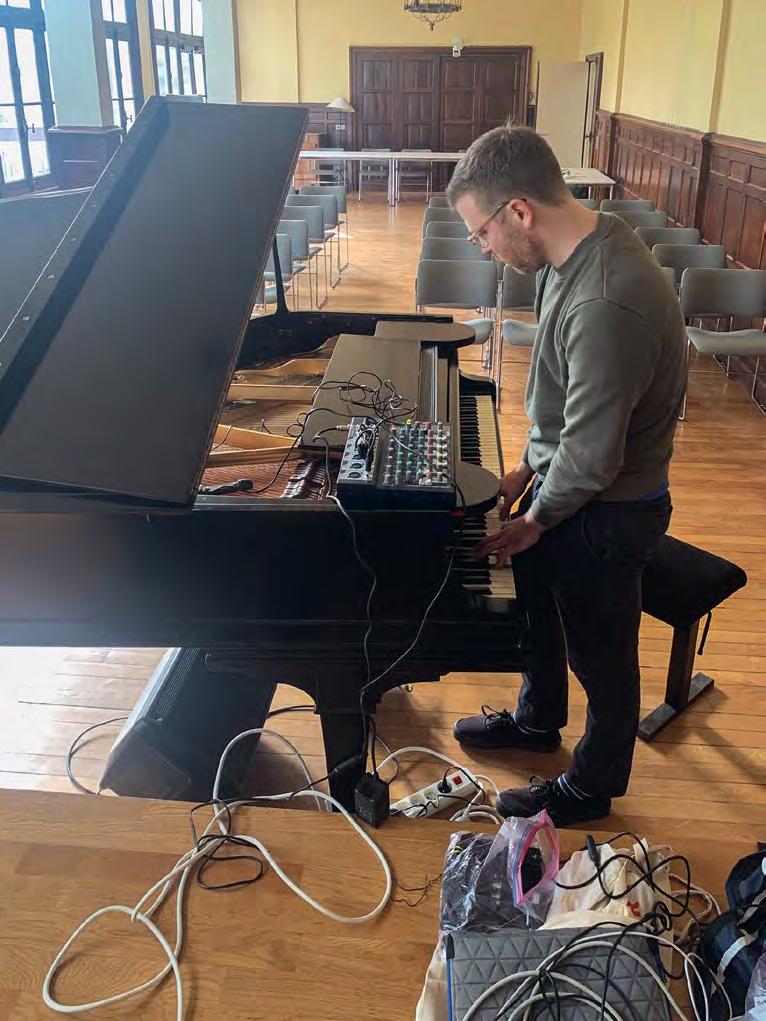
In dialogue with another Harriman Resident, Zoya Laktionova, Dougherty composed the silence these things carry, a collaborative meta-composition for Temple University's Boyer College Electroacoustic Ensemble Project (BEEP) that explores Laktionova's films through sound. Beyond these projects, Dougherty organized two days of conferences and concerts at Reid Hall dedicated to the work of Éliane Radigue, the pioneering French composer of electronic music.
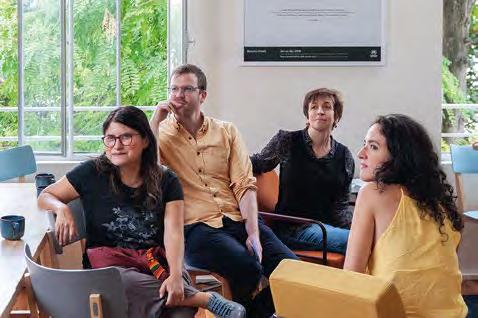
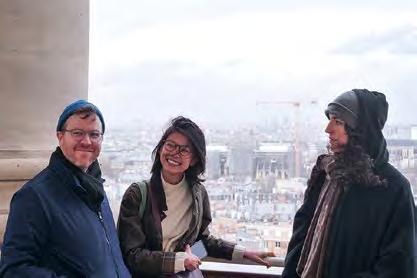
The essence of music lies not in musical works but in taking part in performance, in social action.
—— Christopher Small, Musicking the meanings of performing and listening. A lecture (1999)
I love this description of what writer and musicologist Christopher Small goes on to call “musicking.” In it, Small flips music from being a noun to a verb, centered on action and processes rather than objects. Music, in all of its richness, Small argues, is so much more than a score or an imagined sound. Music is about the social and communal relationships built around the music-making process and what these relationships can represent and signify. But how might one compose social actions, creating new more open and equitable ways of relating to sound, others, and our world?
During my Fellowship at the Institute for Ideas and Imagination, I had the opportunity to explore these questions in new works for the BBC Scottish Symphony Orchestra, the Konus Saxophone Quartet, and students from Temple University’s Boyer College Electroacoustic Ensemble Project (BEEP).
Inspired by The Saxophonist, a poem by 2022–2023 Harriman Resident Natalka Bilotserkivets, I composed into the blessed darkness for four saxophonists and live electronics. The 45-minute work asks the players to record themselves throughout the performance and then interact with their recorded sounds in a game of real-time sonic self-reflection.
In the dreams of imagined homelands, the BBC Scottish Symphony Orchestra engages with a nineteenth-century wax cylinder recording of the tune Home Sweet Home, along with field recordings I made with my smartphone — including one I made at the Jardin Anne Frank in Paris. The orchestra breathes new layers of meaning into these recordings, listening and responding in sound to their shapes and contours.
the silence these things carry for the students of Temple University’s BEEP was inspired by the films of Ukrainian filmmaker and another 2022–2023 Harriman Resident and friend, Zoya Laktionova. The score, which can also be used as a pedagogical tool, walks performers through a journey into Zoya’s films and creative vision. It asks performers to build their own sound libraries based on key features of Zoya’s filmmaking and then to create their own roadmaps for planned electronic improvisations with these sounds. For their final project, the students of BEEP each deeply engaged with themes in Zoya’s films and then created their own version of the silence these things carry
Back in Philadelphia, I am continuing to explore ways of composing not just sounds but social actions. In collaboration with Play On Philly and with a generous grant from the EHA Foundation, I started a monthly Young Composers’ Workshop for underserved Philadelphia high school students. In the class, students analyze and perform scores of twentieth and twenty-first century music, develop listening skills, and practice guided improvisations. In our latest session, students workshopped excerpts of Steve Reich’s Clapping Music (1975) — an important work of American Minimalism — after listening to examples of West African Yoruba drumming that inspired the piece. In our coming session, students will perform newly composed melodies written especially for their instruments.
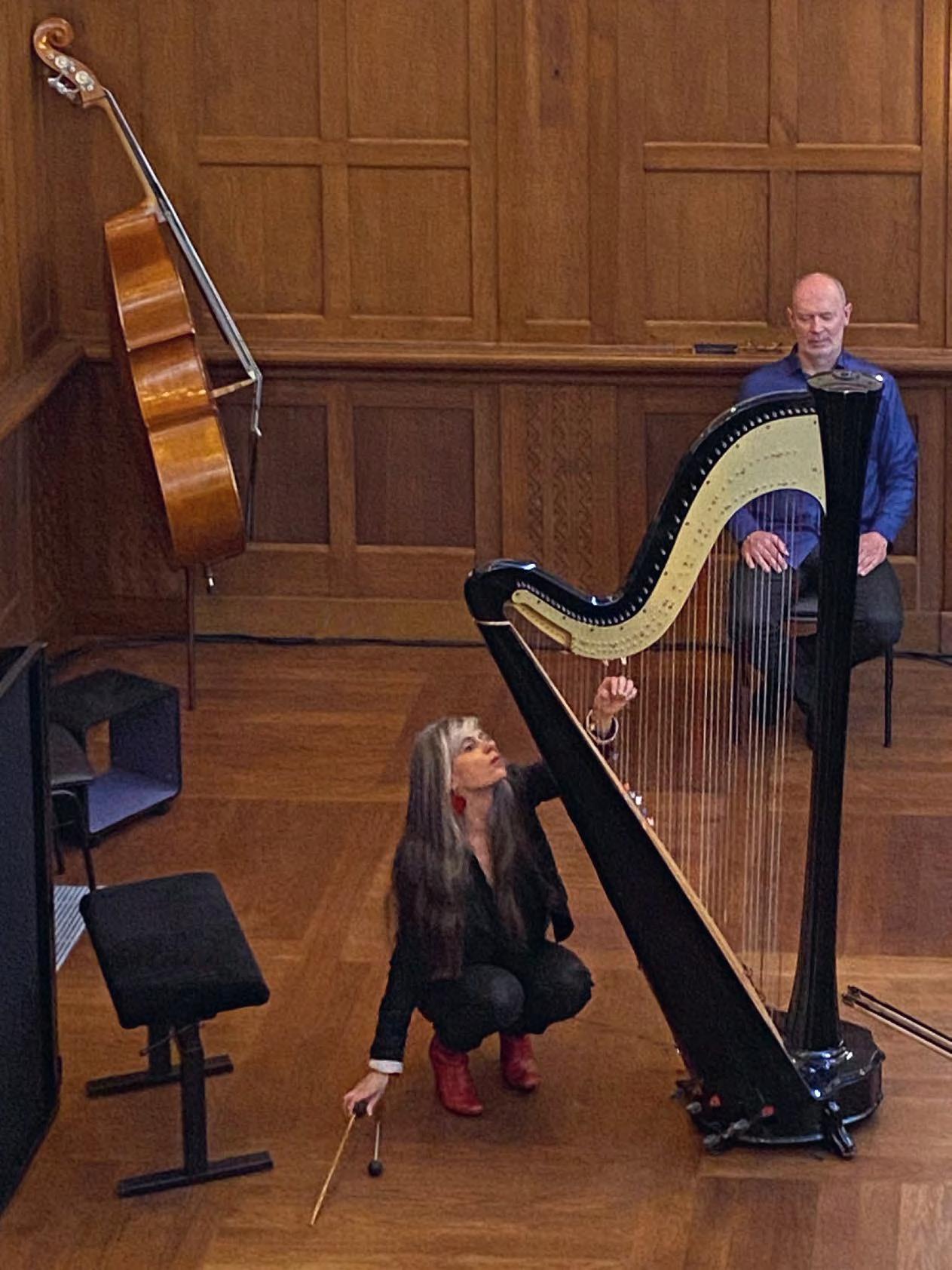
below Hélène Breschand and Louis-Michel Marion performing Éliane Radigue’s OCCAM Ocean in the Grande Salle Ginsberg-LeClerc.
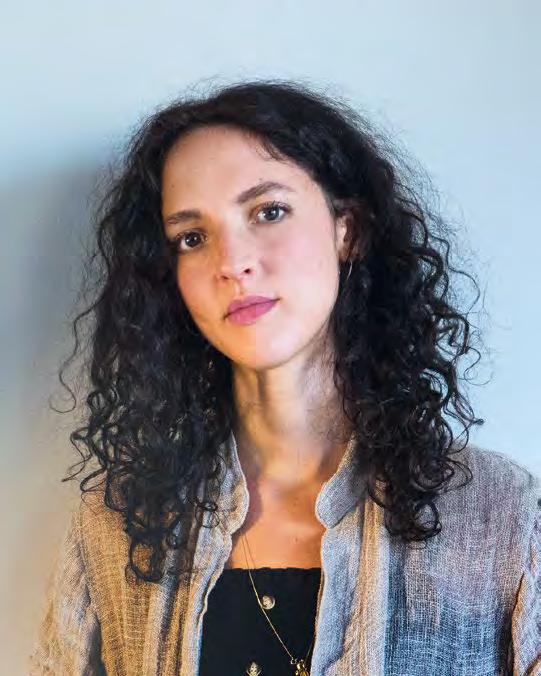
Isabella Hammad is the author of The Parisian, for which she won the 2020 Sue Kaufman Prize, the 2019 Palestine Book Award, and a “5 Under 35” honor from the National Book Foundation. Her second novel, Enter Ghost, was published in April 2023 with Jonathan Cape in the UK and with Grove Atlantic in the US, while she was a Fellow at the Institute. She has received fellowships from the Lannan Foundation, MacDowell, the Santa Maddalena Foundation, and the Bellagio Rockefeller Foundation. She was named on Granta’s 2023 Best of Young British Novelists list as one of the twenty most significant British novelists under forty.
A novel set at the Bandung Conference (untitled)
At the Institute, Hammad worked on a novel about two women — an Indian journalist and a Lebanese delegate — who meet at the Bandung Conference in April 1955. The novel will explore the vagaries of revolutionary memory and the absence of women from the archive, at this seminal event in decolonial history and the invention of the Third World. Beyond her fellowship project, Hammad, along with Katharina Pistor, facilitated the cohort’s book club. One of the group’s readings, Yasmin El Rifae’s Radius, led to a public discussion at Reid Hall between Rifae and Hammad around the women and men who built a feminist revolution in the middle of the Arab Spring.
below
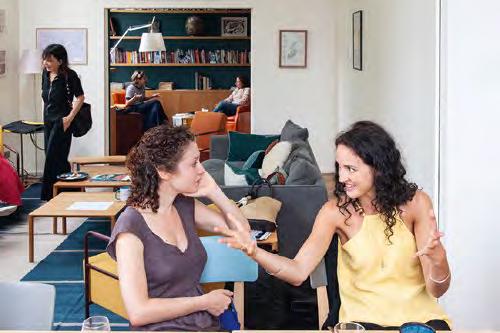
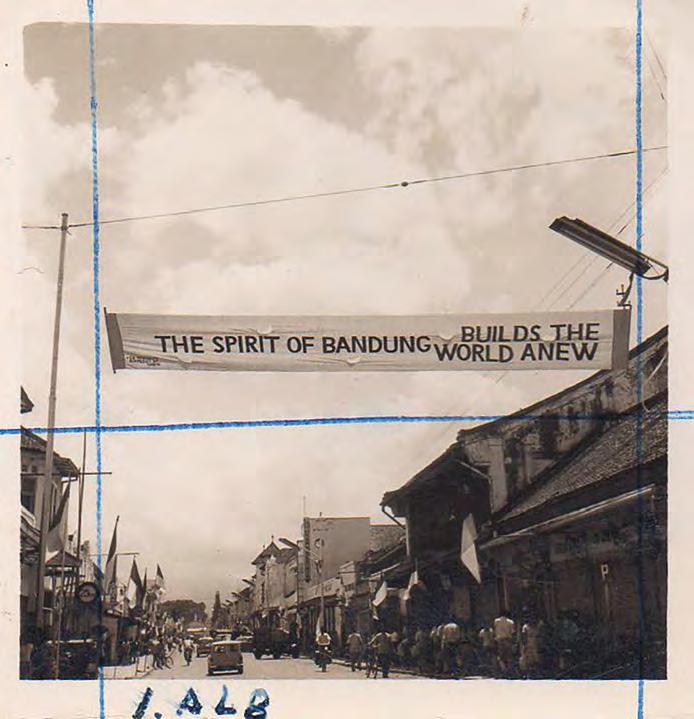
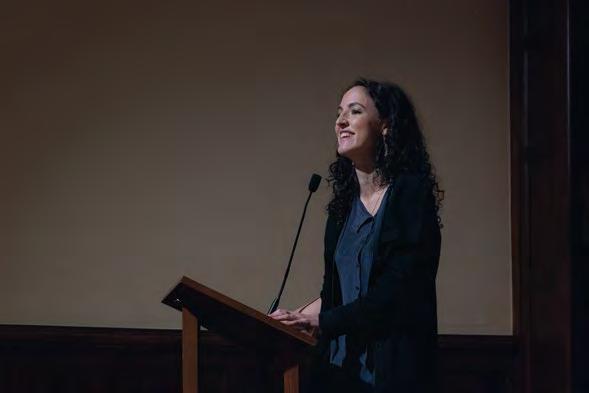
above
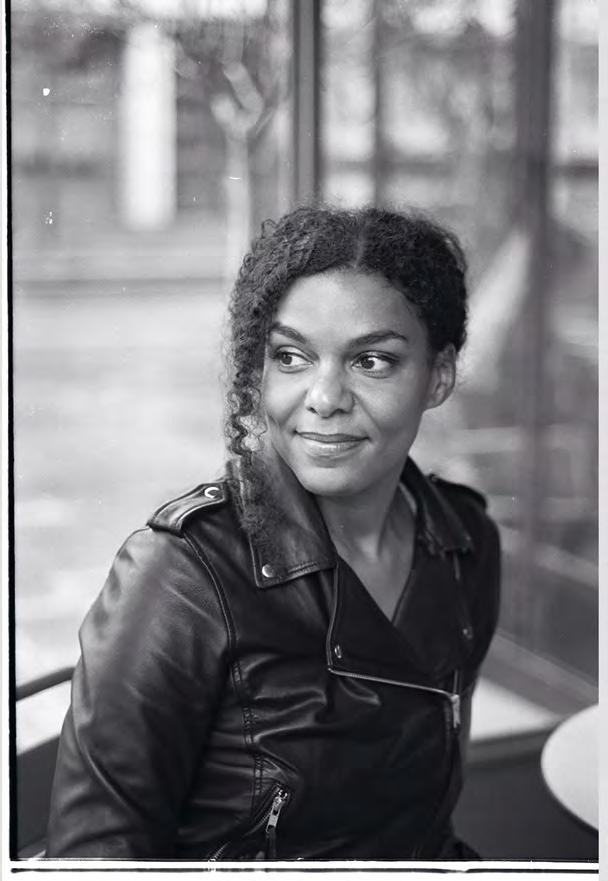
next page
A philosopher, teacher, novelist, and public intellectual, Yala Kisukidi is associate professor of philosophy at the Université de Paris 8 Vincennes Saint-Denis. She has published widely on Bergson, questions of Blackness, and Europe's post-colonial relationship with Africa. She is also the co-curator of the Yango II Biennale of contemporary art, Kinshasa. Her study on Bergson was published in 2013, and her collaborative work, Dialogues Transatlantiques (Éditions Anacaona), co-written with Brazilian activist Djamila Ribeiro was released in 2021. Kisukidi’s debut novel, La Dissociation, was published by Le Seuil in September 2022.
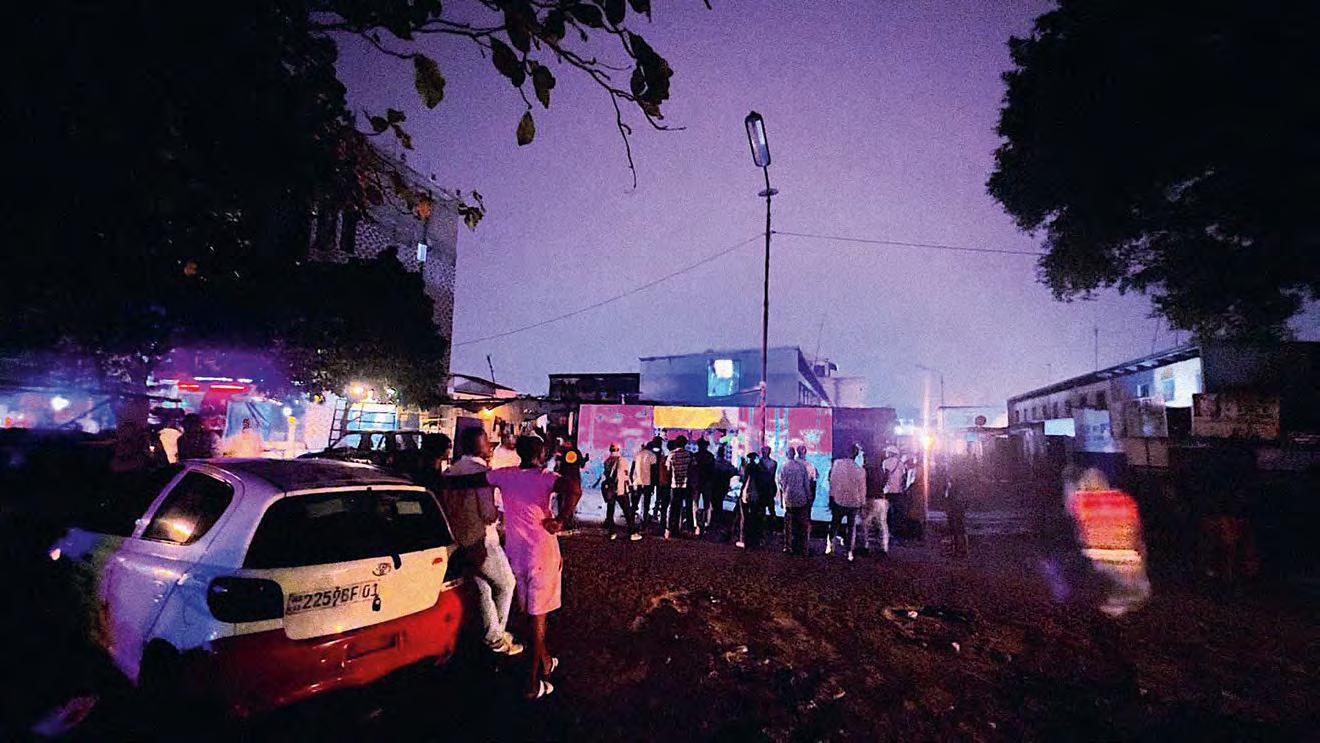
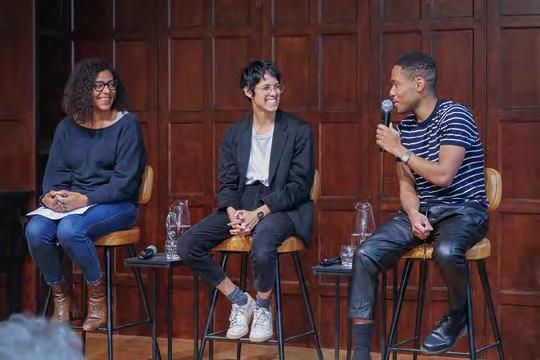
At the Institute, Kisukidi worked on her book Feux Noirs, exploring the idea of Lae titia Africana. Its aim is to reject the conceptual linkage of notions of “Blackness” and “Africa” to an ontology of suffering. Blending fiction, biographical elements, and theory, the book rethinks African independence from a Congolese context and considers the significance of so-called minuscule and lusterless lives lived out despite the experience of devastation. Beyond her project, Kisukidi organized several public programs at Reid Hall. She invited Chris Cyrille for a performance and roundtable discussion of his project Mais le monde est une mangrovité, which aims to re think artistic practices from a Caribbean perspective. She also brought Guiliana Andreani, nominated for the 2022 Prix Marcel Duchamp, to Columbia Global Centers | Paris for a conversation on the role of women in her work.
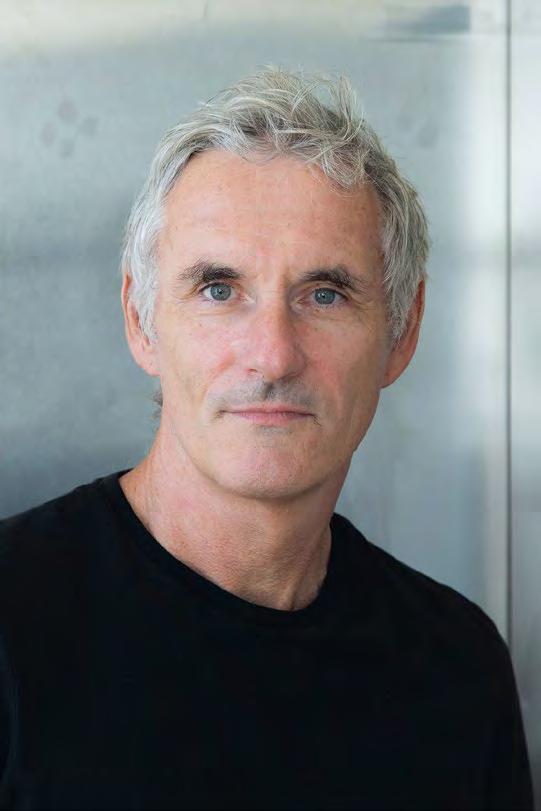
next page above
Brian and Melina León on William Sharpe’s walking tour of Paris.
next page below
Generator for loudspeaker car in Ibadan, Nigeria.
Brian Larkin teaches classes on media, urban Africa, religion and technology, and infrastructure in the department of anthropology at Barnard College, Columbia University. He is the author of Signal and Noise: Media, Infrastructure and Urban Culture in Nigeria and the co-founder of the Center for Comparative Media at Columbia University. His research focuses on the ethnography and history of media in Nigeria and the religious, political, and cultural changes they bring about.
At the Institute, Larkin worked on completing his manuscript Secular Machines: Media and the Materiality of Islamic Revival. This project analyzes the role media play in the rise of new Islamic movements in Nigeria and explores theoretical questions around the technologizing of everyday life, religious violence, and urbanism. As a Fellow, Larkin worked with Aidan Walker, a graduate student of the Masters of History and Literature program, on gathering and editing archival materials, for a public presentation that tied together his family history with his interest in Nigeria.
Through family photos and historical footage, Larkin narrated the significance for his later work of childhood trips to Northern Ireland during the Troubles, where the beating of lambeg drums by
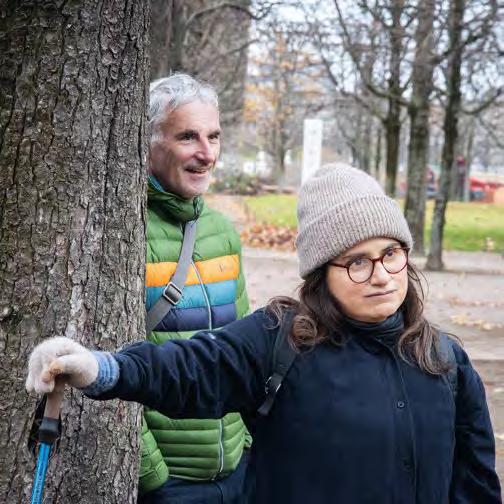
Protestant marchers, as an expression of their dominance over the Catholics who heard them, made him aware for the first time of the role of sound in the articulation of ethnic and religious identities.
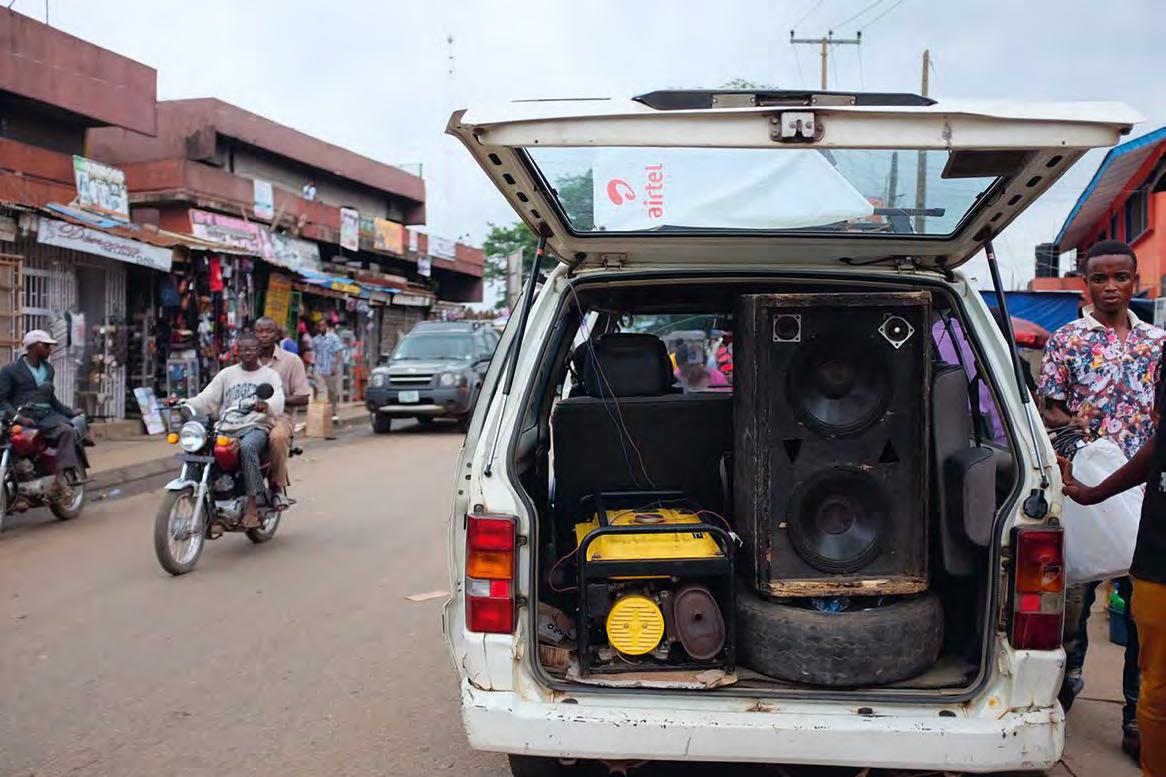
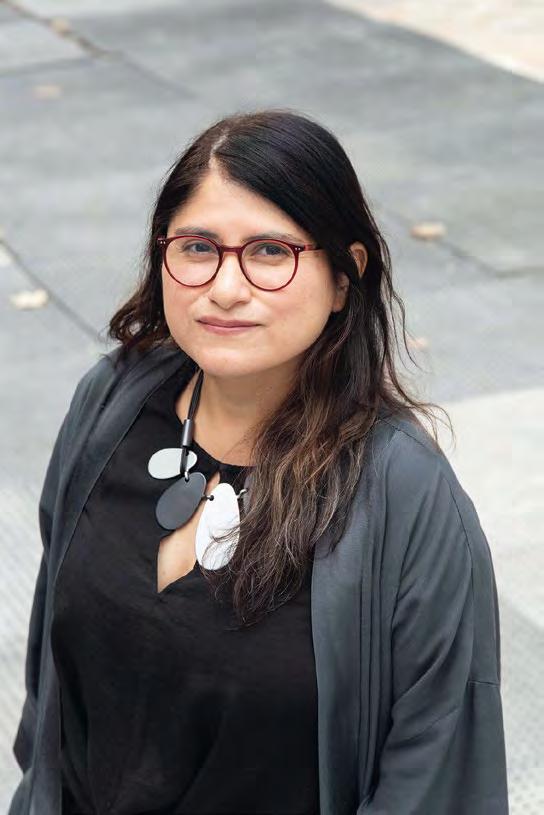
Melina León is a filmmaker and an MFA graduate of Columbia University. Her short film, El Paraíso de Lili, (Lily’s Paradise), made its debut at the New York Film Festival. Her first feature, Canción sin Nombre (Song without a Name) premiered at Cannes Directors’ Fortnight in 2019, a first for a film by a Peruvian female director. Based on a true story of child trafficking, the film was nominated for Best Iberoamerican Feature at the Goya Awards in 2022 and was Peru’s Oscar Entry for Best International Feature. It has gone on to win awards at film festivals in Thessaloniki, Stockholm, and Munich.
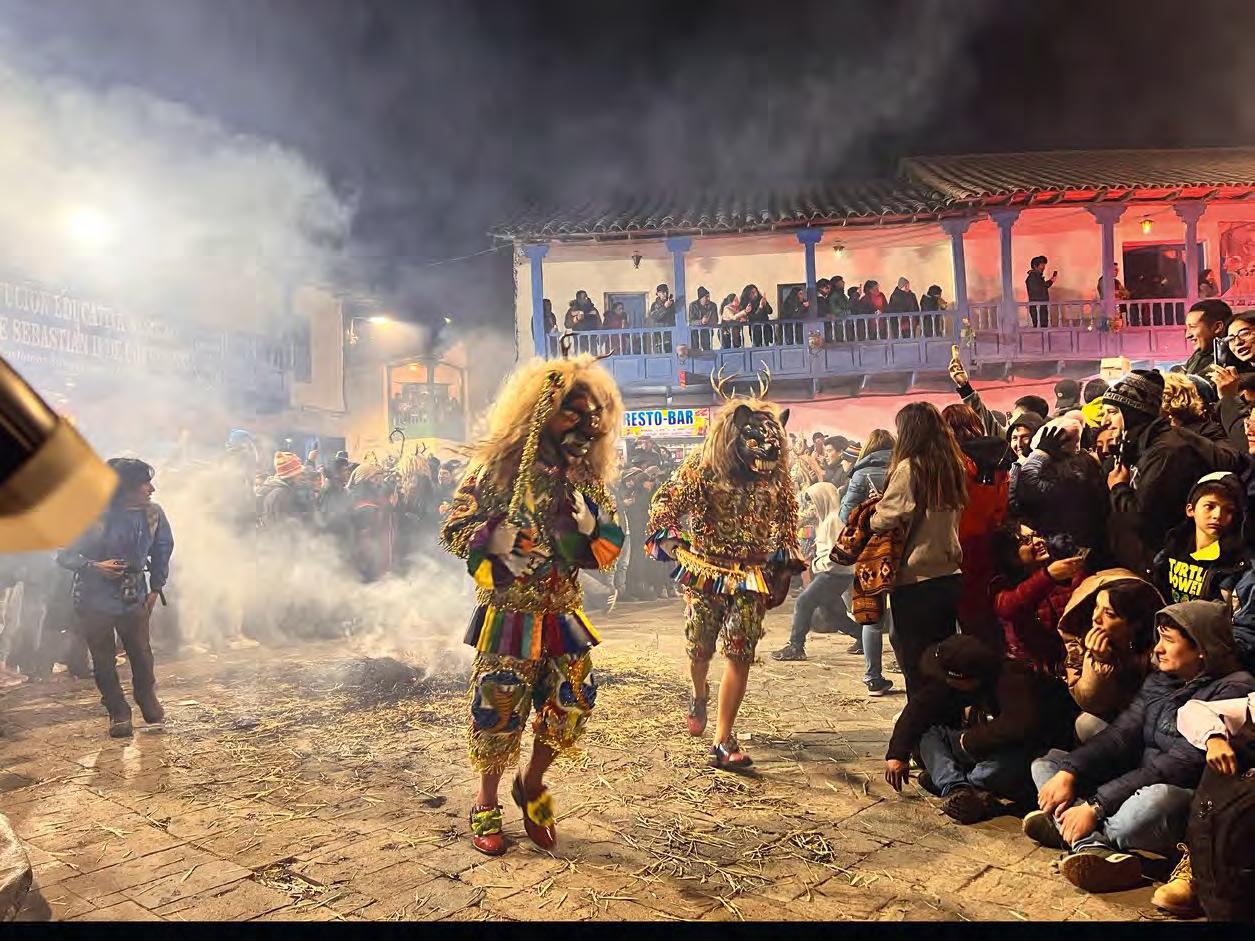
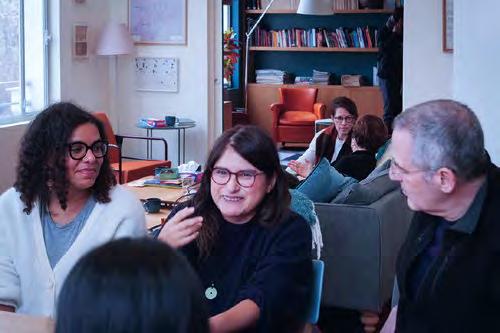
At the Institute, León worked on writing her second fiction film, San Blas. The film will tell the story of a 10-year-old artist with epilepsy who is immersed in the religious culture of San Blas, a neighborhood in Cusco, Peru. She also worked on Lejos del Sol, a do cumentary about Carlos Aguilar, an accomplished film journalist in the United States, whose writing appears regularly in publications across the country. Despite his achievements and having lived most of his life in the US, Aguilar remains undocumented. Finally, León began research on an adaptation of Gabriela Wiener’s Huaco Retrato, a novel focusing on imperialism, decolonization, and political violence in Peru. Upon León’s invit ation, Wiener came to Reid Hall for a public event in which they discussed their artistic collaboration and questions of translating from one medium to another.
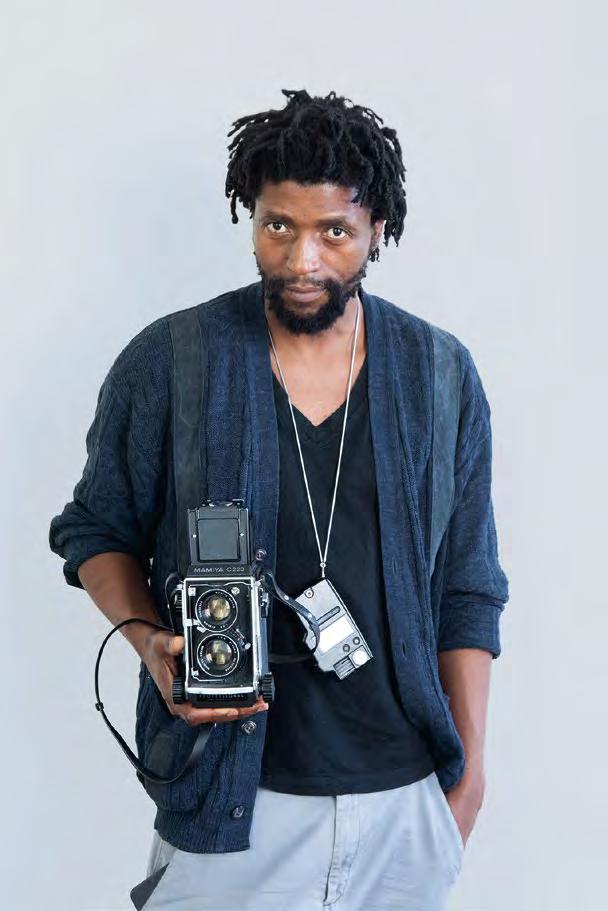
Sabelo Mlangeni is a South African photographer and a graduate of the Market Photo Workshop in Johannesburg. Driven by an interest in the notions of community and communing, he spends significant periods of time with those he chooses to photograph. His work has been featured in the New Yorker which described his images as “disparate, dissonant vignettes, each one in motion, never intending to achieve resolution.” He is best known for his series Country Girls which presents an intimate portrait of queer life in the rural areas of Mpumalanga province and he is among the artists featured in A World in Common, the Tate Gallery’s sweeping survey exhibition of contemporary African photography. His photographs have been widely exhibited, with recent solo shows at the A4 Arts Foundation in Cape Town, the Walther Collection in Munich, the Para Site in Hong Kong, K21 in Düsseldorf, and the Palais de Tokyo in Paris. A study of his oeuvre has recently been published by the Tate Modern in London.
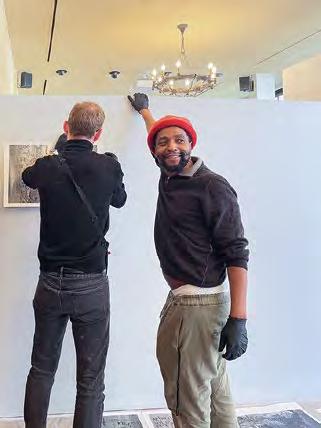
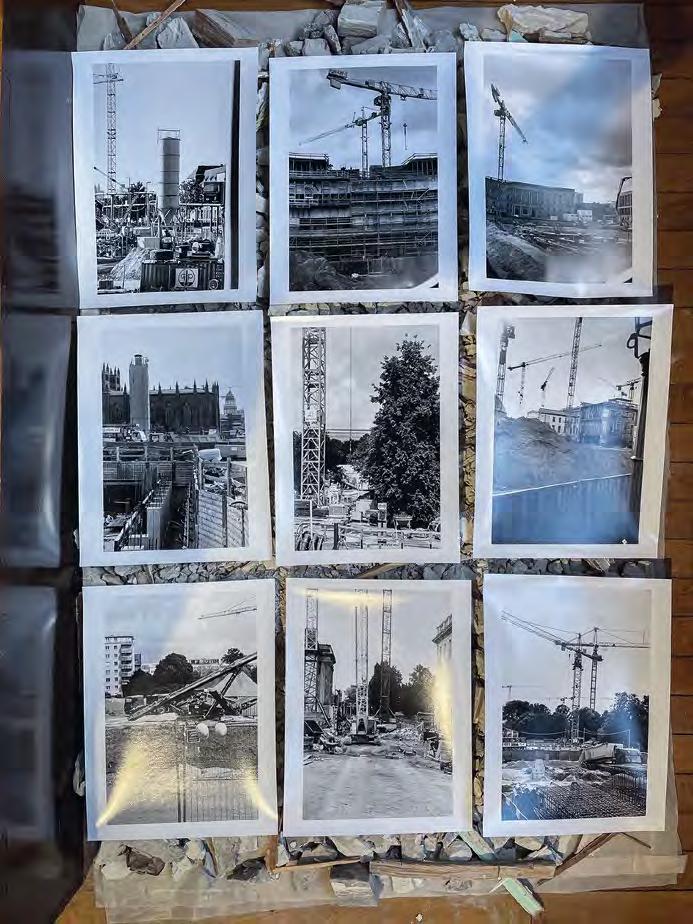
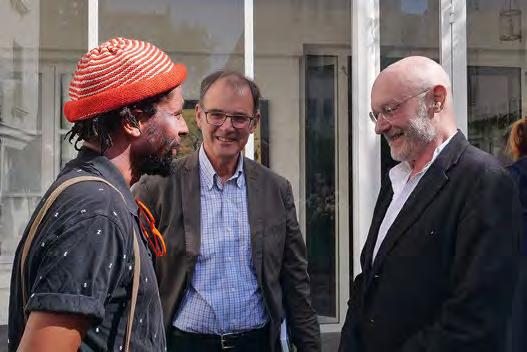
At the Institute, Mlangeni worked on adapting the photographic series Ngiyobona Phambili (“I will cross the bridge when I get there”) to book form. The project traces Mlangeni’s travels and movements in diverse lands, spaces, and landscapes to consider history through place, exploring politics of collective memory and belonging. A preview of this work was presented at Reid Hall in the form of a pop-up action exhibition co-curated by Ntshepe Tsekere Bopape. It was the first time the Institute hosted such an event.
It is a bit of a miracle that such a place really exists.
—— John Phan
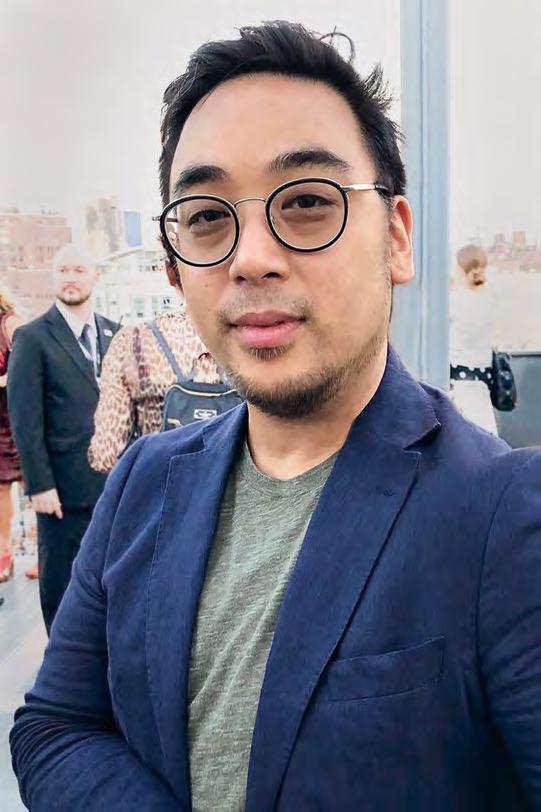
John Phan is an assistant professor in the Department of East Asian Languages and Cultures at Columbia University. His research interests include China and Vietnam’s linguistic history, the development of Vietnamese vernacular literature, and multilingualism’s effects in single societies, especially the coincidence of non-spoken literary languages alongside vernacular spoken languages with oral literary traditions. His forthcoming book, Lost Tongues of the Red River: Annamese Middle Chinese and the Origins of the Vietnamese Language, will be published by Harvard Asia Center Press.
Phan’s project at the Institute, Vulgar Experiments, asks the question: What happens to a purely spoken language when it is used as a vehicle for written literary expression? Literary languages are not born ready to use, and most vernacular literary traditions were preceded for centuries with literary experiences in other languages. This project examines experimentation with the “vulgar language” as an illustration of how a purely oral language was transformed into a new medium for written literary expression.
Beyond his project, Phan brought his father, a former agent of the Vietnamese intelligence services, to the Institute for a Library Chat to tell the story of his mission to reunite Jean-Bedel Bokassa with his daughter. He also participated in two other Library Chats: one with Pauchi Sasaki and Melina León around the art of translation, and another with Lung Family Professor of Asian American Studies and Professor of History at Columbia University, Mae Ngai, on anti-Asian racism.
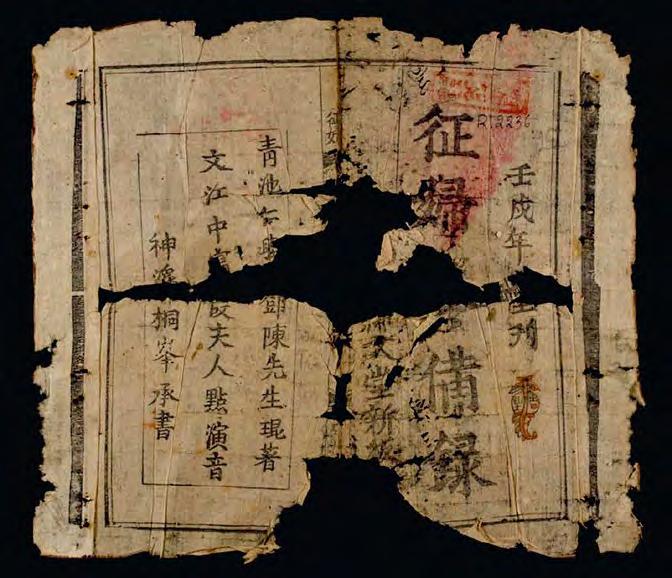
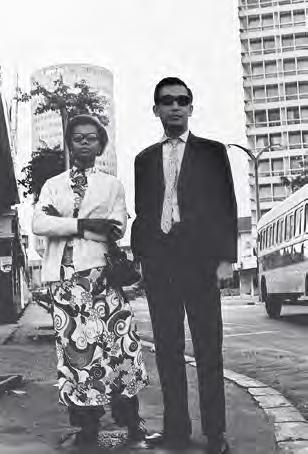
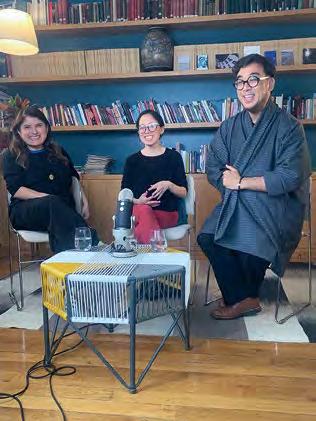
A continuous process of excavation and discovery –Images and sounds came to rival words, breaching the boundaries of specialized discourses became our second nature. A transformative experience.
—— Katharina Pistor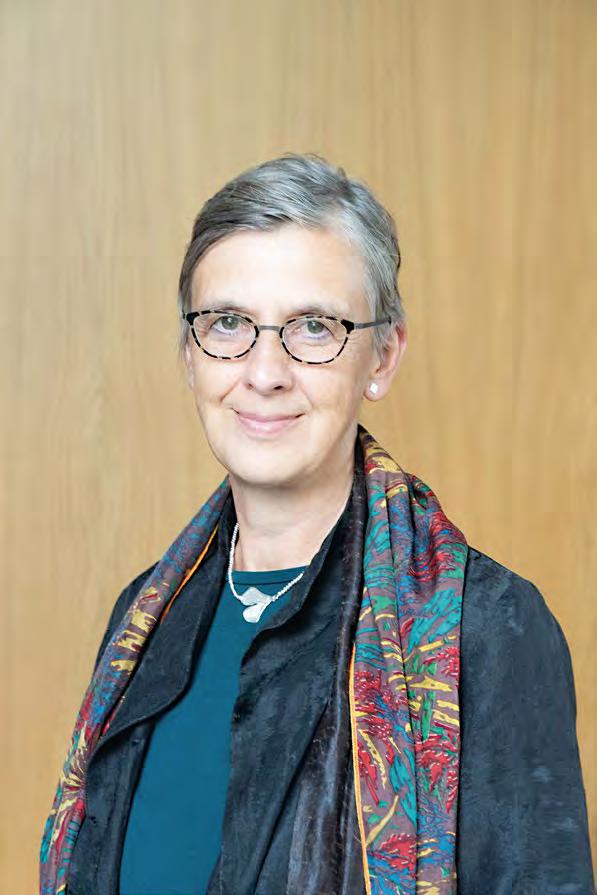
Katharina Pistor is the Edwin B. Parker Professor of Comparative Law at Columbia Law School and director of the Law School’s Center on Global Legal Transformation. Her teaching and research span comparative law and corporate governance, law and finance, development and the emergence of monetary sovereignty. She is the author of numerous books and articles including, most recently, The Code of Capital: How the Law Creates Wealth and Inequality which explores the role of law and lawyers in creating contemporary capitalism and shaping new forms of inequality. The Code of Capital was named a Financial Times Best Book for 2019. Pistor is the co-recipient of the Max Planck Research Award (2012), and a member of the Berlin-Brandenburg and the European Academies of Science. She loves music and plays the harpsichord.
At the Institute, Pistor worked on her book project, Coded Power, co-authored with Co-Pierre Georg, in which she argues that coded power helps unearth mechanisms empowering public and private data monopolists and allows us to imagine how information technology and law can be used to decenter control over data. Exploring the emergence and diffusion of coded power, she analyzes subjects as different as the church’s monopoly over the Bible and how Facebook surveils information-sharing on social networks. Beyond her fellowship project, Pistor facilitated the cohort’s book club with Isabella Hammad and took part in a Library Chat with Pauchi Sasaki on conscious coding decisions and on what a feminine approach to coding might look like.
below Katharina introducing a recital by Alessio Zanfardino in the Grande Salle Ginsberg-LeClerc.
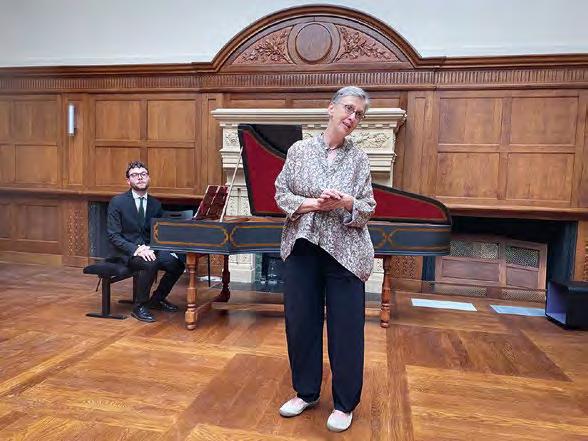
below
Film still from The Matrix
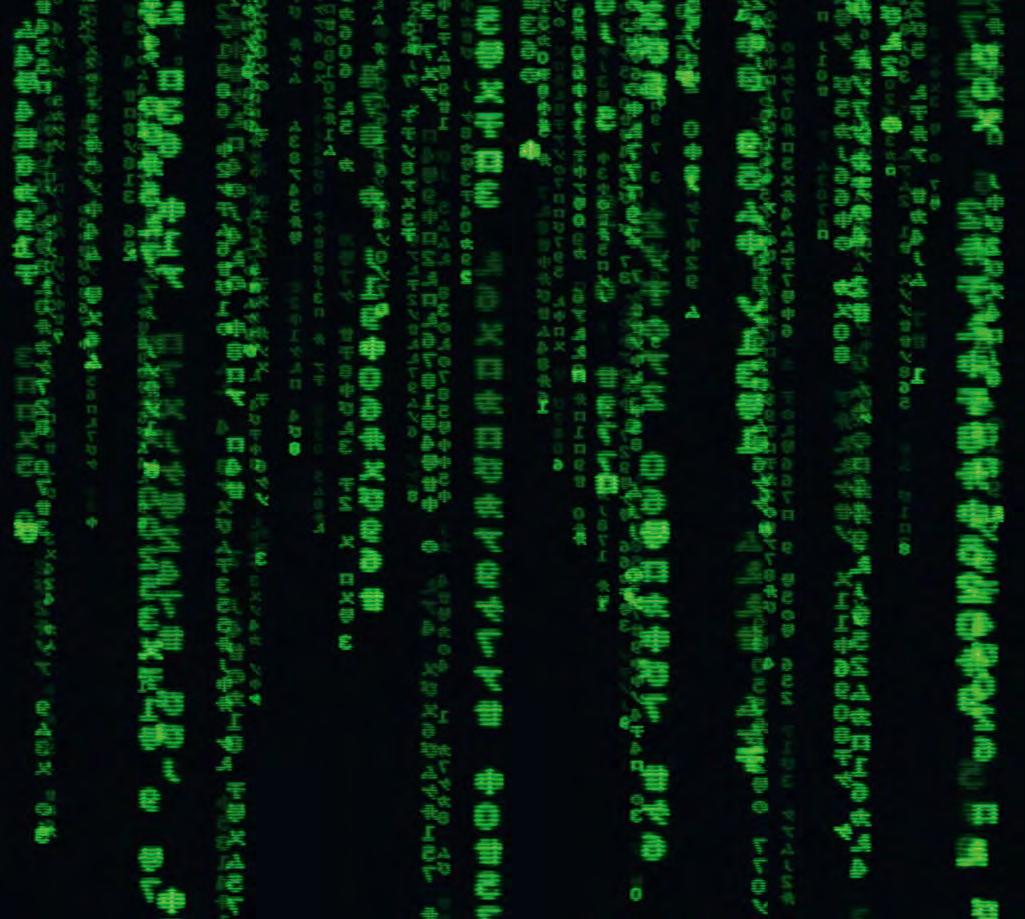
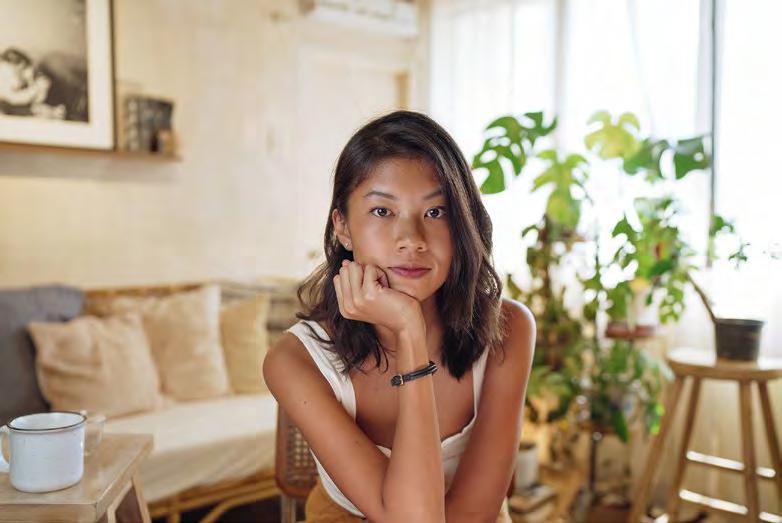
Hannah Reyes Morales is a Filipina photographer whose photographic work takes a closer look at how current events, critical issues, and historical memory shape daily life, especially in the home space. Her work has appeared in the New York Times, National Geographic Magazine, and Le Monde, among others. She is a National Geographic Explorer, and a recipient of the Tim Hetherington Visionary Award and the ICP Infinity Award for Documentary Practice and Visual Journalism. She was commissioned as the Nobel Peace Prize photographer in 2021. In 2023, she received a World Press Photo Award.
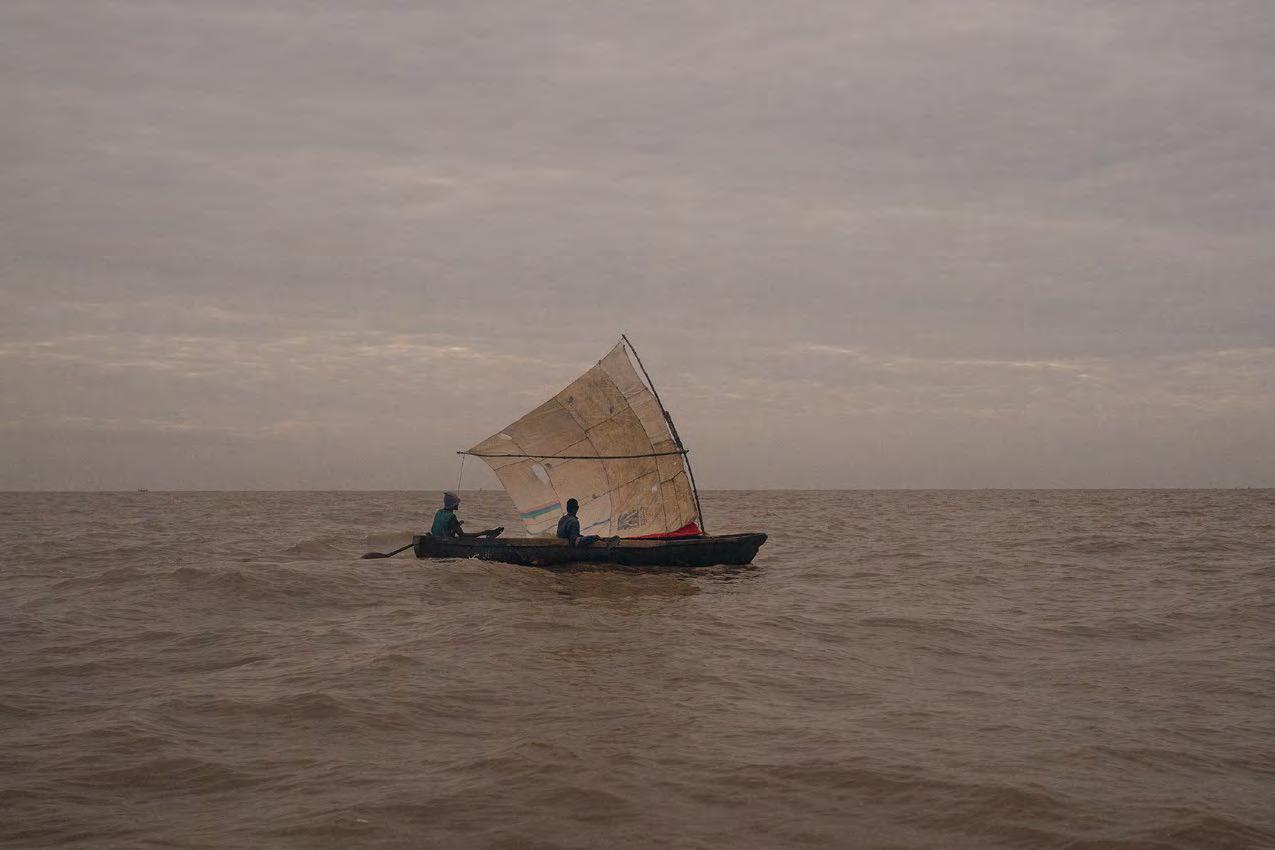
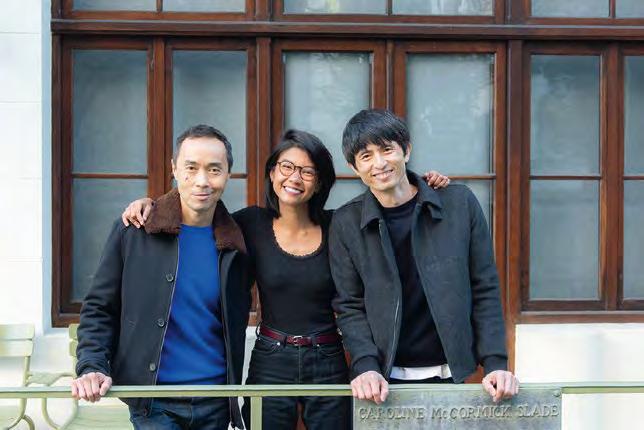
At the Institute, Reyes Morales worked on research and pre-production for her upcoming project Sacred Seas, a photography-based project that explores critical ocean issues from the lens of local knowledge, rituals, and myths. Beyond her project, Reyes Morales participated in KEMBARA, continuing the event series founded by Tash Aw that brings Southeast Asian artists to Reid Hall, with the photographer Ian Teh. She also brought her co-founders of Emerging Islands, a residency for artists and thinkers in the Philippines, to Paris for a public present ation of their work during the inaugural Nuit de l’Imagination.
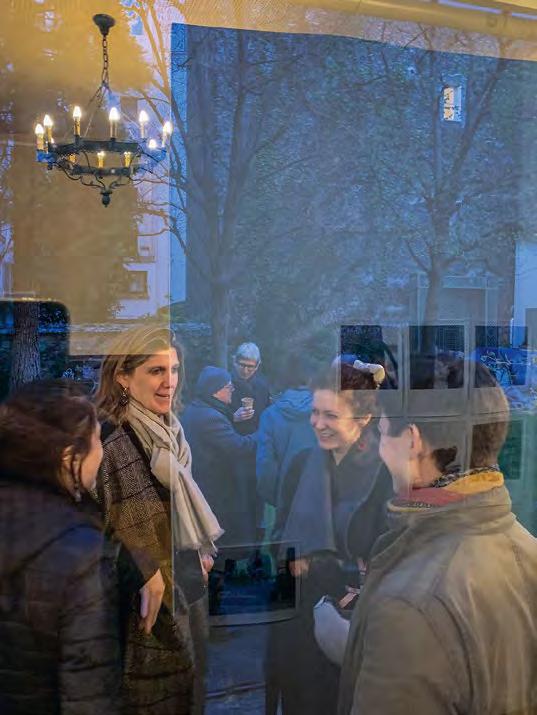
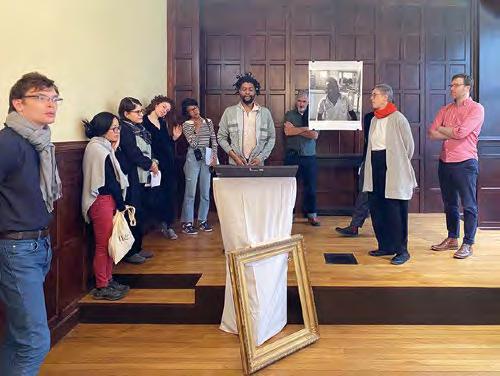
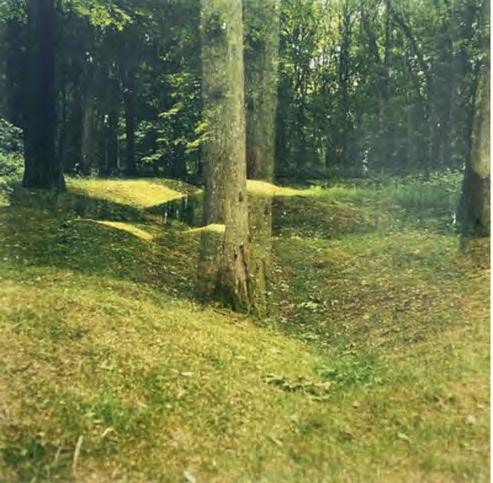
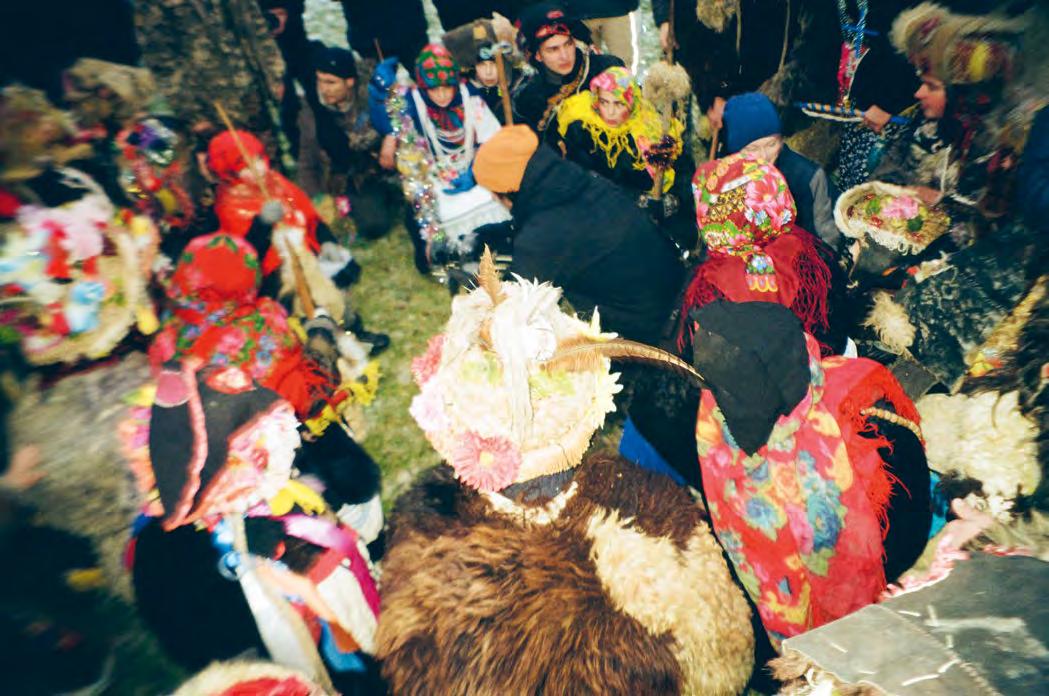
previous page clockwise
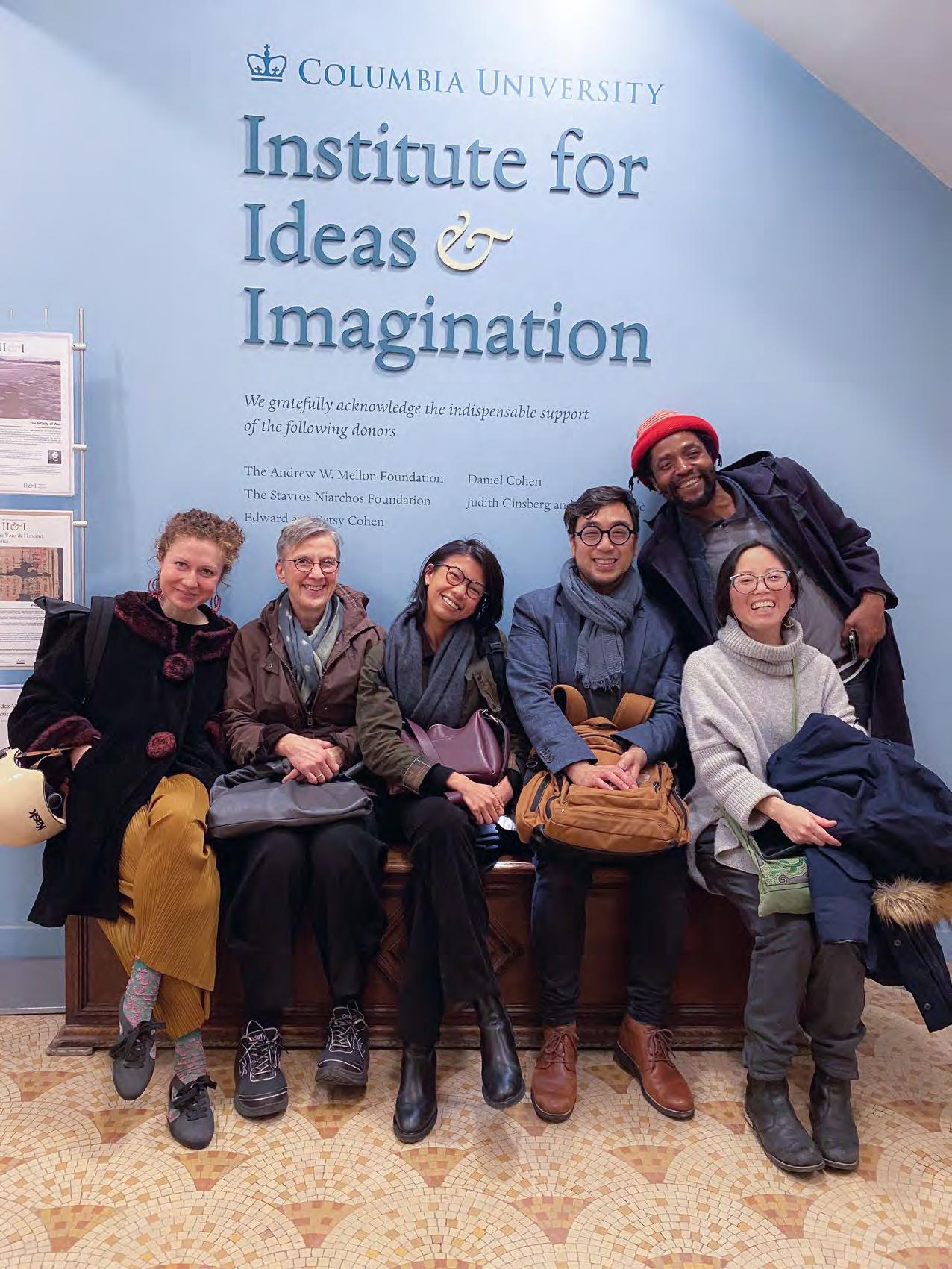 Marie d’Origny and Yasmine Seale at Sabelo Mlangeni’s exhibition opening; Mlangeni’s Fellow’s workshop; Mlangeni’s photo Voices in the Trenches; Photo from Zoya Laktionova's Malanka series.
this page
(From left to right): Fellows Yasmine Seale, Katharina Pistor, Hannah Reyes Morales, John Phan, Sabelo Mlangeni, and Pauchi Sasaki at the Institute’s entrance.
Marie d’Origny and Yasmine Seale at Sabelo Mlangeni’s exhibition opening; Mlangeni’s Fellow’s workshop; Mlangeni’s photo Voices in the Trenches; Photo from Zoya Laktionova's Malanka series.
this page
(From left to right): Fellows Yasmine Seale, Katharina Pistor, Hannah Reyes Morales, John Phan, Sabelo Mlangeni, and Pauchi Sasaki at the Institute’s entrance.
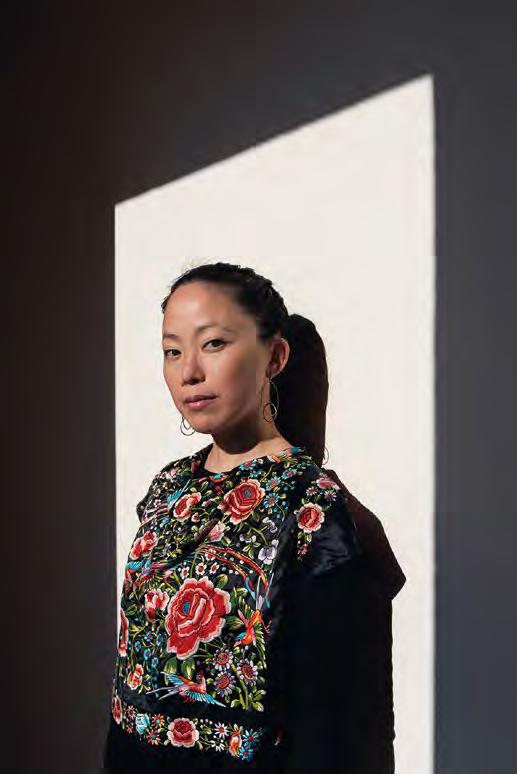
Pauchi Sasaki is a composer, performer, and improviser, described by The Wire as an artist “unafraid of working within different disciplines and stylistic constraints.” Trained in classical violin, Sasaki has also studied Andean music, Klezmer, the classical tradition of north India, and holds a BA in journalism and an MFA in electronic music and recording media. She has designed immersive multimedia performances and scored more than thirty features and short films. She received four “Best Original Score” international awards, the Ibermúsicas grant for sound composition with new technologies, the Prince Claus Fund, and artist residencies at Goethe-Institute, Civitella Ranieri Foundation, and Hermitage Foundation. In 2016, she became Philip Glass’ protégée as part of The Rolex Mentor and Protégé Arts Initiative. Her work has been presented internationally at Tokyo Experimental Festival, Venice Biennale, Carnegie Hall, Cannes Film Festival, Walt Disney Hall, MET, The Kitchen, Art Basel Miami week, Lincoln Center, and Kennedy Center.
At the Institute, Sasaki worked on ARTEMIS, a multiplatform transmedia opera. Its title is inspired by NASA's "Artemis" program, a space mission that will bring the first woman to the lunar surface in 2025. The opera explores the concepts of female body, metal, technology, futurism and power, through sound and the construction of interfaces such as the Speaker Dress No.3, a wearable sound sculpture composed of more than 150 speakers, amplifiers, sensors, and microphones. In May 2023, Sasaki’s ARTEMIS: Fountain was performed for the Rolex Arts Festival at the Stavros Niarchos Foundation Cultural Center (SNFCC) in Athens. She also participated in the Nuit de l’Imagination at Reid Hall with a screening of ENTYO, a film that she co-directed with Jack Lo about the indigenous women guarding the Amazon rainforest. She composed the film’s musical score and performed it live during the screening.
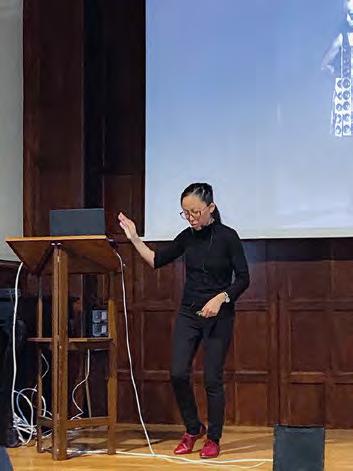
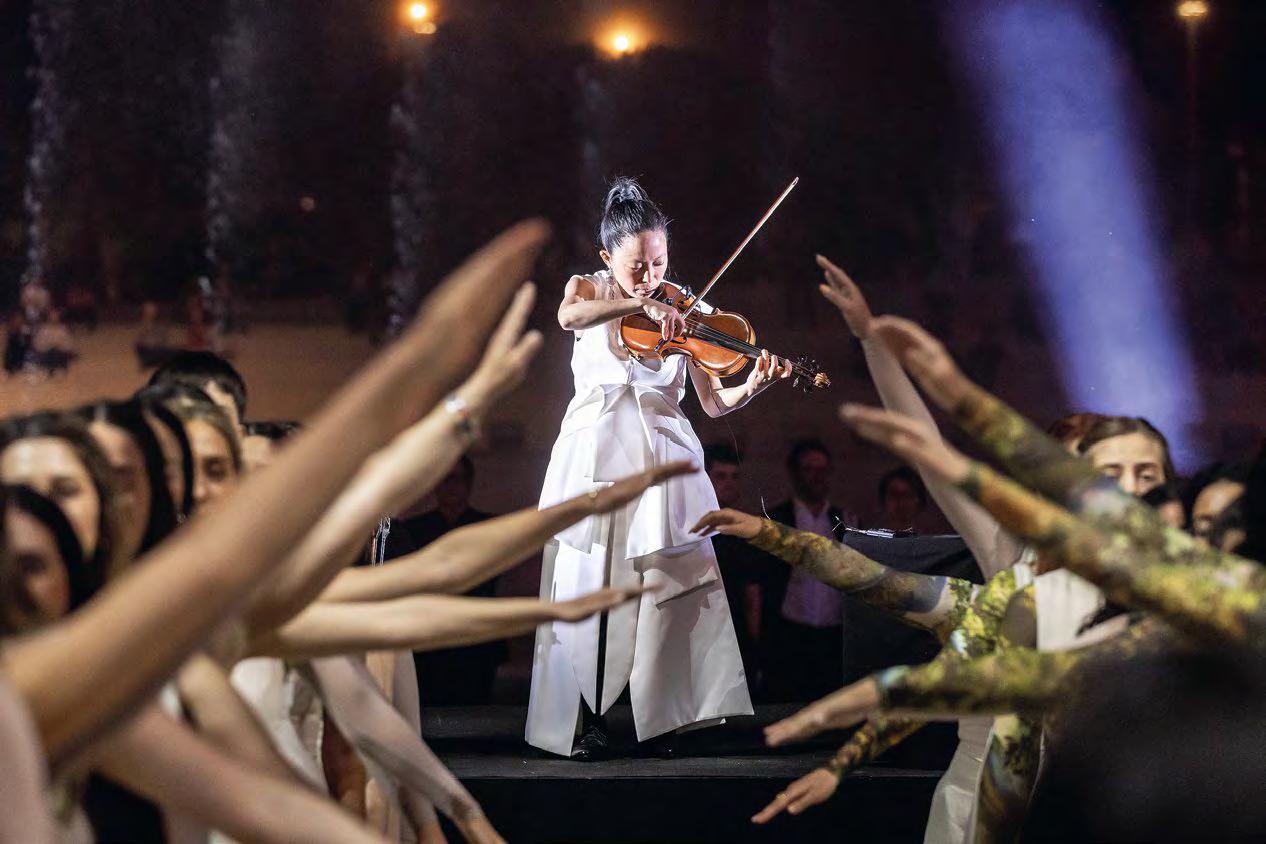
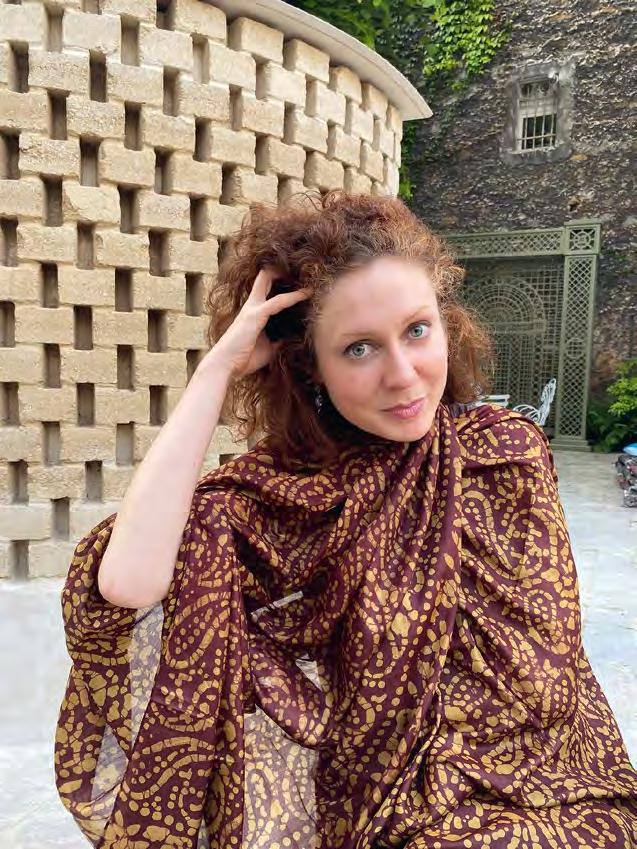
Yasmine Seale is a writer and artist whose work includes poetry, criticism, translation, and printmaking. Among her translations from Arabic are The Annotated Arabian Nights (W. W. Norton 2021), hailed by the New Yorker as “an electric new translation,” and Something Evergreen Called Life, a collection of poems by the Sudanese writer and activist Rania Mamoun (Action Books, 2022). Other work includes Agitated Air, a collaboration with Robin Moger responding to the visionary poet and metaphysician Ibn Arabi (Tenement Press, 2022). She has received the Queen Mary Wasafiri New Writing Prize for Poetry, as well as grants and fellowships from PEN America, the Wolfson Foundation, Koç University in Istanbul, and the Cullman Center for Scholars and Writers at the New York Public Library.
I have often tried to imagine Bayt al-Hikma, the “House of Wisdom” of medieval Baghdad where so much knowledge was created and preserved. After a year at the Institute, I feel I can. Here is a place where pleasure is part of the life of the mind and where the best thinking is done in conversation. The company of my fellow artists and scholars has sharpened my thinking, but more importantly it has deepened my feeling.
—— Yasmine Seale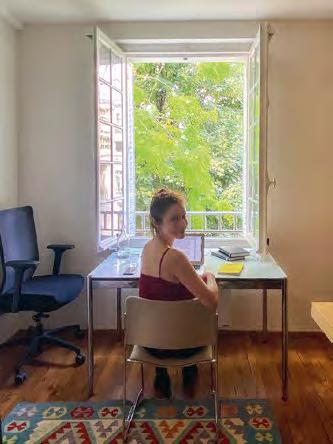
At the Institute, Seale worked on translating The Dove’s Necklace, a text on the nature of love from eleventh-century Cordoba. A masterpiece of Arabic prose and poetry and a window on the intimate life of Muslim Spain, The Dove’s Necklace was composed by the young Ibn Hazm before he became the towering jurist and theologian familiar to today’s scholars. In parallel, Seale continued researching the Arabic poetic tradition more broadly, and exploring the possibilities of translation as a collaboration across time and space. As a Fellow, Seale organized a dream dinner for her cohort on Valentine’s Day with artist-chef Joumana Jacob. The evening featured readings, musical performances, screenings, and photo presentations from Fellows, Harriman Residents, and their partners around the theme of dreams.
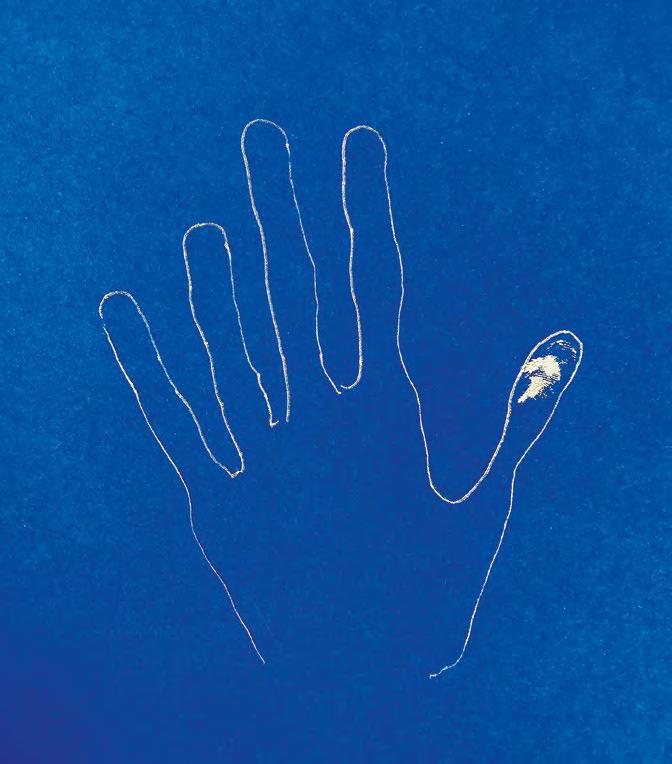
One year the tables turned — the winter fog became so dense Parisians, edgy, lurching
from their coaches, lost in daylight, paid to be steered to their own doors by the old eye hospital’s blind residents, whose knowledge of topography put in the shade the makers of the latest city map, exact
to the last tree, the draughtsmen who had sought extraordinary leave to enter private gardens, the professor of perspective who died trying to show what birds saw.
Some milk-g lass days a man born sightless made five louis
doing only this: piloting elbows by drifts of chestnut, paving stones.
This street’s uneven texture’s home.
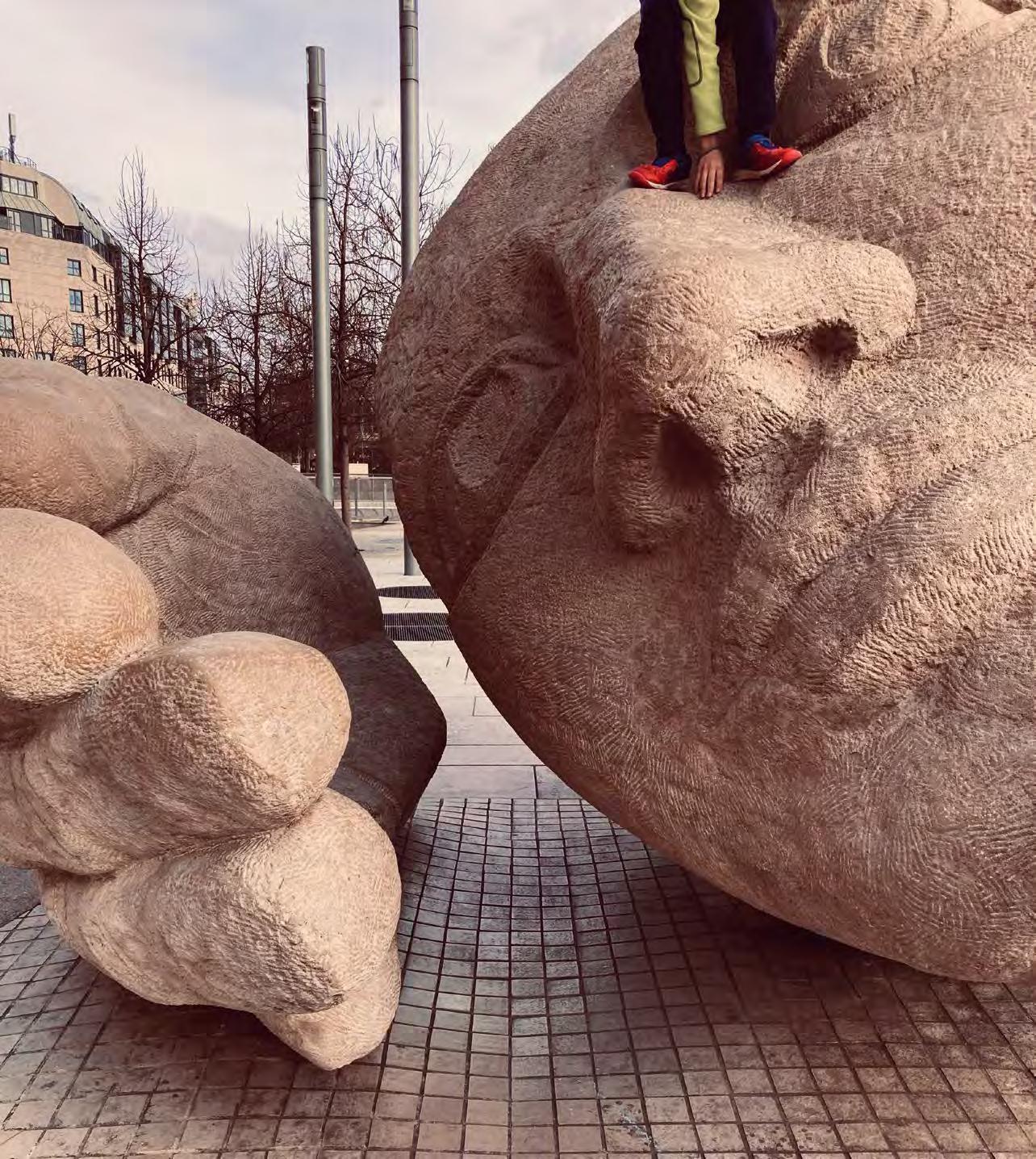
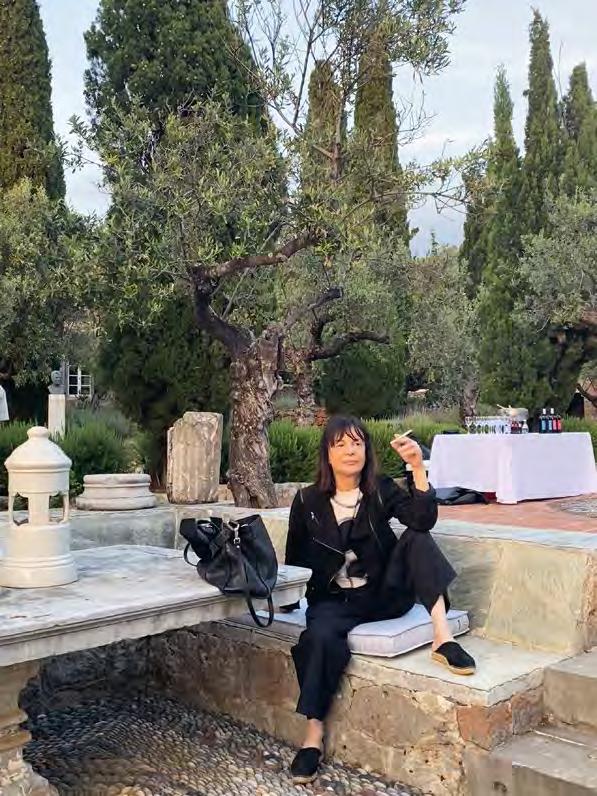
Ersi Sotiropoulos is a poet and novelist living in Athens. Trained in philosophy and cultural anthropology, she worked in the Greek embassy in Rome while becoming known for her literary achievements. Her work has been awarded the Greek National Book Prize twice, the Book Critics’ Award, and the Athens Academy Prize. She has also received the Dante Alighieri Prize for her poetry and has been shortlisted for the European Book Prize. Reconstructing a brief sojourn of the poet Cavafy in fin-de-siècle Paris, her novel What’s Left of the Night won the Prix Méditerranée Étranger 2017 and the ALTA Award 2019. She has written film and television scripts and participated in visual poetry exhibitions.
At the Institute, Sotiropoulos worked on her forthcoming novel, which takes place in just half an hour — thirty minutes within the mind of a Greek diplomat in Paris undergoing a brain MRI. While dreading the results, he reflects on an official inquiry into illegal refugee visas and is no longer sure of his innocence. Following an imaginary line of human greatness and folly, hope and disillusionment, the novel will examine the somehow mystified intersection between money, migration, politics, and personal responsibility. Beyond her project, Sotiropoulos participated in a public discussion of Paris in the Junta Years with Greek filmmaker Costas Ferris and the S NF Director Mark Mazower. She also contributed two Cahiers entries to the Institute’s website: a video entitled L is for Longing, and a filmed reading with Hassan Najmi, in Arabic and Greek, of Najmi’s poem A Man Contemplating his Life
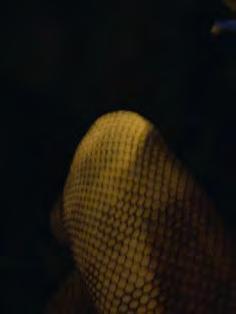
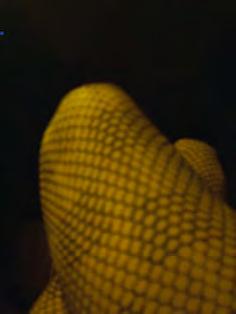
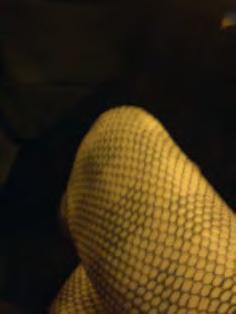
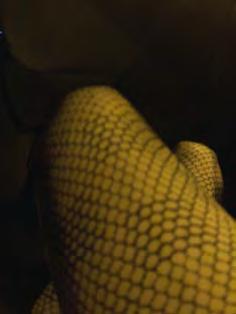
below Ersi in conversation with Greek film director Costas Ferris at Reid Hall.
Photo collage from Ersi’s Cahiers entry L is for Longing.
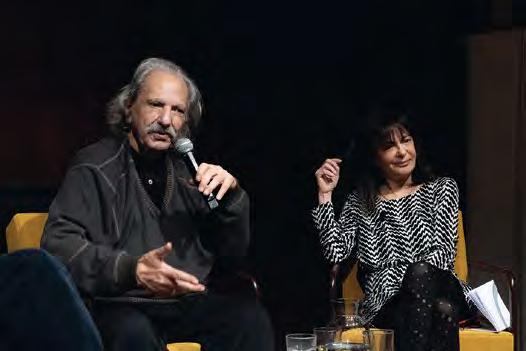
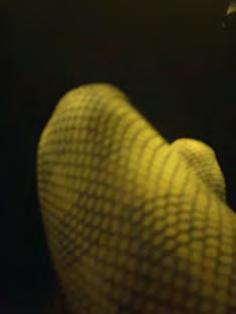
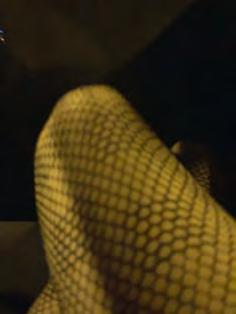
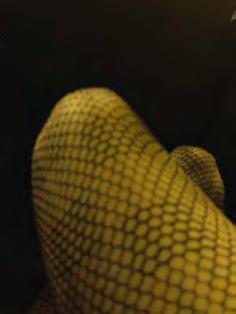
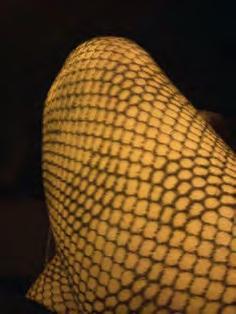
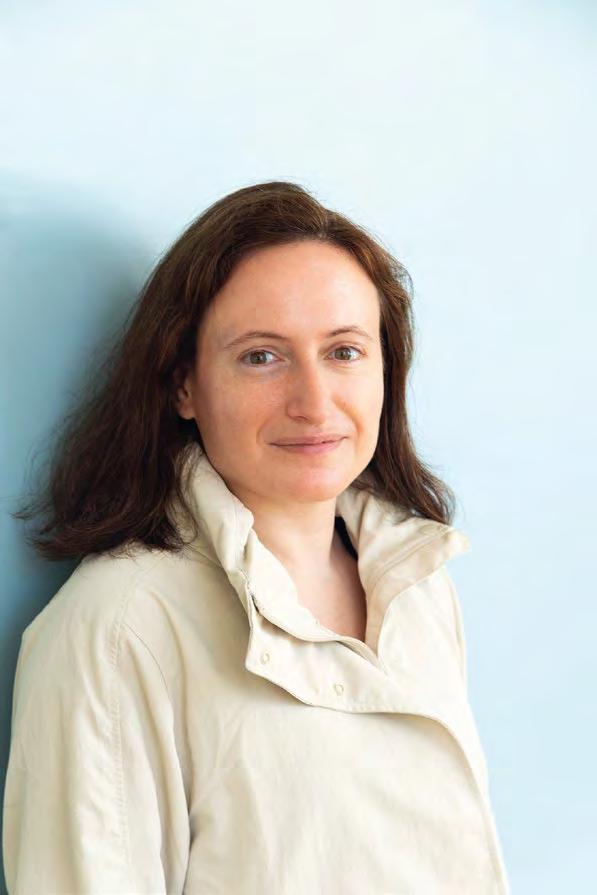
Eliza Zingesser is an associate professor of French at Columbia University. She is a specialist of medieval French and Occitan literature, with a particular focus on animal studies, cultural and linguistic contact, and gender and sexuality. Her first book, Stolen Song: How the Troubadours Became French (Cornell University Press, 2020), argues for the creation of an alternative point of origin for French literary history — a body of faux-archaic Occitanizing songs.
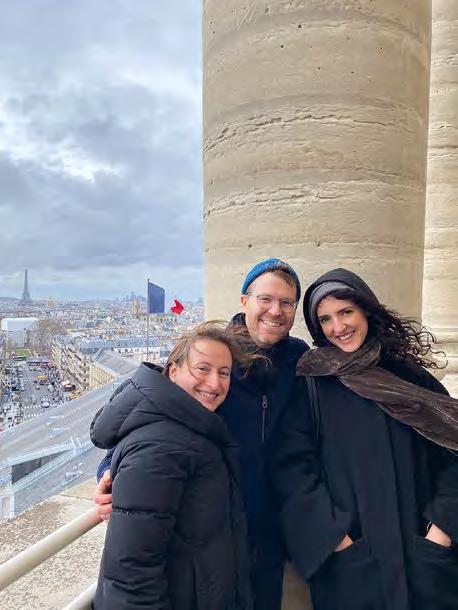
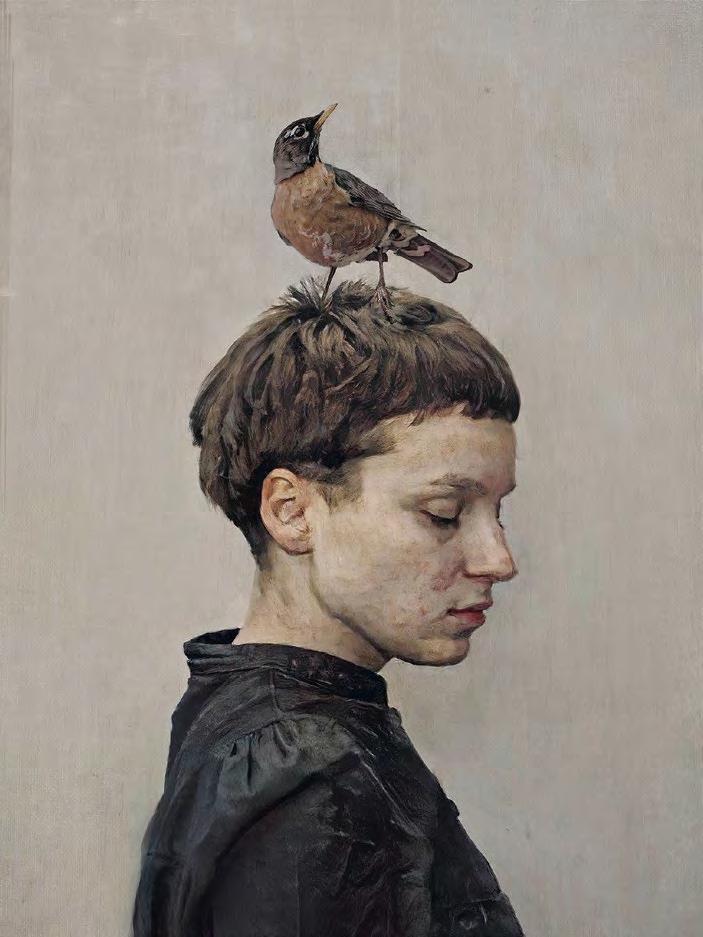
At the Institute, Zingesser worked on Lovebirds: Avian Erotic Circuits in Medieval French and Occitan Literature, a book-length project about the ways in which birds mediate the experience of erotic love in medieval literature. She argues that birds were not just “symbols” of love for medieval writers, but participants in various inhuman circuits that made eroticism possible. Models of affect and eloquence, messengers, and the fulcrum on which desire was (re-) oriented, birds were integral to the erotic experience. As a Fellow, Zingesser invited her cohort to think about the presence of bird-related expressions related to love in their languages.
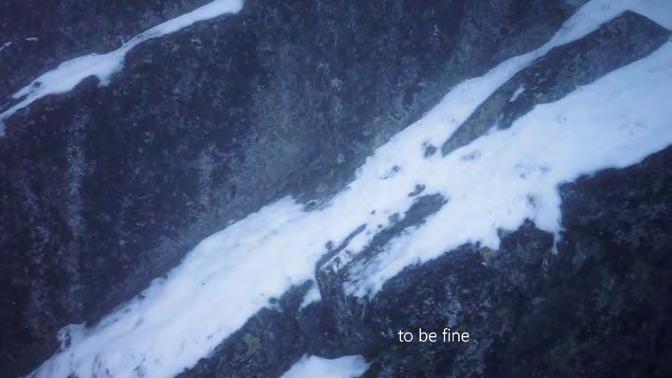
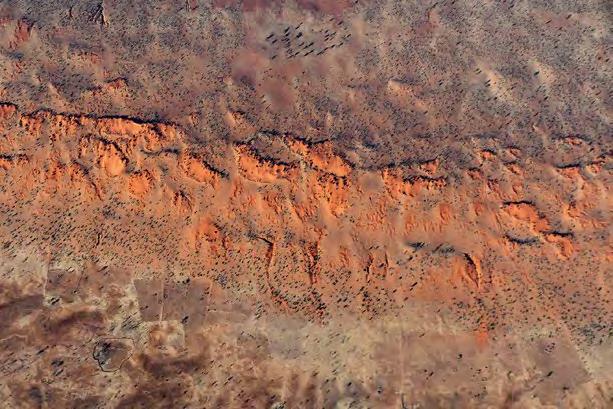
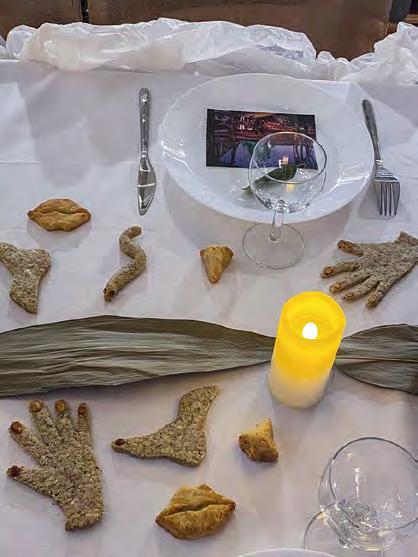

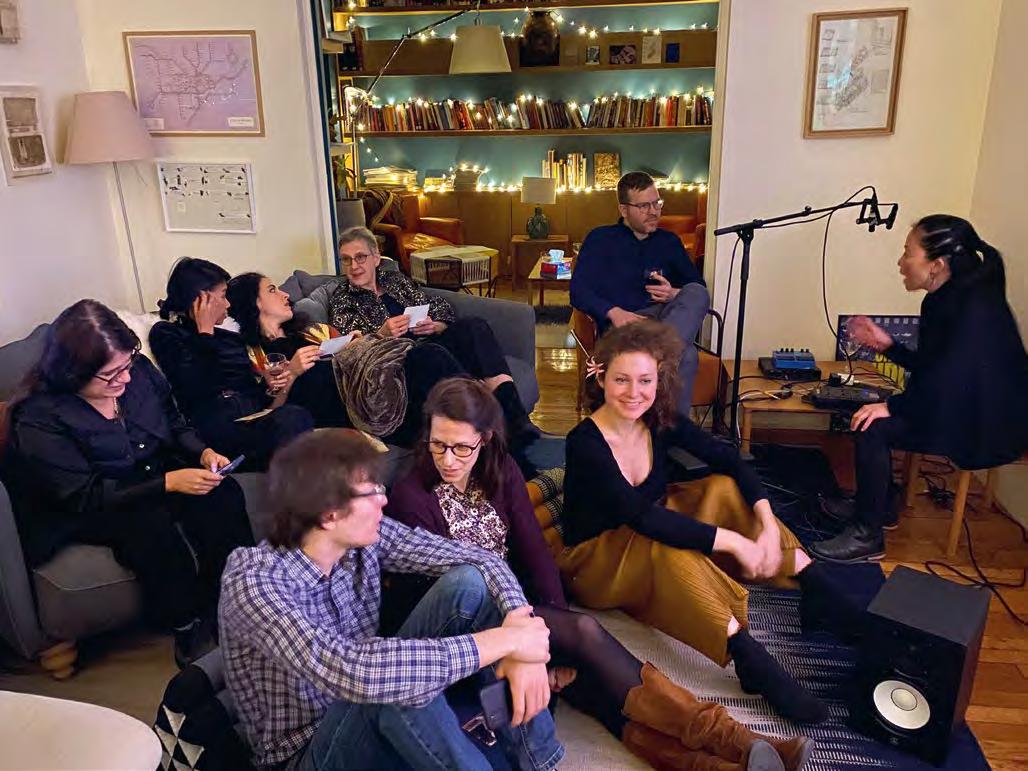
Fellows share a year of work, collaboration, transformation, and, as it turns out, dreams. The ideas and imagination that infuse the conferences, exchanges, and discussions month after month are abuzz not only in the Institute’s corridors but also in the unconscious corners of the mind. Even asleep, Fellows are fellowing.
previous page clockwise
Still from Zoya Laktionova’s film Suno; banquet des rêves table decorations; oracle bread baked by Joumana Jacob; Fellows and guests gathered at the Dreams event; aerial photograph by Adrien Gorremans.
Yasmine Seale became interested in this question of the Institute’s collective unconscious after overhearing two of her fellow Fellows recount an oddly similar dream. It also intersected with one of her current projects — translating her eighteenth-century Syrian ancestor’s dream encyclopedia. But dreams as a natural theme of the year imposed themselves in other ways, too. Alfredo Spagna, a cognitive neuroscientist of Columbia’s Department of Psychology, came to Reid Hall as a Faculty Visitor and recorded a podcast series on dreams with members of the Paris Brain Institute at the Hôpital Pitié-Salpêtrière. Fellow Hannah Reyes Morales presented her photographs on Living Lullabies, exploring how caregivers prepare children for sleep in environments fraught with risk. Ukrainian filmmaker and Harriman Resident Zoya Laktionova arrived at Reid Hall having finished a short film on the dreams of Roma women in Slovakia.
In this dre am-charged atmosphere, Yasmine came up with the idea of turning Valentine’s Day into an evening dedicated to the oneiric, with performances, readings, and contributions from the Institute’s community. With her friend, artist-chef Joumana Jacob, Seale brought dream imagery to the Institute kitchen and to the night’s menu: from clouds floating around the dining room table to oracular bread. A poem best captures the night’s essence:
14 ∙ 02 ∙ 2023
Isabella Hammad recounts a dream, Pauchi’s violin as company. Zoya Laktionova’s Suno on screen, a cinematic look at lost dreams. Seale unveils what sea dreams mean, her ancestor’s whispers in between.
Nikita Grigorov, a writer sworn, recites his poem A Terrible Beauty is Born. William Dougherty on the piano performs Chopin’s dreams of thunderstorms. William Sharpe's paintbrush, Paris adorned, Cité des Rêves, dreams galore.
Hannah Reyes Morales, lens and imagery, presents grimmer themes: Photos of broken dreams in overcrowded prisons in the Philippines. Adrien Gorremans uplifts us, pilot's dreams, aerial thumbnails, nature's schemes.
Melina Léon's compilation, a filmic dream, eclectic, worldly, and supreme. Dougherty, anew on the keys, plays I Wish I Knew How It Would Feel to Be Free. Nina Simone's song, a soulful plea, to end a night of dreams and poetry.
Natalka Bilotserkivets is the author of six books of poetry and a volume of selected poems, “We Shall Not Die in Paris” (“Ми помрем не в Парижі”). Her poetry has been translated into a dozen languages, and has been awarded many national and international prizes. There are recent English translations of Subterranean Fire (2020) and Eccentric Days of Hope and Sorrow (2021), which was shor t-listed for the 2022 Griffin Poetry Prize and widely reviewed. At the Institute, Bilotserkivets worked on Repossessions, a short poetry collection about the curious life of objects and the stories they tell during wartime. Beyond her project, she participated in a filmed Library Chat with Zoya Laktionova. Their conversation, around making art during wartime, was sponsored by MUBI’s Notebook magazine. There is also a conversation available on the Columbia Harriman Institute’s website between her and the Harriman Institute’s Masha UdensivaBrenner around Bilotserkivets’ life and work.
PAUL KLEBNIKOV FELLOW
Nikita Grigorov is a writer, researcher, scriptwriter, and journalist whose work has appeared in Ukrainian and foreign media as well as in literary anthologies. He is a poet and short-story writer who has also been involved with a number of independent films and short plays. Together with Veniamin Belyavsky, he contributed to, translated, and edited an anthology of Ukrainian writers from Donbas, Порода (Breed). At the Institute, Grigorov worked on a book chronicling his military medical experience with the Pirogov First Volunteer Mobile Hospital as well the stories of the doctors and fellow volunteers who operated it. Beyond his project, Grigorov organized a public event at Reid Hall with Ukrainian soldier, Ihor Mitrov, who read from his poems and shared clips from his video diary.
Zoya Laktionova is a filmmaker and visual artist whose work blends micro-histories, memory and the experience of war. Her documentaries explore the changing landscape of Mariupol (Diorama, 2019), her family history (Territory of Empty Windows, 2020), Roma women in Slovakia (Suno, 2019), and forced evacuation at the start of the war in Ukraine (Remember the Smell of Mariupol, 2022).
Her films have been widely screened in film fes tivals around the world and have received several awards in Ukraine and abroad. At the Institute, Laktionova worked on two projects: her first full-length documentary film, Ashes Settling in Layers on the Surface, about her family’s history in Mariupol, and a short film, Muto, telling the story of the Roma genocide in Ukraine. As a Harriman Resident, Laktionova organized screenings of her short films for students, Fellows, and the public, including one at the Cinéma Arlequin in Paris.
Anna Stavychenko is a musicologist, music critic, and classical music manager. She is Executive Director of the Kyiv Symphony Orchestra, Artistic Director of the "Open Music City" Public Initiative, and CEO of the Lyatoshynsky Club, which aims to research, perform, and promote the Ukrainian repertoire. She has curated special projects to support Ukrainian music and refugees for Poland’s Sinfonia Varsovia, and spearheads the Philharmonie de Paris’s special mission to provide temporary contracts to displaced Ukrainian musicians. At the Institute, Anna worked on a book that combines the real stories of Ukrainian refugee musicians — and her own — with insider narratives about the classical music industry. She also founded the 1991 Project, a non-profit association for the safeguarding and promotion of Ukrainian music and musicians in France and beyond. As a Harriman Resident, she organized weekly music classes for displaced Ukrainians in Paris as well as a series of public concerts.
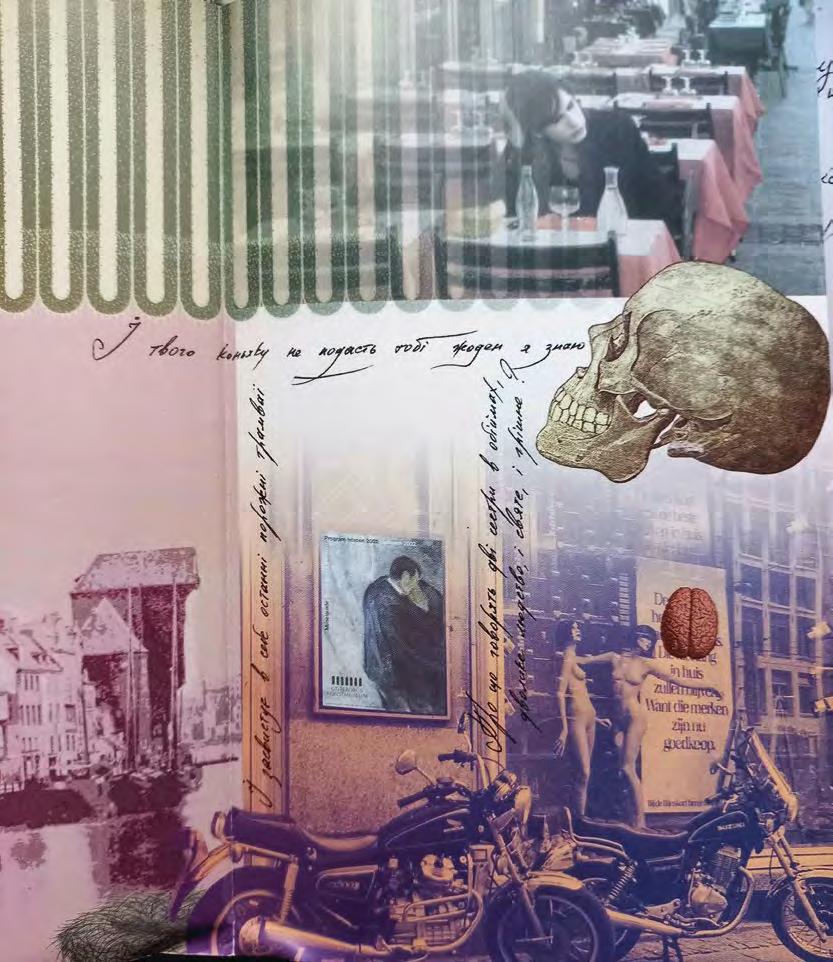
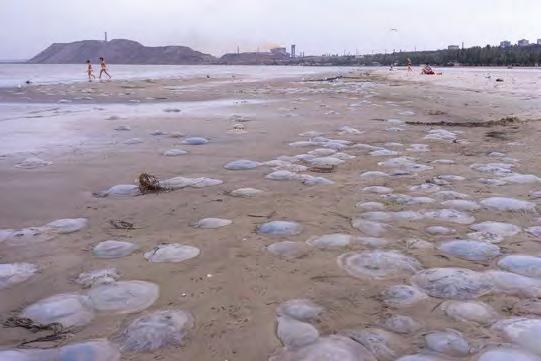
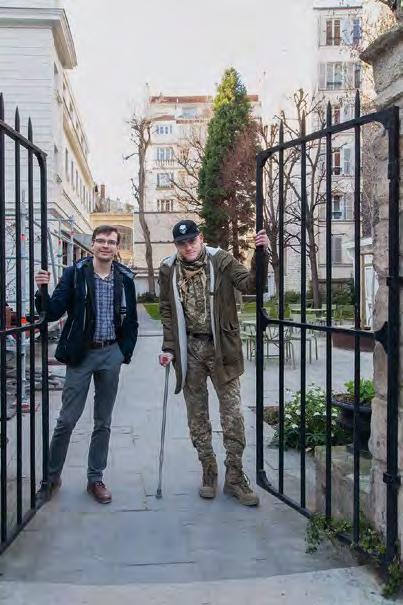
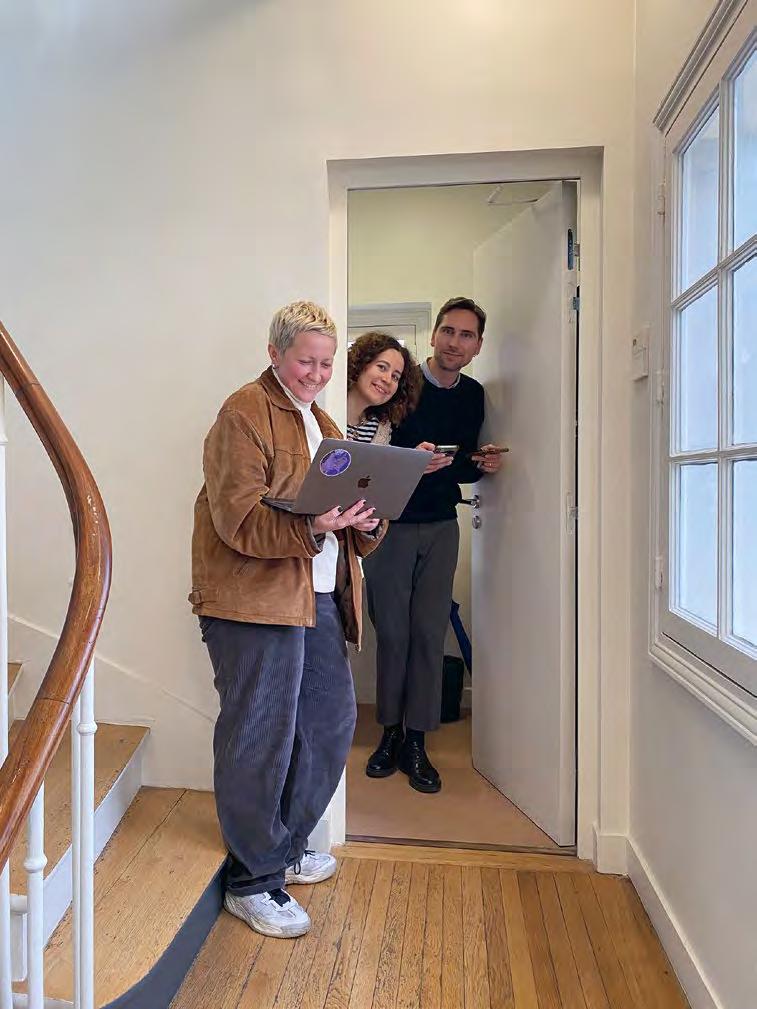
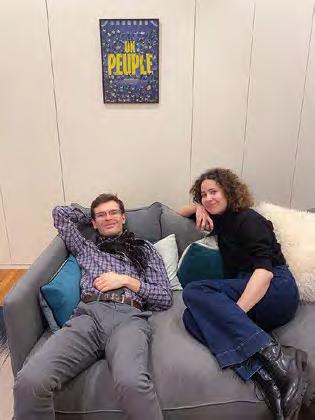
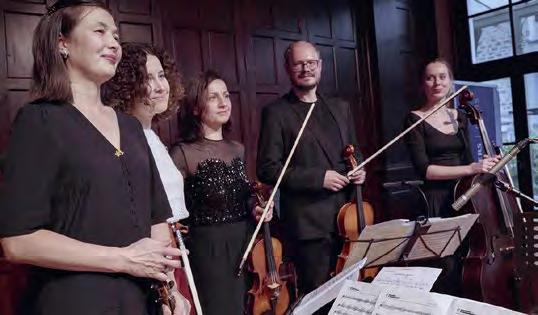
clockwise
One of the collages by Yurii Koch and Olga Pohribna-Koch used as illustration for Natalka’s poetry collection Hotel Central; still from Zoya’s film Territory of Empty Windows; Nikita and Ihor Mitrov at Reid Hall; Nikita and Anna in the Institute lounge; the Quatuor Bleu et Or performing at Reid Hall; Zoya, Anna, and James Allen at the Institute.
After my fellowship in Paris, I was invited to spend the year in New York as II&I Visiting Professor at Columbia University. I am not an academic and as a practicing photographer over the last 25 years, this was the first time in my career that I was able to pause and to reflect on how to prepare young minds to interpret and produce images in an ever-complicated world.
Becoming “Professor Pina” was at first a strange sensation. Fortunately, it didn’t last long. Teaching my class on Archive Photography at the School of the Arts, I found myself with a brilliant group of students who couldn’t have been happier to read photobooks for homework. Together, we questioned the role of photography in understanding modern events and the ways in which we can engage with archives as a means to opening a dialogue between past and present, even while exploring diverse notions of “truth.”
Two experimental courses shaped my second semester. Crossing disciplinary boundaries, I co-taught Picturing Antigone in the Classics Department with Professor Dimitris Antoniou, where we asked students to make connections between Greek tragedies and the visualization of contemporary issues through photographs. I also taught Visualizing History: Photography in Conflict and Crisis in the History Department. It was with great delight that I met there with 15 students each week to explore conflicts through images – from the Crimea War, the first conflict to be photographed, to the world wars and the current invasion of Ukraine. We considered technological transformations in photography, evolutions in public opinion, and the obstacles to “facts.” At the end of the semester, a student from Syria sent me this message: “ Every time I see a photograph I think about the meaningful discussions we had in class. I will forever cherish the conversations we shared.” After this year of teaching, I’m happily surprised by and grateful for the young and engaged students I met who shared my enthusiasm for photography and who have introduced me to a new passion: being Professor Pina.
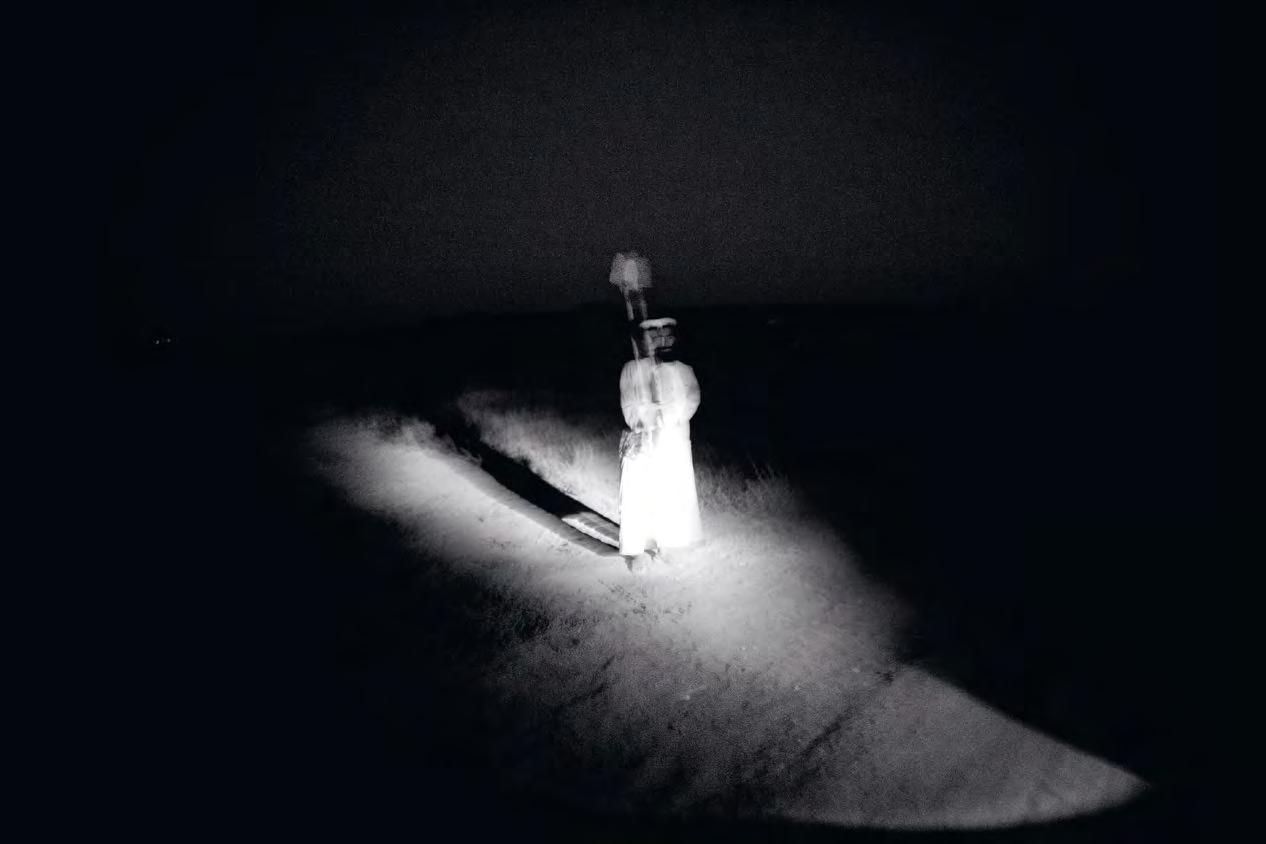
A transformative experience. Most powerful were the new friends I made, and the generative interdisciplinary and trans-disciplinary conversations we had – this kind of thing is easy to promise and much harder to deliver, but delivered it was.—— Adam Sobel
next page clockwise
Penguins on Kerguelen Island; Kimberlé in workshop with students; Lynnette Widder in front of the Raw Earth Pavilion that she and Lola designed for Reid Hall; Francesca and Germano Cecere during a Library Chat.
Francesca Bartolini is Associate Professor of Pathology and Cell Biology at CUMC. She earned her Ph.D. in Biochemistry from NYU. She heads a research laboratory investigating the role of forminmediated microtubule stability and tubulin post-translational modifications in the onset of neurodegenerative and neuropathic disease.
Lola Ben-Alon is an Assistant Professor at Columbia GSAPP, where she directs the Natural Materials Lab and the Building Tech curriculum. She specializes in socially and environmentally sustainable building materials, construction practices, and engineering-architecture collaborations.
A lifeline for my creative process.
—— Michael Burger
Michael Burger is the Executive Director of the Sabin Center for Climate Change Law. He oversees a dynamic team of attorneys working in eight program areas to combat climate change. His research and advocacy focus on legal strategies to reduce greenhouse gas emissions and promote climate change adaptation through pollution control, resource management, land use planning, and green finance.
Kimberlé W. Crenshaw is a pioneering scholar and writer on civil rights, critical race theory, Black feminist legal theory, and race, racism and the law. In addition to her position at Columbia Law School, she is a Distinguished Professor of Law at the University of California, Los Angeles.
Qiang Du is the Fu Foundation Professor of Applied Mathematics at the Department of Applied Physics and Applied Mathematics (APAM), Fu Foundation School of Engineering
and Applied Science (SEAS), Columbia University. He is also affiliated with the Data Science Institute (DSI). He chaired the Applied Mathematics Program Committee from 2014–2020 and served in DSI as a co-Chair of the Center for Foundations of Data Science from 2017–2019. Currently, he also serves as a co-Chair of the Center for Computing Systems for Data-Driven Science.
David Goldberg is a Lamont Research Professor. He received his undergraduate and MS degrees in earth and planetary sciences from the Massachusetts Institute of Technology, and his doctorate in geophysics and an MBA from Columbia University. He also currently serves as a Deputy Director of the Lamont-Doherty Earth Observatory and Associate Director of the the Marine Large Programs division, a core faculty member for the Lenfest Center for Sustainable Energy, and a lecturer in the Columbia University Sustatainabiltiy Science program.
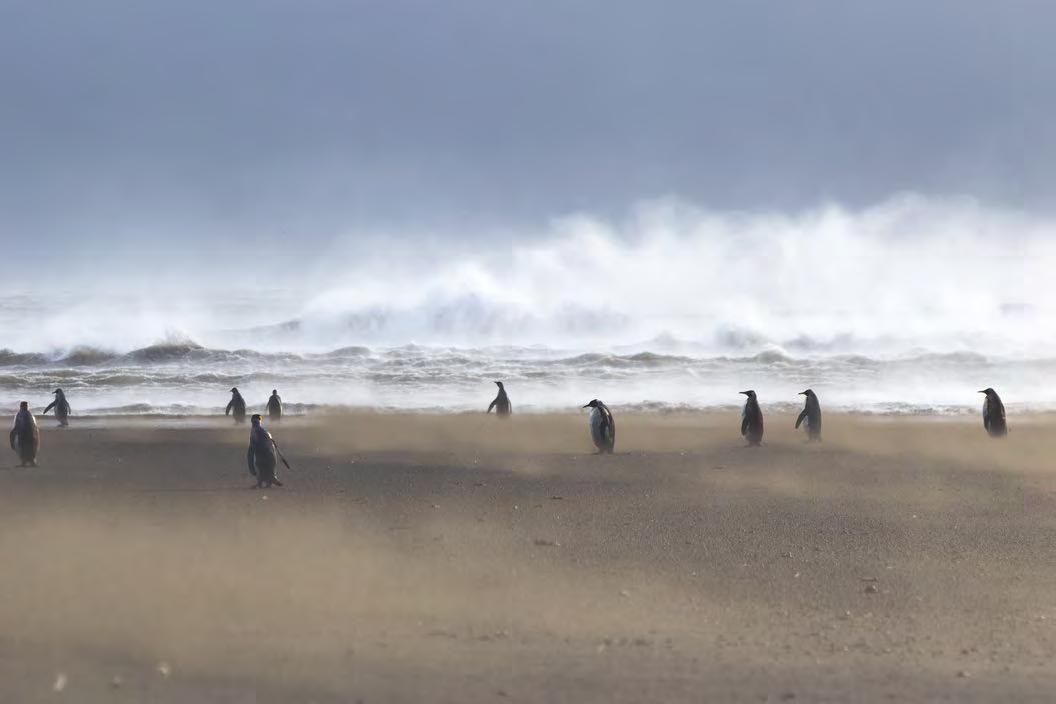
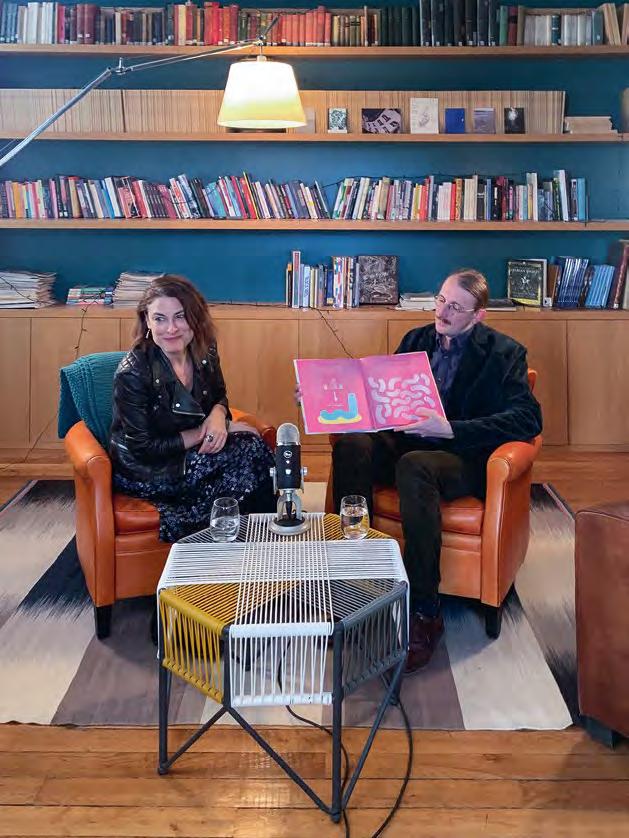
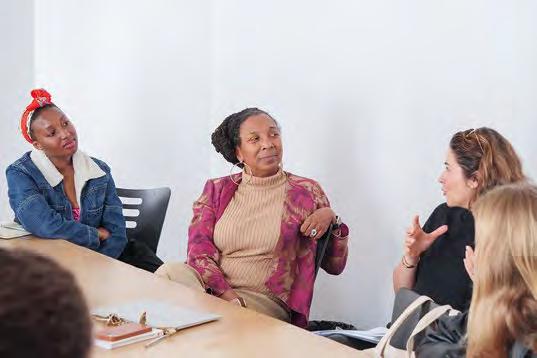
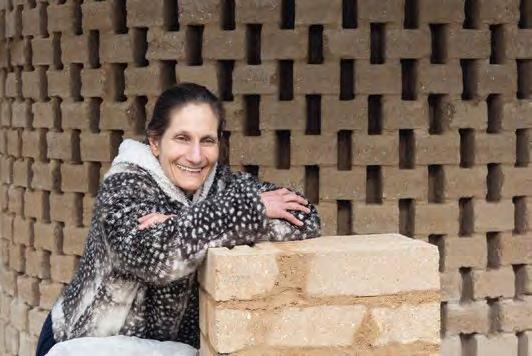
One of the most generative and creative intellectual experiences I have had.
—— Olatunde Johnson
Olatunde Johnson is Jerome B. Sherman Professor of Law at the Columbia Law School. In 2016, she was awarded the Law School’s Willis L.M. Reese Prize for Excellence in Teaching and Columbia University’s Presidential Award for Outstanding Teaching. In 2009, Columbia Law School students selected Johnson as the Public Interest Professor of the Year, praising her as a “role model for aspiring public interest lawyers.” In February 2020, she was appointed by the U.S. Department of Justice to the Resolutions Committee honoring Justice John Paul Stevens, for whom she clerked.
Mae M. Ngai is Lung Family Professor of Asian American Studies and Professor of History, and coDirector of the Center for the Study of Ethnicity and Race. She is a US legal and political historian interested in the histories of immigration, citizenship, nationalism, and the Chinese diaspora. She is author of the award-winning Impossible Subjects: Illegal Aliens and the Making of Modern America (2004); The Lucky Ones: One Family and the Extraordinary Invention of Chinese America (2010); and The Chinese Question: The Gold Rushes and Global Politics (2021).
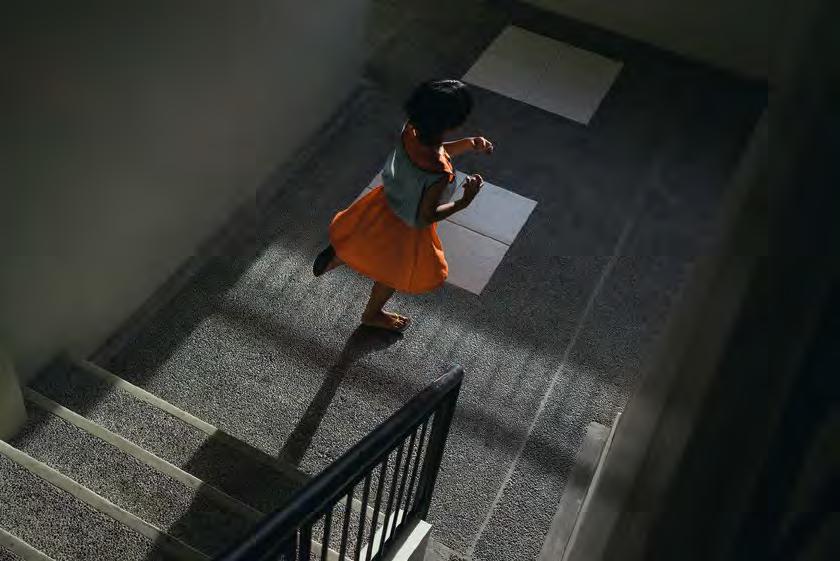
Adam Sobel studies weather and climate, with a focus on extreme weather events and a particular interest in the tropics. Adam Sobel received a BA in physics and music from Wesleyan in 1989 and a PhD in meteorology from the Massachusetts Institute of Technology in 1998. He received the Meisinger Award (2010) and Louis J. Battan Author’s Award (2014) from the American Meteorological Society, the Ascent Award from the Atmospheric Sciences Section of the American Geophysical Union (2014), and the Lamont-Doherty Award for Excellence in Mentoring (2010).
Alfredo Spagna is Lecturer in the Discipline of Psychology, Director of Undergraduate Studies in Neuroscience and Behavior. His research focuses on the psychological and neural mechanisms of Attention, Perception, and Mental Imagery.
In the Department, he teaches Neuroscience courses (both introductory and advanced seminars) and serves as the Director of the Neuroscience and Behavior Major.
Delphine Taylor is an Associate Professor of Medicine at CUMC. She is now course director of Foundations of Clinical Medicine Seminars, which covers such topics as medical interviewing and the patientdoctor relationship, ethics and professionalism, sexuality, cultural competence, health promotion, health systems, substance abuse, and palliative care. She leads small groups in the Foundations course in the preclinical and clinical years and precepts for the Medicine Clerkship. She was awarded the Charles W. Bohmfalk award for Excellence in Teaching in the Pre-Clinical Years at P&S in 2007, named a fellow in the Glenda G arvey Teaching Academy in 2009, and given a teaching award for Outs tanding Small Group Teaching by the P&S class of 2013.

—— This conversation between Hannah Reyes Morales and Adam Sobel is an extract from the Institute’s podcast episode Typhoons and Socks . You can find it on the Cahiers page of our website.
HANNAH: My memories of typhoons were always related to problems with my socks. My first experience when the typhoons were really bad was having to go to school, if class wasn’t canceled, and having to wade through the water while my socks were drenched. I also remember getting stuck on the second floor of my house and not knowing where my grandmother was. When the electricity is down, you know, you're on the second floor of your house.
ADAM: Because the first floor is flooded?
HANNAH: Yeah, because the first floor is completely flooded up to the stairs. You can't even go down. We all exchange stories around it because by the time it's bad, you're just trying to get home or you're trying to get somewhere where you can take shelter. And often typhoons will happen when you're out and about. When I was growing up, there wasn't a lot of preparedness about typhoons necessarily.
ADAM: How about the forecast? Were you looking at that?
HANNAH: I mean we don't always look at weather forecasts because in the Philippines it's always hot and then it's always wet. And so for a lot of us, you try to get home and I remember my cousin telling me that he was wading home from school and then there were two cars that hit each other because of the waves that he had created, you know little things like that.
ADAM: Were most of the floods you experienced rain-driven?
HANNAH: The ones that I talked about earlier were rain-driven, but I think they were escalated because of dams breaking.
ADAM: The reason I ask is because Manila is on the back side of the island from where the storms come from. It doesn't get hammered by the Haiyan-type events which are the really powerful ones that blow houses down and have huge storm surges. Maybe that's why Manila is there historically, because it was a little bit safer than some places.
HANNAH: Perhaps.
ADAM: But the floods from rain, you can't protect it from that. The geography doesn't protect it from that. And even weak storms, the way we classify them nowadays is by wind. Categories 1, 2, 3, 4, 5, are all wind-based. You can have a storm that's weak in terms of wind and doesn't get, at least in the US, the media that excited. They'll say, oh, it's just
a tropical storm, but those can cause huge flooding. The wind and the rain are not that strongly related, so you can have weak winds and very strong rain.
HANNAH: It's interesting how dependent the stories are on these statistics. They're always like, oh, this was the most heavy flood, or like, oh, this was this category storm. And, it's interesting because I suppose there's more local ways of understanding weather, right? More local ways of seeing how the rain comes and whether it falls, what kind of adaptation you make based on what you're seeing just from looking at the sky. But now people are much more heavily reliant on data for how they track whether or not they respond to this. And then, later on after the storm, it's based on whether or not it gets donations. Whether or not there's media attention, whether or not it gets talked about is so dependent on these categories and these statistics.
ADAM: Right. Yeah. A little inappropriately so.
HANNAH: What I'm trying to think about lately with my work is how to make a counter-narrative to that, because in all those situations, we're statistics, we're recipients of the disaster, we're recipients of this exotic gaze, right?
Filipinas, Filipinos are represented and treated as figures, objects of exotification, which is how we are portrayed in disaster narratives. How do you represent and how do you create stories that show more agency around all these things? How do you include the myth-making around them? How do you extend or build from that first look and how do you include the voices of the people who experience disasters? Because people have their own ways of processing what it's like to live in the tropics.
ADAM: What does it mean to live in the tropics? Do the typhoons have a role that you can articulate?
HANNAH: It's interesting because typhoons are a part of our lives. It's more about how we can make sense of typhoons, right? We want to see nature as mother nature, as nurturing. Then something like a typhoon happens and that notion is totally destroyed.
You're looking at the storm and you're experiencing the storm and it's so much bigger than what you can comprehend and that's when community-sharing, community-gathering, and myth-making is important because it's very hard to make sense of something as enormous as a typhoon.
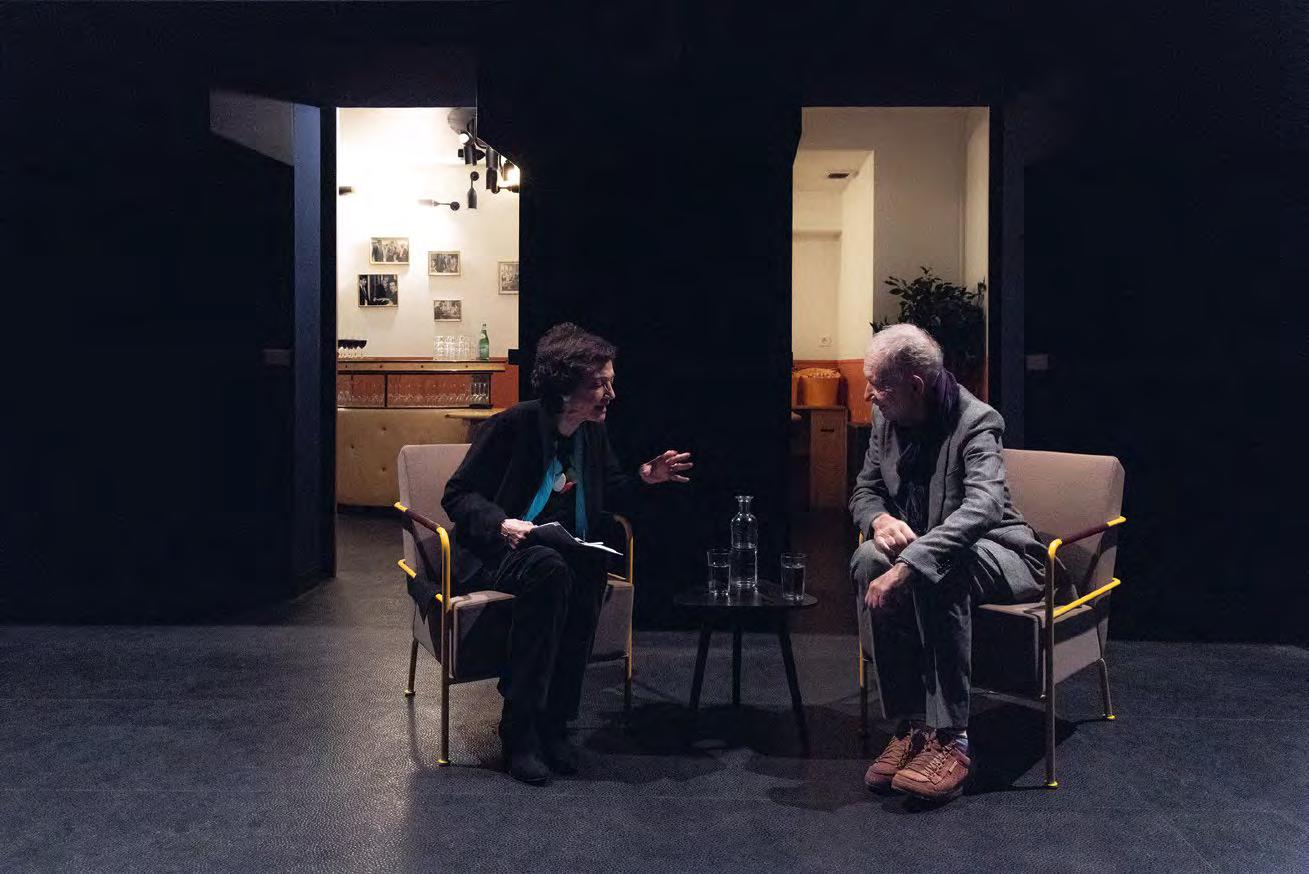
The Institute was delighted to acknowledge the staunch support and generosity shown by Betsy and Edward Cohen, and their son Daniel, by establishing an annual lecture in memory of Sidney Zubrow, Betsy’s father, to be delivered by an internationally renowned figure from the world of the arts. We had known at once the person we most wished to inaugurate these lectures and reached out to the man who is widely regarded as the greatest living documentary filmmaker in the world, Frederick Wiseman.

To our delight, he accepted immediately. But that was in late 2019 and thanks to COVID we had to wait a full two years before it could be delivered. It was worth the wait. The invited audience in the Silencio des Prés, just off the Place Saint-Germain-des-Prés, watched a rare screening of his remarkable The Last Letter, a filmed dramatic monologue adapted from a central episode of Vasily Grossman’s novel about the Second World War, Life and Fate. This was followed by a discussion on the film between Wiseman and Carol Gluck, Ge orge Sansom Professor of History, at Columbia University. It was an unforgettable occasion which gave us a chance to see rarely-discussed sides of Wiseman and his life and to explore the interconnections between the maker of the films and the films themselves. We also es tablished what we hope may become a tradition when the following day he honored us with a visit to meet the Fellows over lunch at the Institute.
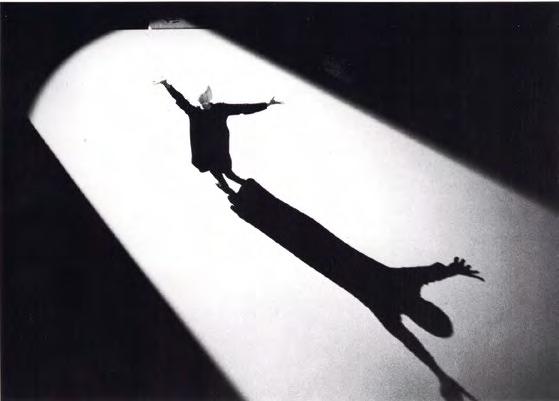
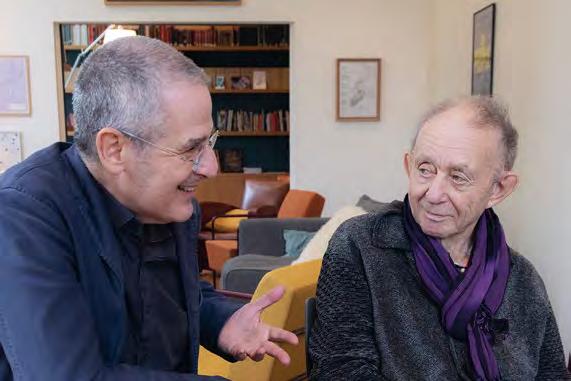
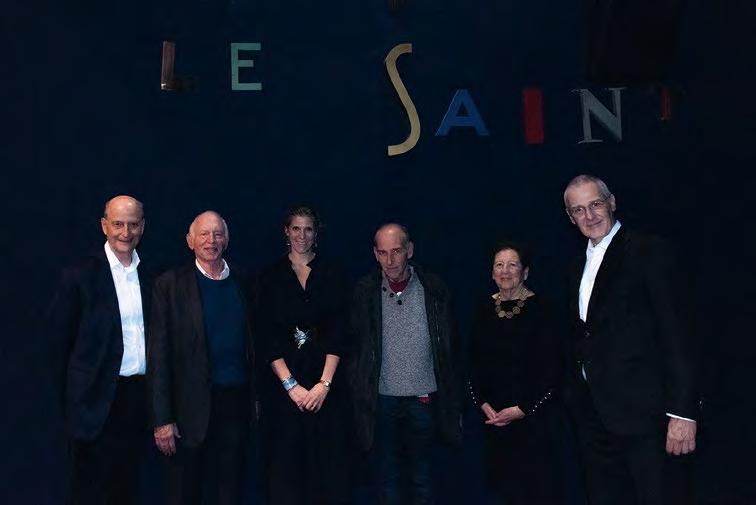
In 2022–2023 the Stavros Niarchos Foundation Public Humanities Initiative (SNFPHI) continued to deepen its collaboration with the Institute for Ideas and Imagination, while firmly establishing itself as the primary vehicle for the support of public humanities projects in Greece, connecting Hellenic Studies to broad public audiences around the world. In this fourth year of operation, we were finally able to do many of the things that had been impossible at the start of the pandemic: bring awardees to the Institute in Paris and Columbia’s Morningside campus in New York, organize in-person events in Greece, and visit project sites and meet members of the surrounding communities.
Much of our efforts concentrated on supporting our second cohort of public humanities awardees based throughout Greece. Considered as a whole, their seven projects explore two overarching questions: who counts as Greek, and what kind of history is worth remembering? To address these questions, the projects draw on archives, oral history, collective memory, ethnography, and material culture to produce a shadow theater play, films, podcasts, online exhibitions, climate science, and a large-scale urban game.
Artist Spyros Angelopoulos collaborated with Greek and Turkish historians and anthropologists to develop Karagiozis in Asia Minor, a shadow theater play that presents new research on the Greek Turkish war of 1919–1922 and explores painful aspects of the Greek military campaign that often remain untold in public discourse. In the play, Karagiozis, a war veteran suffering from PTSD, is asked to organize a parade in honor of dictator Ioannis Metaxas. As it turns out — spoiler! — Karagiozis is actually his Turkish double, who found himself in Greece by mistake during the exchange of populations.
Latent Community (the artists Sotiris Tsinganos and Ionian Bisai) worked on Avato, named after a village in northern Greece whose name literally means “a site that should not be accessed,” to explore the longstanding Black Muslim community that lives there. In the film, photographs, and research diary that they presented in a seminar at Columbia and are viewable on our website, they document their walks in Avato alongside shepherds deeply connected to their land yet living on the margins of mainstream society.
Sociologist Ilirida Musaraj and historian Kostis Karpozilos from the Contemporary Social History Archives worked on Voicing the Albanian Experience in Greece, an archive documenting Albanian migration and inte gration into Greek society. Ilirida, Kostis, and Columbia M.F.A. student grantee Erag Ramizi organized one of the most moving events of the SNFPHI event series “Other Topoi,” when, in February 2023, they invited second-generation Albanian Greeks to discuss photographs taken by Spyros Staveris documenting the arrival of their parents in Greece in the 1990s.
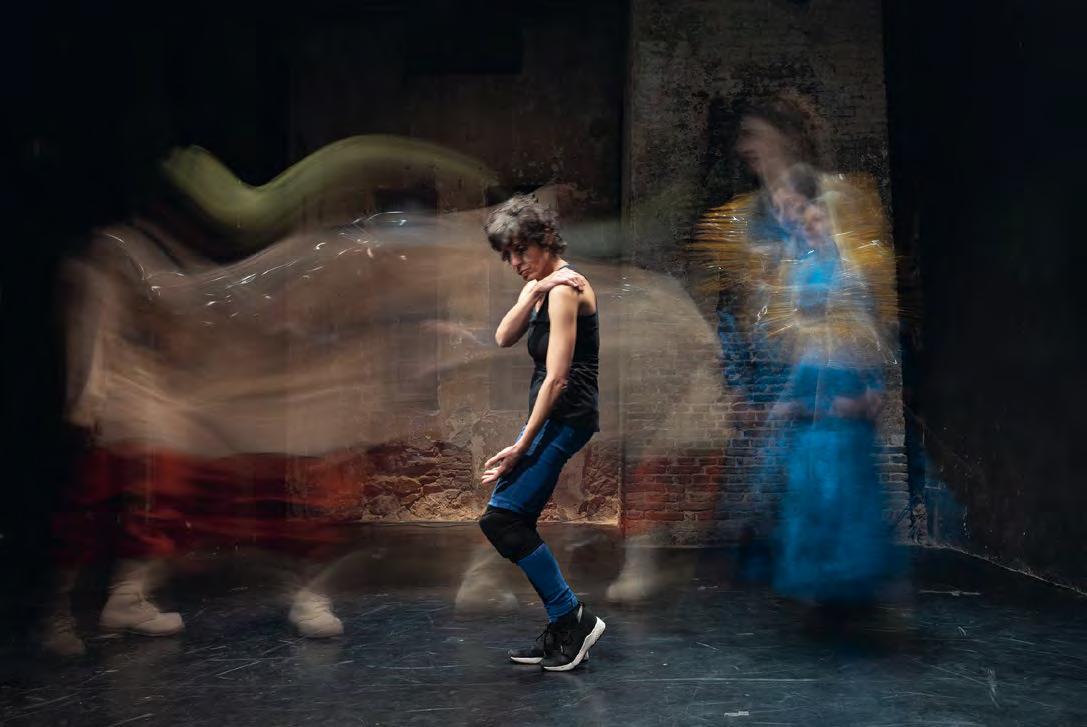
Anthropologist and photographer Stratis Vogiatzis also asks what it means to live in Greece as a member of a marginalized community in Chios’s Other Voices. He worked with inmates at the Prison of Chios, many of them immigrants lacking a shared language of communication, to create a collective publication documenting their lives. Stratis will present the project at the Photography Museum in Thessaloniki and the European Parliament and plans to work with curator Niovi Zarambouka Chatzimanou (from our first cohort of awardees) to showcase the project in Chios.
With Discovering Hadrian’s Aqueduct, OhiPezoume/UrbanDigProject, a group of engineers with a love for theater and performance, conducted a series of educational workshops centered around an Ancient Roman aqueduct in Athens in order to bring to primary schools something very much missing from the curriculum: a humorous and interdisciplinary encounter with the ancient past. The project concluded with a visit from former Institute Fellow Lynnette Widder, who shared experiences
from similar projects in Mexico and Italy, how-to guides for parents and educators, and a large-scale urban game designed with the help of Columbia s tudents and faculty from Classics and Engineering that drew inspiration from post-apocalyptic fiction and video games.
Documentary filmmaker Eva Stefani, artist Zafos Xagoraris, and journalist Katerina Oikonomakou completed A History of Childhood Senses: War, Occupation, and the City as Playground, a project that explores how children experienced the traumas of WWII and what sensorial memories they have carried with them into their old age. The outcome is an hour-long documentary depicting subjects laughing, cr ying, and singing while revisiting their childhoods and explaining how a particular smell evokes a vivid memory. The documentary will be available to view on our website, and we are working with students from the University of Athens to present footage in an installation at the Athens School of Fine Arts.
In May 2023, I visited Soufli near the Turkish border, where our awardees from the Aristotle University of Thessaloniki cre ated a podcast out of stories they collected from women who had worked in the town’s now abandoned silk processing plants. Podcast participants, their families, and local residents gathered to celebrate the project. We installed signs on three buildings around the town with QR codes that locals and visitors can scan with their phones to listen to women tell stories about the very places where they’re standing. When a month later wildfires destroyed the forests surrounding Soufli and many of its houses, we were told by local authorities that the project must continue as it’s one of the few sources of joy bringing the community together.
Much of this work with our awardees’ projects in Greece is informed by our teaching and research at Columbia. In addition to its annual Summer Practicum in Public Humanities and Hellenic Studies for undergraduates, SNFPHI also offered a new course this year, Picturing Antigone, which former Institute Fellow João Pina and I co-taught. We envisioned a course that would combine the study of classical reception with the acquisition of hands-on skills in photography and public humanities, while also serving as a model for future collaboration between Columbia faculty
and Institute Fellows. Students enjoyed learning the basics of photography and also visualizing all the places that we discussed in our readings (Khomeini’s Tehran, the Texas-Mexico border, “dirty-war” Argentina, apartheid South Africa, Taliban-sieged Kandahar, Covid-stricken New York) through João’s photographs and stories.
Summer 2023 marked the end of SNFPHI’s first four-year cycle and the beginning of the next. Eleni Gizas joined the SNFPHI team as the new Program Coordinator in January 2023 and has played an invaluable role in this transition. One thing we have learned from these first years is that public humanities involves working daily with contingency. We're deeply grateful to our our founding supporter, the Stavros Niarchos Foundation (SNF), a global philanthropic institution with an unparalleled local knowledge, for always being ready to devise new strategies for assisting local communities and a younger generation of cultural producers. Moving ahead, now as an integral part of the Institute for Ideas and Imagination, we look forward to expanding our online presence, launching two more calls for public humanities projects in Greece, continuing to offer grants and courses to the Columbia community, and organizing public events that push the boundaries of Hellenic Studies and public humanities. left Latent Community with George Moraitis, Mediterranean underwater field recordings.
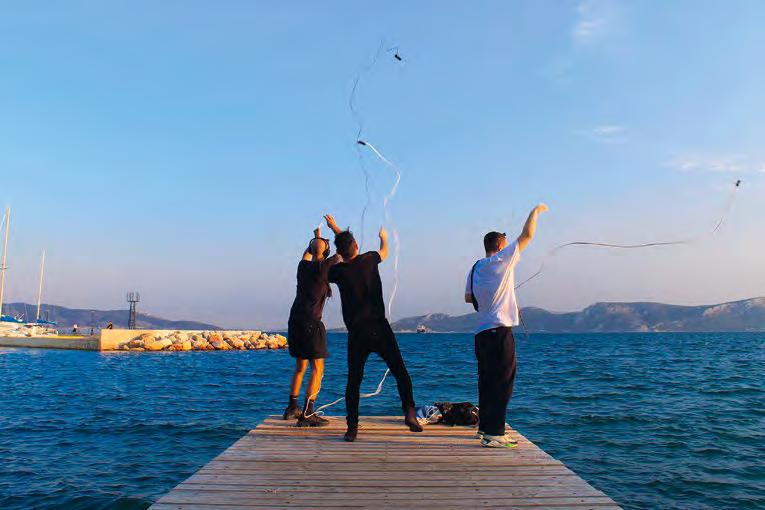
next page Marie d’Origny and James Allen climbing down the Panthéon’s lantern.
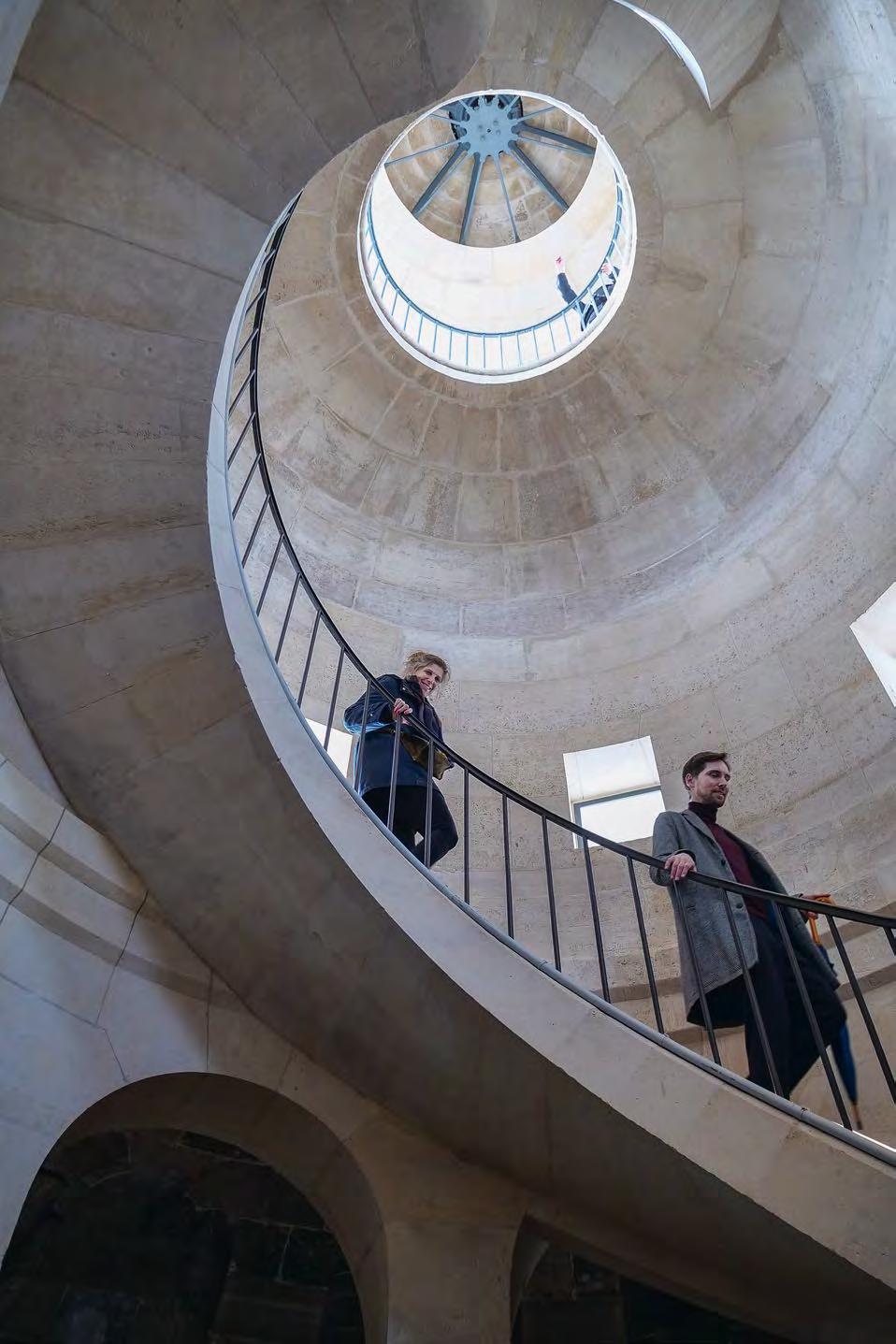
In May 2023, the Institute embarked on a special initiative designed to bring together a group of Fellows with some of the Stavros Niarchos Foundation Public Humanities Initiative (SNFPHI) awardees. Greece seemed the obvious location, if only because the Initiative’s projects are all located there, and we were fortunate beyond belief when the Benaki Museum agreed to organize a workshop with us that would be held in one of their exceptional properties.
below
January 1991: Albanian immigrants having just crossed the Greek border
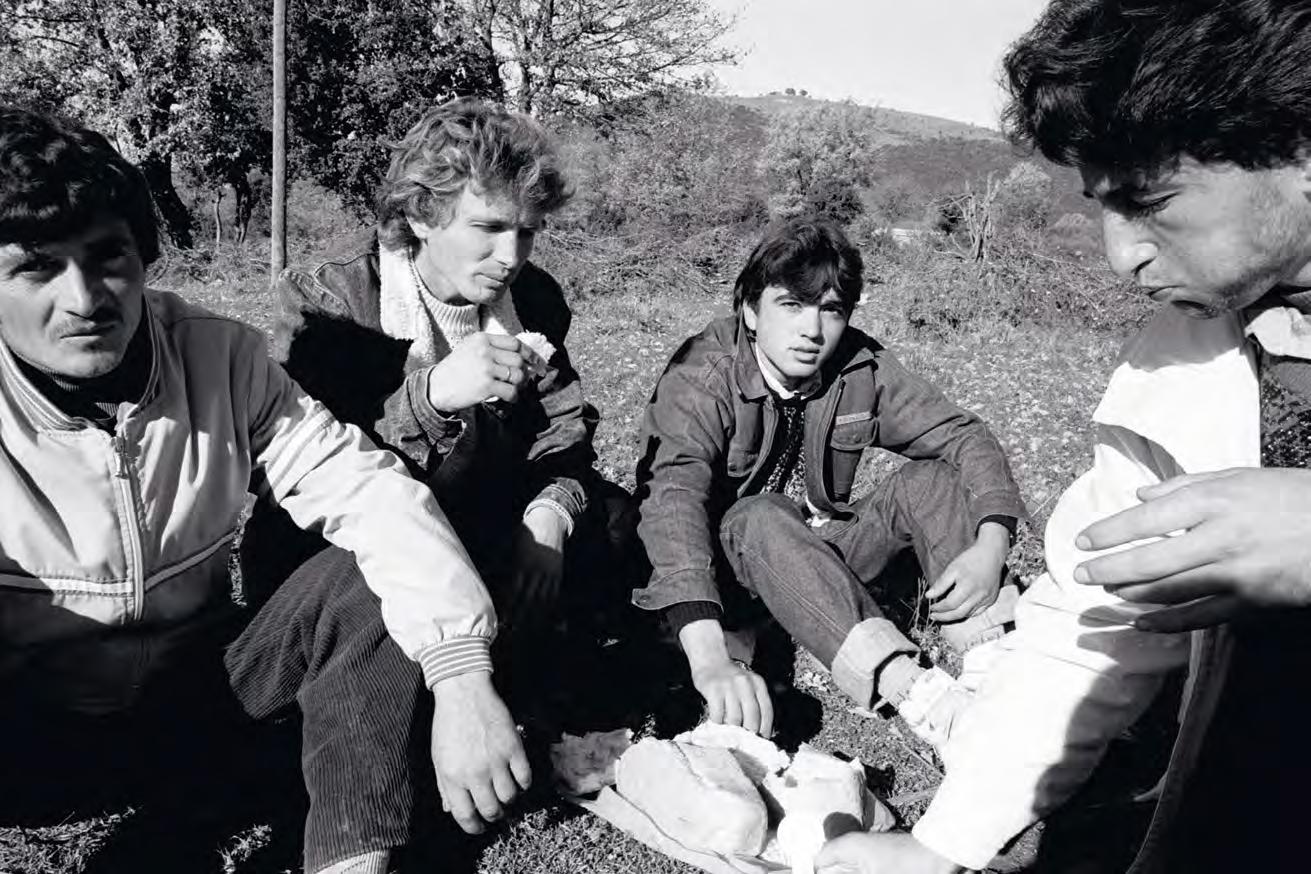

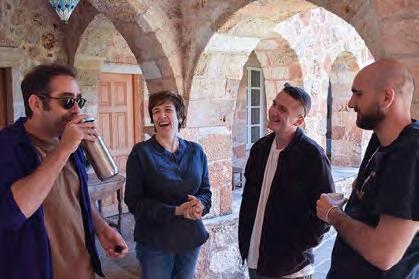
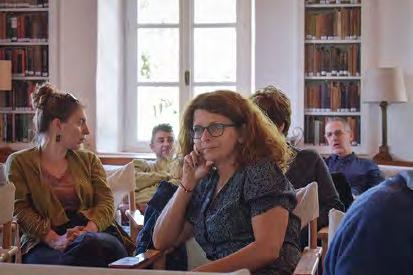
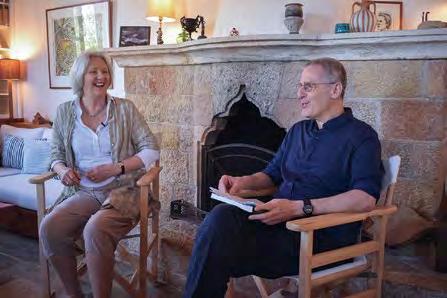
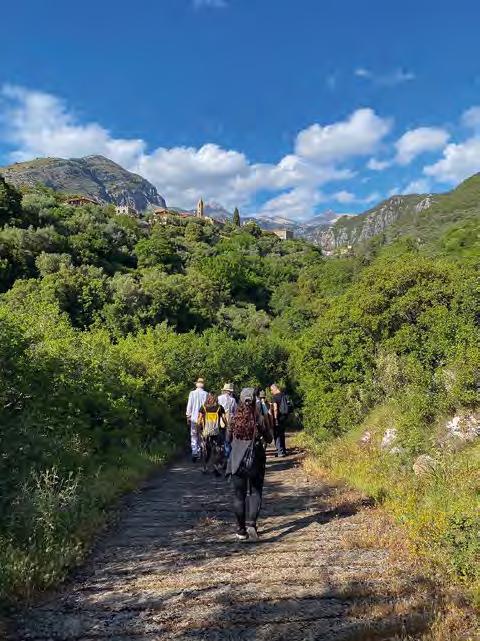
The workshop participants included Fellows Barry Bergdoll, Alessandra Ciucci, Melina León, Yasmine Seale, Bill Sharpe, and Ersi Sotiropoulos and PHI awardees Latent Community (Sotiris Tsiganos and Ionian Bisai), Dafni Kalafatis, Kostis Karpozilos, Theo Prodromidis, Katarina Protonotariatou, Eva Stefani along with Benaki Museum curator Polina Kosmadaki, writer Artemis Cooper and Institute and PHI staff. We also benefitted from the presence of curator Paolo Colombo and SNF staff members, Eleni Agouridi and Alexia Vasilikou.
Patrick Leigh Fermor was a remarkable figure, a British philhellene, who walked across Europe in the 1930s. Later, after an extraordinary war, much of which was spent in the mountains of Crete organizing resistance to the Germans, he turned his epic walk into a renowned piece of extended travel writing. He se ttled in Greece in a house that he built in Kardamyli in the southern Peloponnese. At his death in 2011 the house was bequeathed to the Benaki Museum and fully restored thanks to the generosity of the Stavros Niarchos Foundation (SNF). In accordance with terms of the donation it has been given a new life as a center for researchers, writers, and artists.
Our discussions e xtended over two days and opened with Artemis Cooper recounting her memories of Leigh Fermor and his relationship with the house before Bill Sharpe offered a sketch of the history of walking in art over the millennia. In the conversations that followed, filmmakers, poets, ethnographers, and historians of the built environment exchanged thoughts and experiences, exploring the public and political dimensions of what is often regarded as an inherently private activity. In between these sessions, a local guide brought us down to earth on two very different walks in the mountains behind the house. For those who took part it was an experience that will not be quickly for gotten and it forged contacts and projects that will lead to new work and new ideas.
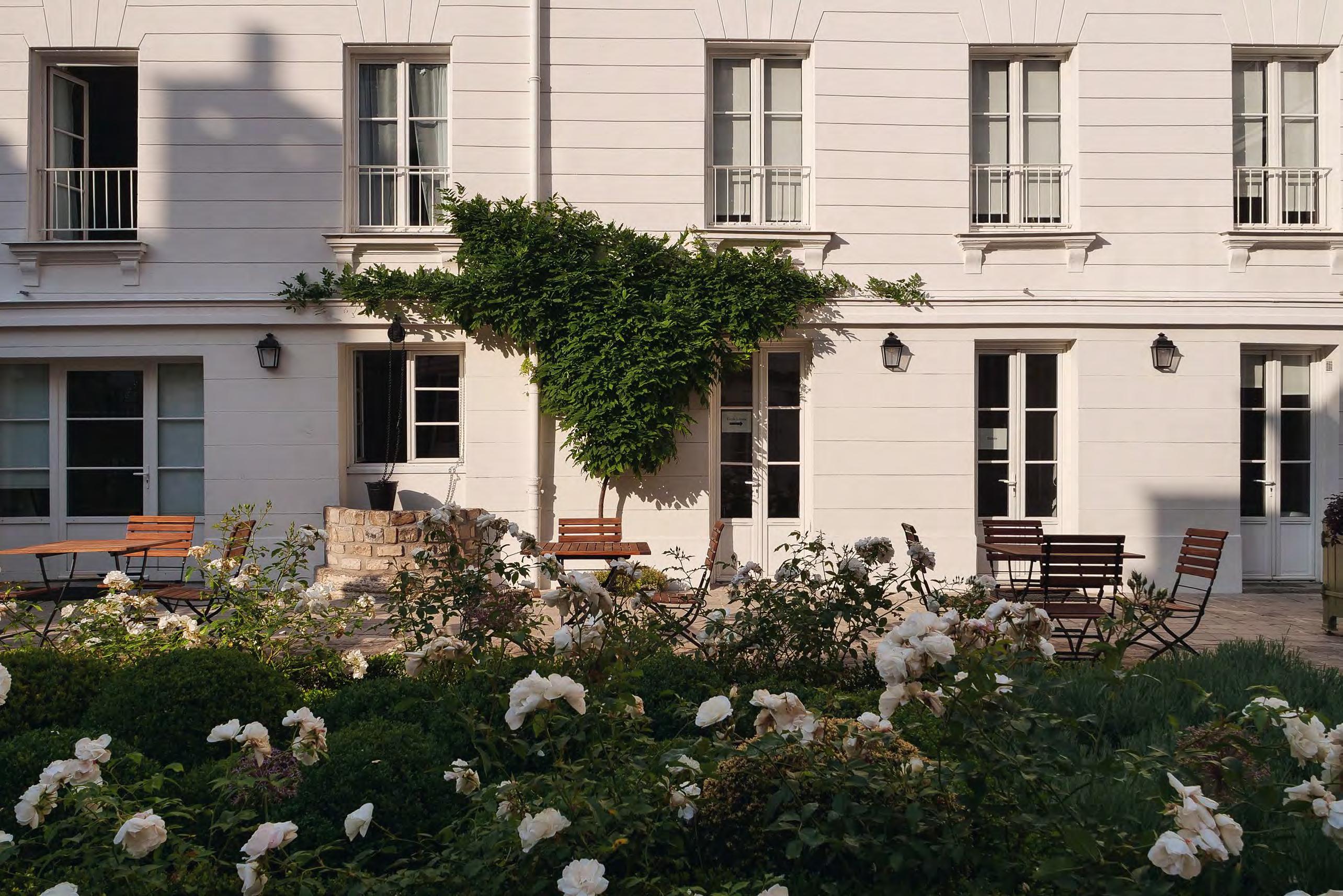

2022
September
Ersi Sotiropoulos
Between Scylla and Charybdis
October
Katharina Pistor Coded Power
Alessandra Ciucci Nass el Ghiwane
Yasmine Seale Love’s Grammar
November
Eliza Zingesser
Lovebirds: Avian Erotic Circuits in Medieval French and Occitan Literature
December
Isabella Hammad Some Third Element
A community of open discourse and thought across so many different practices – artmaking, film, writing, installation, bookmaking, music, pedagogy, gallery curation.
—— Lynnette Widder, Fellow 2020-2021
2023
January
Brian Larkin
Secular Machines, Media, and the Materiality of Islamic Revival
Melina Le ón
Abigail R. Cohen Fellow S an Blas
February
Yala Kisukidi Laetitia Africana
March
Hannah Reyes Morales In the Shadow of False Light
John Phan Vulgar Experiments
Barry Bergdoll
Abigail R. Cohen Fellow
Out of Site/ In Plain View: A History of Exhibiting Architecture Since 1750
April S abelo Mlangeni
Abigail R. Cohen Fellow
Uniting “Open Landscapes” (Ngiyobona Phambili)
May
Pauchi Sasaki ARTEMIS
William Dougherty (Re)soundings Renewed
2022 September Being in the World:
People and the Planet in French and Francophone Cinema
The film festival presented fourteen films that reconsider humanity’s place in the world. Organized by Columbia Maison Française with additional support provided by Cultural Services of the French Embassy, Columbia Climate School, Knapp Family Foundation, Paul LeClerc Centennial Fund, European Institute, Columbia Global Centers | Paris, Society of Fellows and Heyman Center for the Humanities, Alliance Program, and the Ins titute.
Rewriting the Script
Organized by the SNFPHI and co-sponsored by the University Seminar in Modern Greek and the Program in Hellenic Studies.
October
Deborah Levy and Colombe Schneck in Conversation Entre Nous series, co-organized with Columbia Global Centers | Paris and the American Library in Paris.
Sidney N . Zubrow Memorial Lecture
The inaugural lecture featured a screening of Frederick Wiseman’s The Las t Letter, as well as a conversation between the filmmaker and historian Carol Gluck.
Entering Avato
Or ganized by the SNFPHI and co-sponsored by the University Seminar in Modern Greek and the Sakıp Sabancı Center for Turkish Studies.
November
Three Archives in Conversation with Lynnette Widder, Mila Turajlić, and João Pina. Entre Nous series, co-organized with Columbia Global Centers | Paris and the American Library in Paris.
Days and Nights of Demetra K with Eva Stefani
Organized by the SNFPHI and co-sponsored by the University Seminar in Modern Greek and the Program in Hellenic Studies.
Thinking Translation
with Gayatri Spivak and Emily Apter Entre Nous series, co-or ganized with Columbia Global Centers | Paris and the American Library in Paris.
December
Exile in Paris: The Junta Years with Costas Ferris, Ersi Sotiropoulos, and Mark Mazower
Chios’ Other Voices: Making a Prison Zine
Organized by SNFPHI and the Jus tice-in-Education Initiative, Heyman Center.
2023
January
Drought
A Library Chat with Faculty Visitor Adam Sobel and climate scientist Alessandra Giannini.
Such Sweet Thunder: Ellington Plays Shakespeare with Robert O’Meally and Courtney Bryan. Entre Nous series, co-or ganized with Columbia Global Centers | Paris and the American Library in Paris.
February
Discovering Hadrian’s Aqueduct
Organized by the SNFPHI.
My Parents’ Photographer
Organized by the SNFPHI and the Contemporary Social History Archive (ASKI).
Typhoons and Socks
A Cahiers podcast with Hannah Reyes Morales and Faculty Visitor Adam Sobel.
Falling Asleep
A Cahiers podcast with Faculty Visitor Alfredo Spagna and the Paris Brain Institute’s Delphine Oudiette.
Decoding
A Cahiers podcast with Faculty Visitor Alfredo Spagna and the Paris Brain Institute’s Thomas Andrillon.
March
The Curious Life of Objects
A Library Chat with Zoya Laktionova and Natalka Bilotserkivets. Produced in collaboration with MUBI’s print magazine.
A Poet at War: The Experience of Ihor Mitrov with Nikita Grigorov and Ihor Mitrov. Organized by the Institute, and co-sponsored by Columbia Global Centers | Paris and the Ukrainian Institute.
Archae ologies of Care: The Refugee Colony of Washingtonia
Organized by the SNFPHI and co-sponsored by the University Seminar in Modern Greek and the Program in Hellenic Studies.
The High Winds of Kerguelen
A Library Chat with Marie Doezema and Faculty Visitor David Goldberg.
Non-Aligned and Ciné-Guerrillas: Scenes from the Labudović Reels with Mila Turajlić, Elaine Mokhtefi, and Madeleine Dobie. Event in New York sponsored by the Maison Française and the Heyman Center for the Humanities.
Trances: The Resonance of Nass el Ghiwane in Morocco and Beyond with Ahmed El Maanouni and Alessandra Ciucci. Or ganized by the Institute, and co-sponsored by Columbia Global Centers | Paris.
Le Populisme en Débat
Organized by Columbia Global Centers | Paris, Sciences Po, and Columbia Alliance and co-sponsored by the Institute.
The Infinity of War
with Zoya Laktionova and Olga Kotiuk. Organized by the Institute, and co-sponsored by Columbia Global Centers | Paris and Lost in Frenchlation.
Radius
with Yasmin El-Rifae and Isabella Hammad. Organized by the Institute, and co-sponsored by Columbia Global Centers | Paris.
Art in Time of War: Celebrating the Resilience of Ukrainian Culture Or ganized by the Harriman Institute in New York and co-sponsored by Columbia Global Centers | Paris and the Institute.
April
Nusantara and Beyond
with Hannah Reyes Morales and Ian Teh. Part of the KEMBARA Festival founded by Tash Aw, an ongoing series of events that bring Southe ast Asian artists to Reid Hall. Organized by the Ins titute, and co-sponsored by Columbia Global Centers | Paris.
Research into the Shadows
Organized by the SNFPHI and co-sponsored by the University Seminar in Modern Greek, the Program in Hellenic Studies, the Sakıp Sabancı Center for Turkish Studies, and Greece in USA.
Data’s Human History
with Chris Wiggins and Matthew Jones. Entre Nous series, co-organized with Columbia Global Centers | Paris and the American Library in Paris.
Enter Ghost
with Isabella Hammad and Yasmine Seale. Entre Nous series, co-or ganized with Columbia Global Centers | Paris and the American Library in Paris.
Radical
with Xiaolu Guo and Madeleine Schwartz. Organized by the Institute, and co-sponsored by Columbia Global Centers | Paris.
May
The Syntax of Confinement
Organized by the SNFPHI and co-sponsored by the University Seminar in Modern Greek and the Program in Hellenic Studies.
Pos t-Civil War America and Anti-Asian Racism
A Librar y Chat with John Phan and Faculty Visitor Mae Ngai.
Nuit de l’Imagination: Climate Solutions
Or ganized by the Institute and Columbia Global Centers | Paris.
The Code of Capital with Katharina Pistor. Organized by Columbia Global Centers | Paris and co-sponsored by the Institute, Columbia Alumni Club in France, and Le Seuil.
Reimagining the Digital Code
A Library Chat with Katharina Pistor and Pauchi S asaki.
A Paris of Cultural Vagabonds: The Trajectories of Alexis Gritchenko and Ilia Zdanevich-Iliazd with Valentina Izmirlieva, Vita Susak, Hugo Daniel, and Thomas Kitson. Followed by a string quartet concert organized by Anna Stavychenko and the 1991 Project, performed by the Quatuor Bleu et Or. Organized by the Harriman Institute, Columbia Global Centers | Paris, and the Institute.
Mangrovité: pour une nouvelle « matière » antillaise-caribéenne et ailleurs
with Chris Cyrille, Yala Kisukidi, Kuamen, and Estelle Coppolani. Organized by Columbia Global Centers | Paris and co-sponsored by the Institute.
Disciplining the Supernatural: Angelos Tanagras, A Memoir of a Modern Encounter
Or ganized by the SNFPHI and the Laboratory for Narrative Research at Aristotle University.
Les Chants de Milarepa by Éliane Radigue diffused by François Bonnet. Organized by William Dougherty, the Institute, and supported by Columbia Global Centers | Paris and the Columbia Department of Music.
By Éliane Radigue with Louis
Michel-Marion, Hélène Breschand, Charles Curtis, and Dafne VicenteSandoval. Organized by William Dougherty, the Institute, and supported by Columbia Global Centers | Paris and Columbia Department of Music.
Anselm Kiefer: The Monument and the Ruin with Anselm Kiefer and Barry Bergdoll. Organized by Columbia Global Centers | Paris and co-sponsored by the Institute.
Silvestrov Days in Paris
A series of talks, screenings, and concerts conceived by Anna Stavychenko and the 1991 project. Organized by the Institute, Columbia Global Centers | Paris, and the Ukrainian Cultural Center.
Once Upon a Time in Harlem
with Jake Lamar and Bob O’Meally. Or ganized by Columbia Global Centers | Paris and co-sponsored by the Institute.
June
Deconstructing Huaco Retrato with Gabriela Wiener and Melina Léon.
(h)EX UTERO with Yala Kisukidi and Giulia Andreani.
The Times of our Lives
with Kate Briggs and Yasmine Seale. Entre Nous series, co-organized with Columbia Global Centers | Paris and the American Library in Paris.
Craf tspeople of the Archipelagos
Organized by SNFPHI and the Archipelagos Network.
July
Rendez-Vous Ukrainien
A two-day festival. Organized by Columbia Global Centers | Paris, the 1991 Project, the Embassy of Ukraine in France, and the Institute.
Karimah Ashadu received the 2022 Böttcherstraße Art Prize for her film installation Cowboy
Tash Aw was shortlisted for the Barrios Book in Translation Prize for his translation of Édouard Louis’s A Woman’s Battles and Transformations (Harvill Secker). Aw’s most recent novel, Strangers on a Pier: Portrait of a Family (Harper Collins), was nominated for the prix Médicis 2023.
Barry Bergdoll curated the exhibition Transformación urbana, Sordo Madaleno Arquitectos, at the Palacio de Cultura Citibaname x-Palacio de Iturbide, Mexico.
Amit Chaudhuri published Sweet Shop: New and Selected Poems from 1985 to 2023 (NYRB).
Alessandra Ciucci’s book, The Voice of the Rural, was published by University of Chicago in 2022 and discussed by the author in Columbia News
Zosha Di Castri received the Goddard Lieberson Fellowship in Music by the American Academy of Ar ts and Letters and her music was featured in concerts by the New York Philharmonic and the Vancouver Symphony Orchestra.
William Dougherty’s composition for the BBC Scottish Symphony Orchestra the dreams of imagined homelands premiered during the Tectonics Festival in Glasgow.
Kare n Van Dyck was shortlisted for the Warwick Prize for Women in Translation for her translation from Greek to English of Margarita Liberaki’s novel Three Summers (NYRB). Her latest collection of poetry, Lifted, was published by Agra Publications.
Yasmine El Rashidi’s latest book, Laughter in the Dark: Egypt to the Tune of Change, was published by Columbia Global Reports Press.
Kaiama Glover published her translation of Yanick Lahens’s Sweet Undoings (Deep Vellum).
Xiaolu Guo published Radical (Random House), which the Guardian called a “marvelous new memoir.”
Isabella Hammad published her second novel, Enter Ghost (Random House). Lily Meyer, who reviewed the novel for the New York Times, called Hammad “both a delicate writer and an exact one.” In 2023, Hammad was one of the twenty most significant British novelists under forty to have made Granta’s Best Of Young British Novelists list.
Zaid Jabri won the Piero Pezzé Special Prize at the International Composition Competition in Udine, Italy. Jabri was awarded for his composition Prelude and Adagio in memory of Krzysztof Penderecki. His symphonic composition, Tetrachord, premiered at the 2023 Sofia Symphonic Summit.
Lamia Joreige’s solo exhibition, Uncertain Times, which she worked on at the Institute, opened at the gallery Marfa’ in Beirut, Lebanon. Works by Lamia Joreige and Mila Turajlić were featured in the 12th Berlin Biennale.
Bouchra Khalili was a finalist for the 2023 Marcel Duchamp Prize. In 2023, Khalili also took part in the 15th edition of the Sharjah Biennial.
Yala Kisukidi’s debut novel, La Dissociation, was published by Le Seuil.
Deborah Levy published August Blue (Penguin). Her writing is described by the Guardian as having “a gauzy, episodic quality with pinpoint sensual detail drawn from peripatetic lives, crossing fluently between languages and national borders.”
Édouard Louis was featured in, Édouard Louis, ou la transformation, a do cumentary film by François Caillat that retraces his rise in the French intellectual sphere.
Sabelo Mlangeni’s photobook
Isivumelwano (Delpire & Co) was shortlisted for the 2022 Paris Photo–Aperture PhotoBook Awards. He is a 2023–2024 Visiting Artist at Stanford University.
Debashree Mukherjee published Bombay Talkies: An Unseen History of Indian Cinema (Mapin Publishing), which Tribune India called “a fascinating account of over 20 films.”
Dina Nayeri published Who Gets Believed? When the Truth Isn’t Enough (Catapult), described by Stuart Jeffries in the Guardian as an “ele gant telling of truth to power.” She also contributed to the Paris Review’s “diaries” series and was recently promoted to Reader in English at the University of St. Andrews.
Emeka Ogboh’s sound installation, The Songs of the German, was on view at Columbia College’s Museum of Contemporary Photography as part of the Shift: Music, Meaning, Context exhibition. His work was also featured at the South London Gallery’s exhibit Lagos, Peckham, Repeat: Pilgrimage to the Lakes.
Katharina Pistor launched a seven-part video lecture series, Laws of Capit alism, for the Institute for New Economic Thinking. She was also a guest on the “The Ezra Klein Show.” The French translation of her book, The Code of Capital, was published by Le Seuil.
Hannah Reyes Morales’s reports in the New York Times covered subjects ranging from the “Golden Gays,” a community that supports and shelters outcast gays in the Philippines, to a threatened sea turtle sanctuary in Apo Island. Reyes Morales received a 2023 World Press Photo Award for her series on the “Golden Gays.”
Pauchi Sasaki’s piece ARTEMIS : Fountain premiered at the Stavros Niarchos Foundation Cultural Center (SNFCC) in Athens for the Rolex Arts Festival.
Yasmine Seale’s Annotated Arabian Nights (Liveright, 2021) was praised by Robyn Creswell in the New York Review of Books as having “ a texture — tight , smooth, skillfully patterned — that make previous versions seem either garish or slightly dull by comparison.” Seale also published her translation of Something Evergreen Called Life (Action Books), a collection of poems by Rania Mamoun. She is a 2023–24 Fellow at the Dorothy and Lewis B. Cullman Center for Scholars and Writers at The New York Public Library.
William Sharpe published The Art of Walking, A History in 100 Images (Yale University Press).
Fiona Sze-Lorrain published her debut novel Dear Chrysanthemums (Simon and Schuster), described in the Kirkus Review as “an evocative and disturbing portrait of diasporic life, the shared story of uprooting, resilience, artistic expression, and enduring love.” It was longlisted for the 2 024 Andrew Carnegie Medal for Excellence in Fiction.
Mila Turajlić’s documentary Cinéguerrillas: The Scenes from the Labudović Reels, which she worked on at the Institute, premiered at the Toronto International Film Festival. It also appeared in international film festivals across Europe and beyond. Turajlić was a 2022 Sharjah Art Foundation Grant Awardee.
Lynnette Widder inaugurated the Raw Earth Sgraffito Pavilion in the Reid Hall garden, a project she developped with Lola Ben-Alon.
Widder and Ana Paulina Lee received an inaugural Columbia World Projects Impact Award for their project proposal examining how plant-based knowledge can enhance high school students’ nutrition and health.
Clair Wills was made a Doctor of Literature honoris causa by the National University of Ireland, for her “expansive contribution to Irish letters, which moves beyond ideas of territory and nationhood to study diaspora culture, illuminating the complex relationship between Ireland and Britain.”
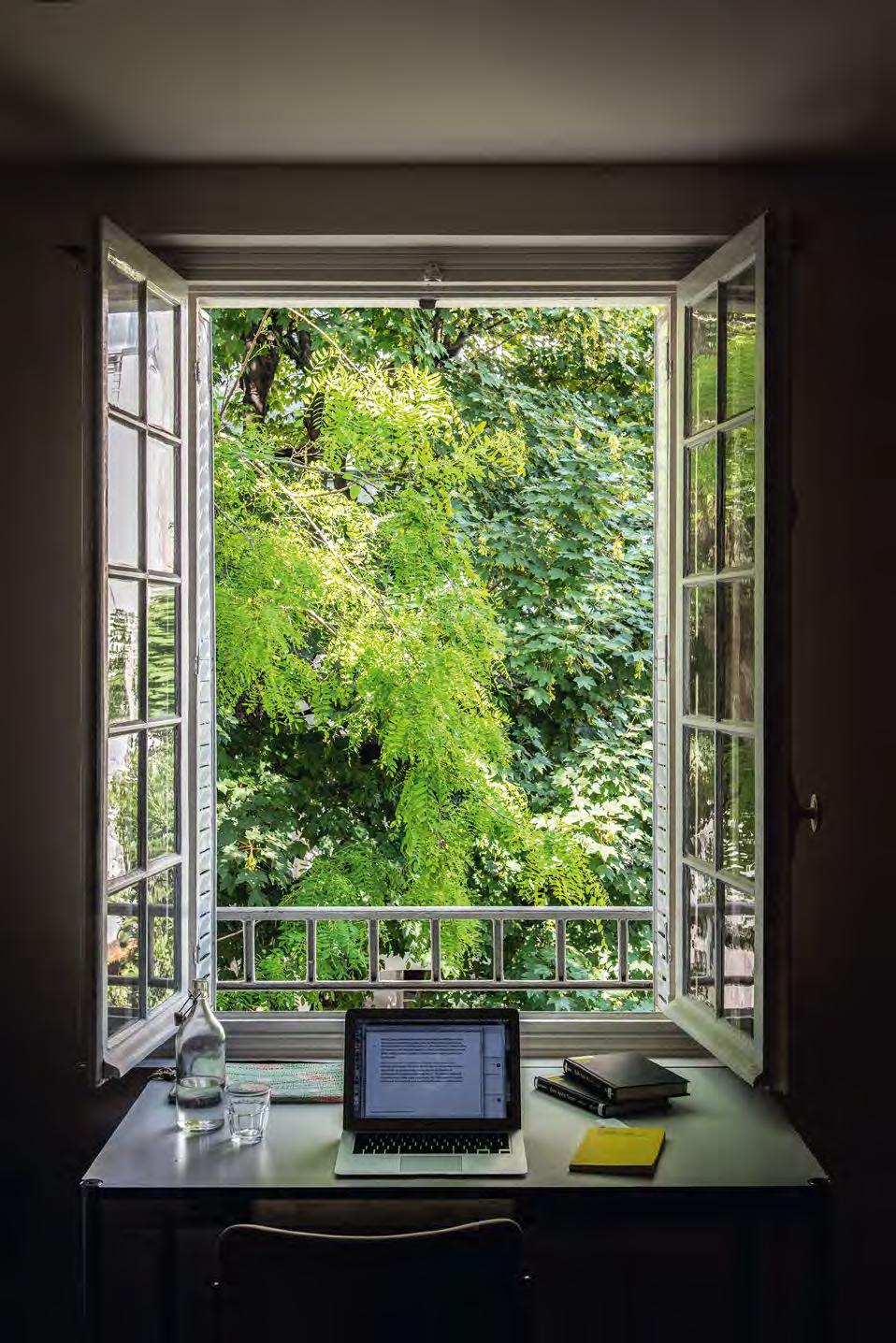
Éric Baudelaire
Visual artist and filmmaker
France
In Other Words
Jay Bernard
Poetry and prose
United Kingdom
What the Narrative Leaves Behind
Thomas Dodman
French history and literature
Columbia University
Les Volontaires
Mohamed Elshahed
Architectural historian
Egypt
Rebellious Things: Everyday Objects from Modern Egypt
Fabiola Ferrero
Abigail R. Cohen Fellow
Photographer
Venezuela
I Can’t Hear the Birds
Walter Frisch
Music
Columbia University
"Un Matisse qui chante":
Music, Image, and Drama in Les parapluies de Cherbourg
Ana María Gómez López
Abigail R. Cohen Fellow
Interdisciplinary artist
Colombia
Punctum [Aperture – Lumen]
Jesse James
Classics and Law
Columbia University
The Ancient Rhetorical Heart of Western Law
Paraskevi Martzavou
Classics and Archeology
Columbia University
Isiaca: Approaching
Ancient Religion
Yea Jung Park
Abigail R. Cohen Fellow
English literature
Columbia University
Fictions of Discernment in Late Medieval England
David Scott
Anthropology
Columbia University
The Sense of Displacement: Stuart Hall’s Life and Work
Maboula Soumahoro
Africana Studies
France
Segu: Africana is the Name
Maria Stepanova
Writer
Russia
Birds Only
Juan Gabriel Vásquez
Writer
Colombia
How to Read Others:
Fiction as Interpretation of Real People
Hannah Weaver
Medieval European literature
Columbia University
Kaleidoscopic Translations in the Medieval West
1991 Project
Music
Ukraine
Aliyeh Ataei
Writer
Iran/Afghanistan
Nikita Grigorov
Writer
Ukraine
Nina Alvarez
Journalism
Patricia Dailey
English and Comparative Literature
Joshua DeVincenzo
Climate School
Pierre Force
French
Frank Andre Guridy
History
Irena Haiduk
Art History
Radhika Iyengar
Earth Institute
Duy Linh Tu Journalism
Naeem Mohaiemen
Visual Arts
Magdalena Stern-Baczewska Music
Ngai Yin Yip
Earth and Environmental Engineering
Tamara J. Walker
Africana Studies
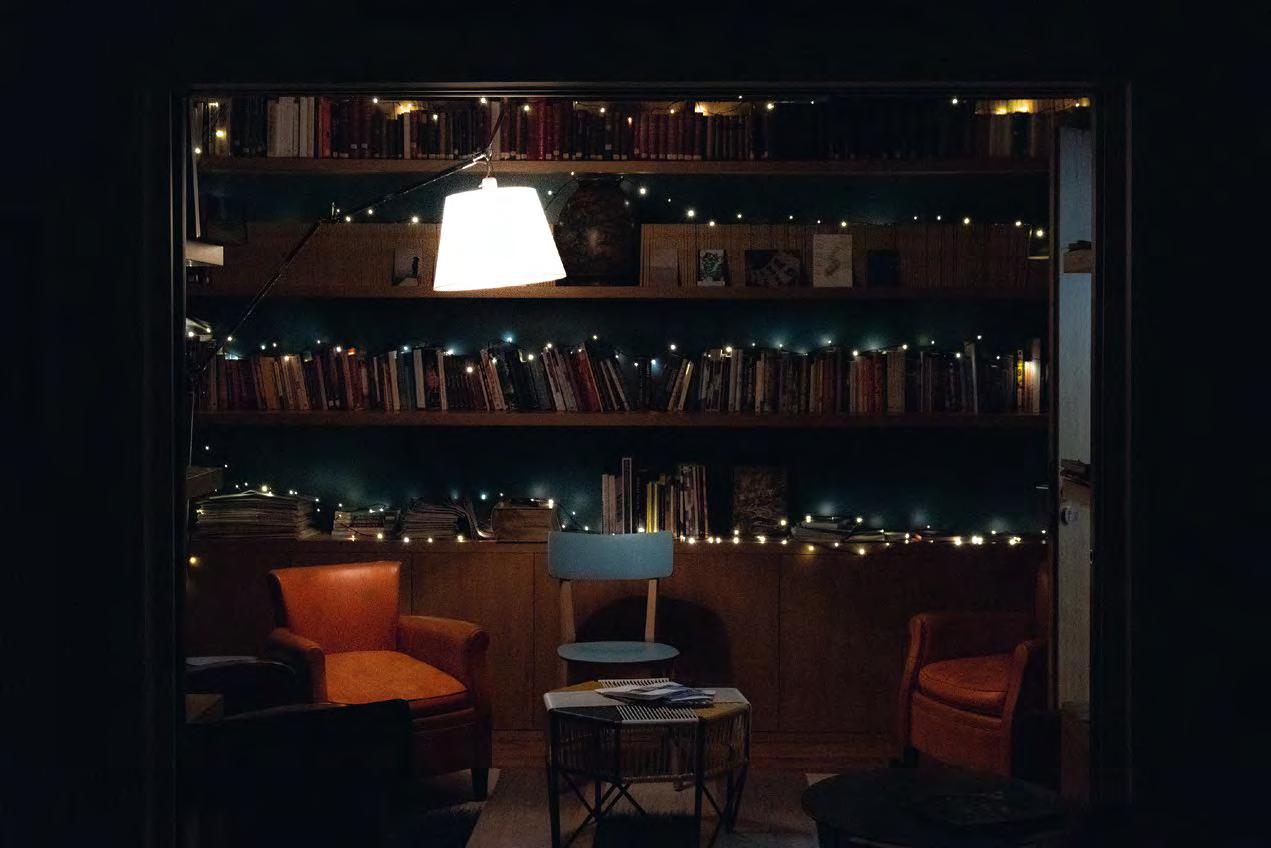
image credits
© Hannah Reyes Morales: cover, pp. 31 (top), 52
© Ferrante Ferranti: pp. 6-7, 8, 10, 11 (top), 13 (top right), 17 (top and bottom right), 20, 21 (top), 22, 24, 28, 31 (bottom), 34, 41 (top), 42, 47 (middle), 54, 55 (bottom photos), 70, 72
© 2012 RMN-Grand Palais (musée du Louvre) / René-Gabriel Ojéda: p. 9 (top)
© Ahmed El Maanouni: p. 11 (bottom)
© Jacqueline Palmer: p. 12
© Elizabeth Van Loan: p. 16
© National Archives, Jakarta, Indonesia: p. 17 (bottom left)
© Emilie Notéris: p. 18
© Yala Kisukidi: p. 19 (top)
© Brian Larkin: p. 21 (bottom)
© Melina León: p. 23 (top)
© Private collection, courtesy of Phan Công Tâm: p. 27 (top right)
© Chinh phụ ngâm bị lục “A Complete Edition of the Ballad of a Soldier’s Wife,” published in 1912, Hanoi, Liễu Văn Đường tàng Press. Courtesy of the Nom Foundation p. 27 (bottom left).
© 1999-2003 by Jamie Zawinski: p. 29 (bottom)
© Robert Amagsila: p. 30
© Sabelo Mlangeni: p. 32 (middle right)
© Zoya Laktionova: pp. 32 (bottom), 44 (top left), 47 (top right)
© Rolex: p. 35 (bottom)
© Yasmine Seale: pp. 37 (right), 39
© Ersi Sotiropoulos: p. 41 (bottom collage)
© Adrien Gorremans: p. 44 (left middle)
© Yurii Koch and Olga Pohribna-Koch: p 47 (top left)
© Kevin Foote: p. 43 (top)
© João Pina: p. 49
© Etienne Pauthenet: p. 51 (top)
© Laurencine Lot. Courtesy of Zipporah Films: p. 55 (top)
© Alekos & Christos Bourelias (TheArchlabyrinth): p. 57
© Latent Community: p. 58
© Spyros Staveris, Archive of Albanian Immigration, The Contemporary Social History Archives, Athens: p. 60
All other photos were taken by Institute and Columbia Global Centers | Paris staff.
cover
Photo of an internet vending machine in Manila, taken by Hannah Reyes Morales as part of her project on the global misinformation epidemic in the Philippines.
graphic design
Beltza
Chiqui Garcia chiqui@beltza.be
Mark Mazower Stavros Niarchos Foundation (SNF) Director mm2669@columbia.edu
Marie d’Origny Paris Director md3155@columbia.edu
James Allen Cultural Programs and Special Projects Coordinator
Justine Benedeyt Programming Assistant
Carol Gluck (Chair) History and East Asian Studies
Nadia Abu El Haj Anthropology
Tash Aw Independent writer and former Fellow
Carol Becker School of the Arts
Courtney D. Cogburn School of Social Work
Institute for Ideas and Imagination
Reid Hall
4, rue de Chevreuse
75006 Paris
(+33)1 44 10 24 43
ideasimagination@columbia.edu https://ideasimagination.columbia.edu
X (Twitter): @III_SNFPHI
Instagram: @iii_snfphi
Facebook: II&I - Snfphi
Stuart Firestein Biology
Emlyn Hughes Physics
Katharina Pistor Law School
Jeff Schlegelmilch Climate School
Colm Tóibín English
The Columbia Institute for Ideas and Imagination is made possible by the generous support of the Stavros Niarchos Foundation (SNF), the Areté Foundation, the Andrew W. Mellon Foundation, and Daniel Cohen, with additional gifts from Judith Ginsberg and Paul LeClerc, Olga and George Votis, the EHA Foundation, Mel and Lois Tukman, and anonymous donors.